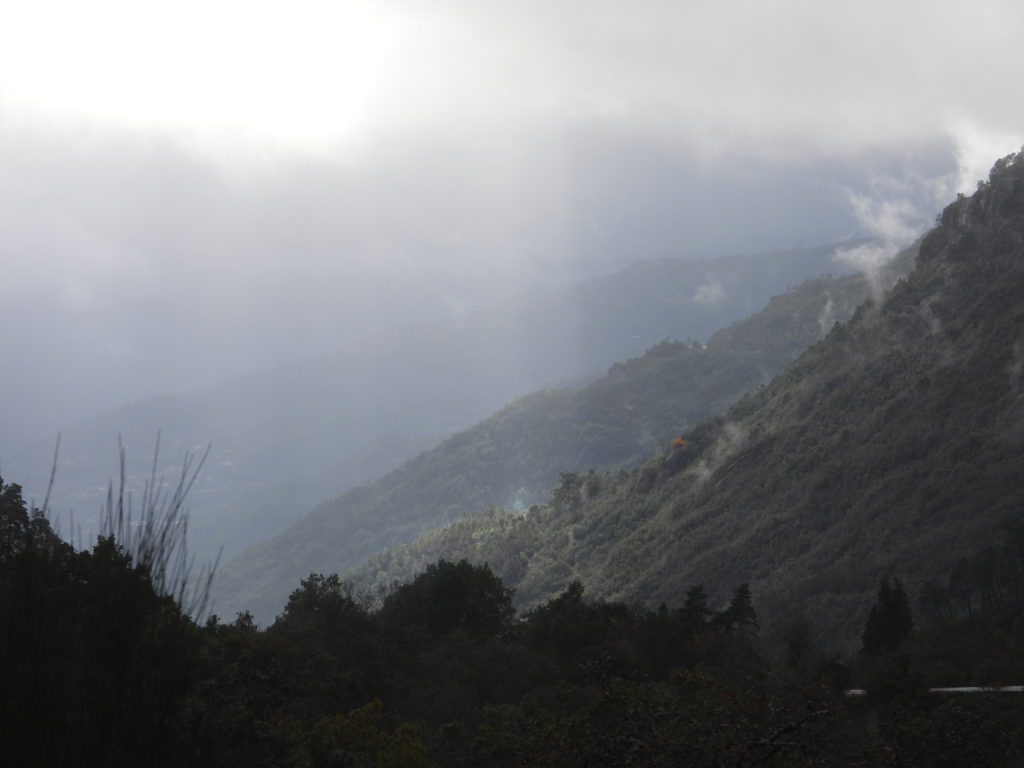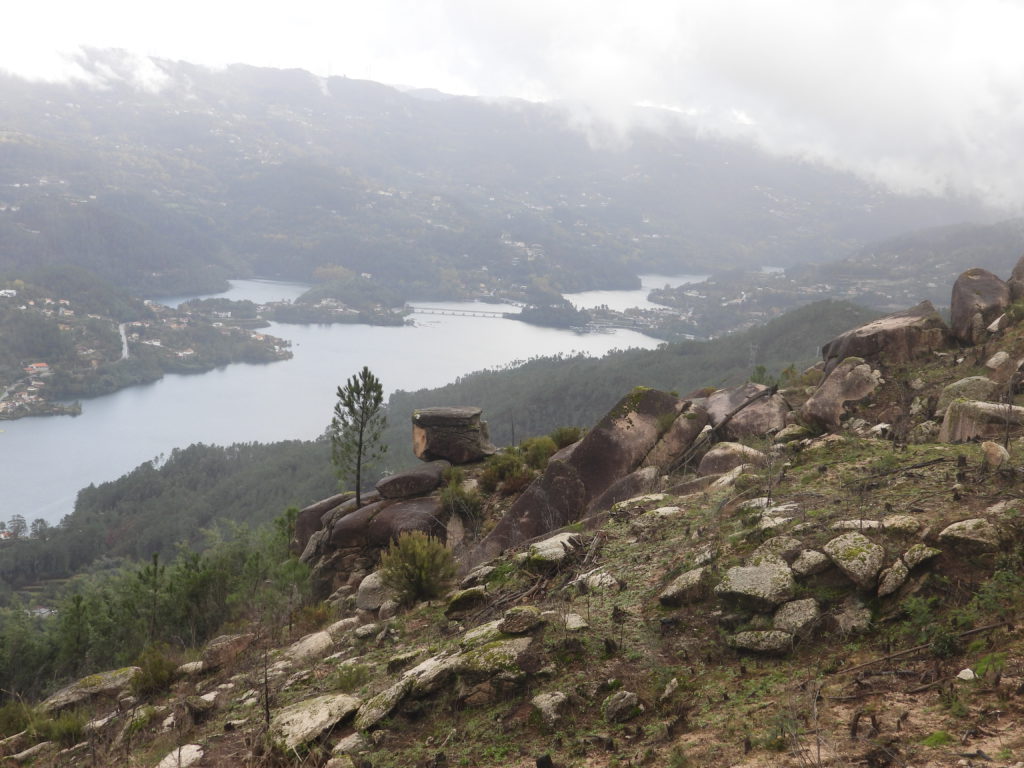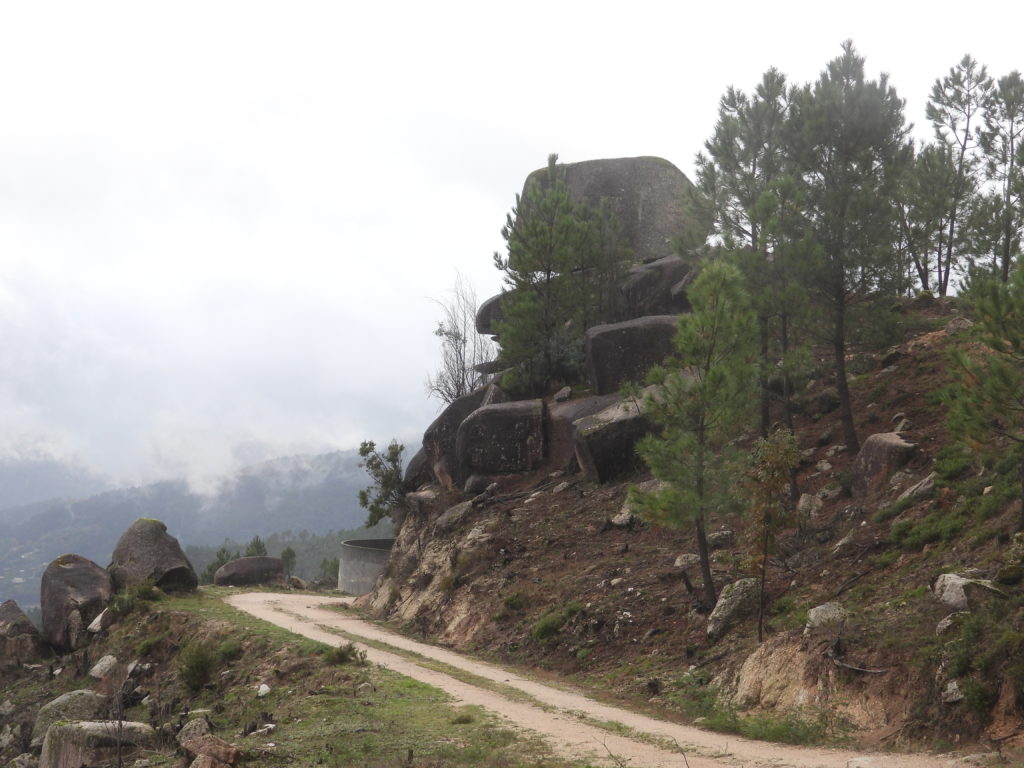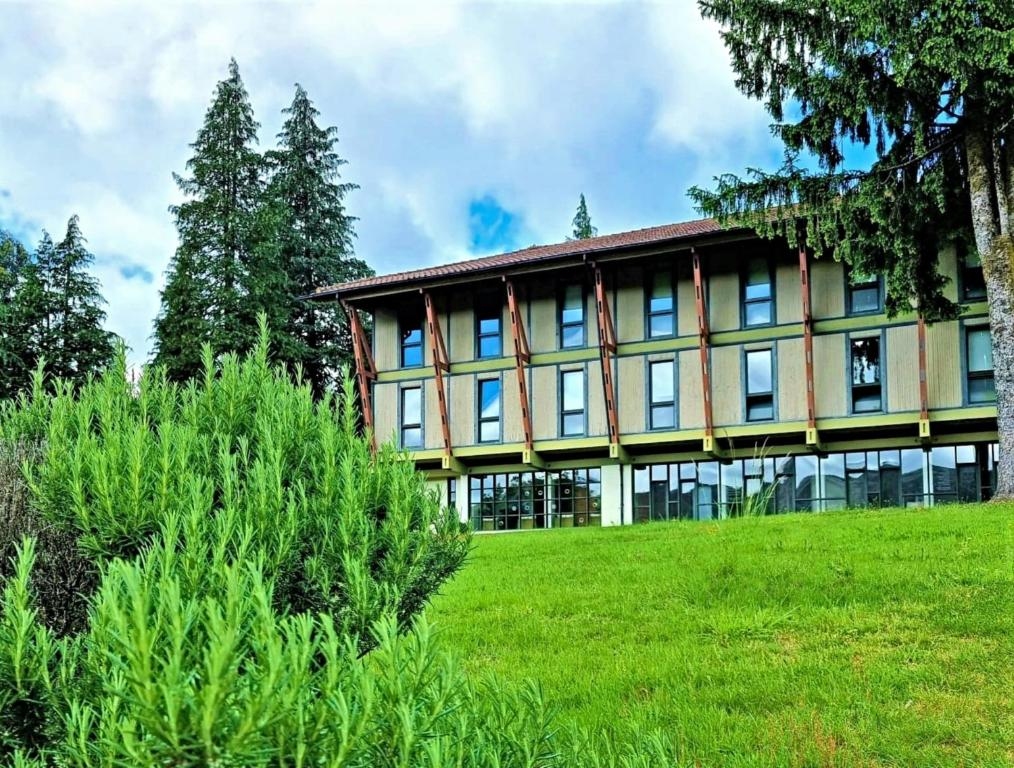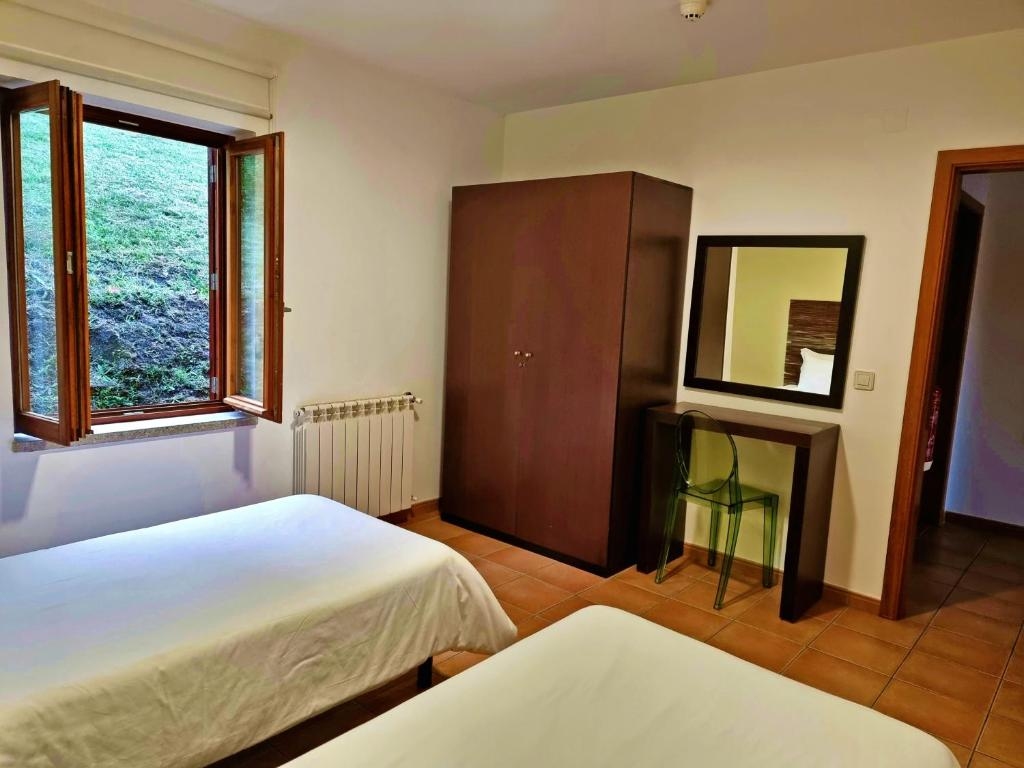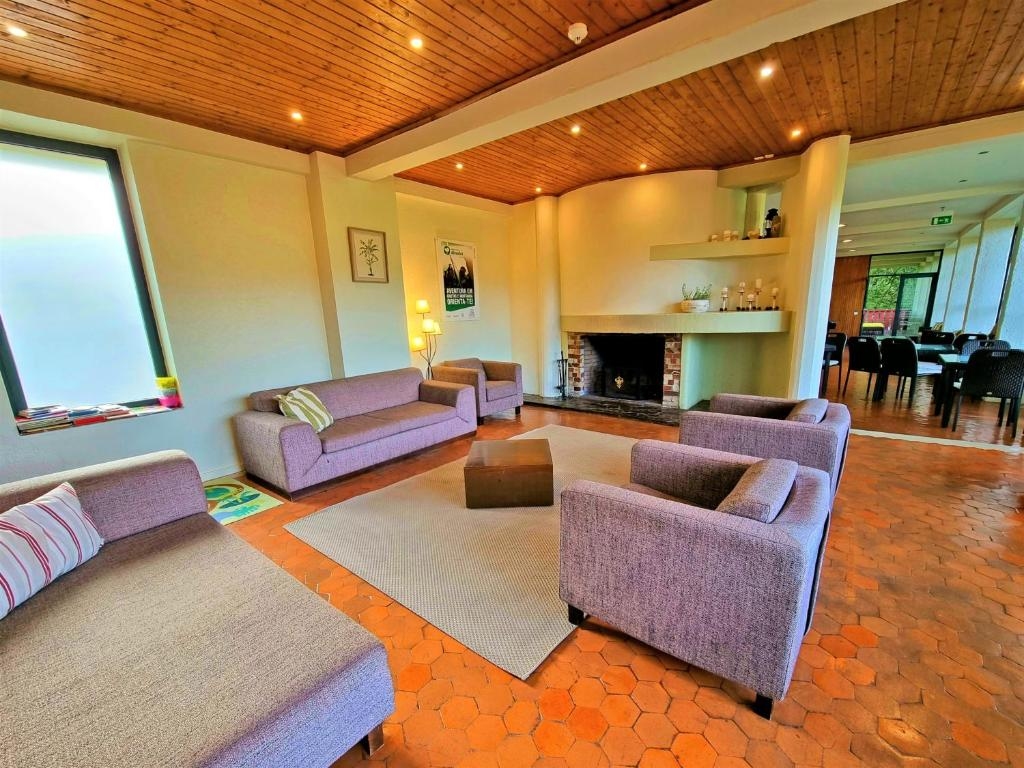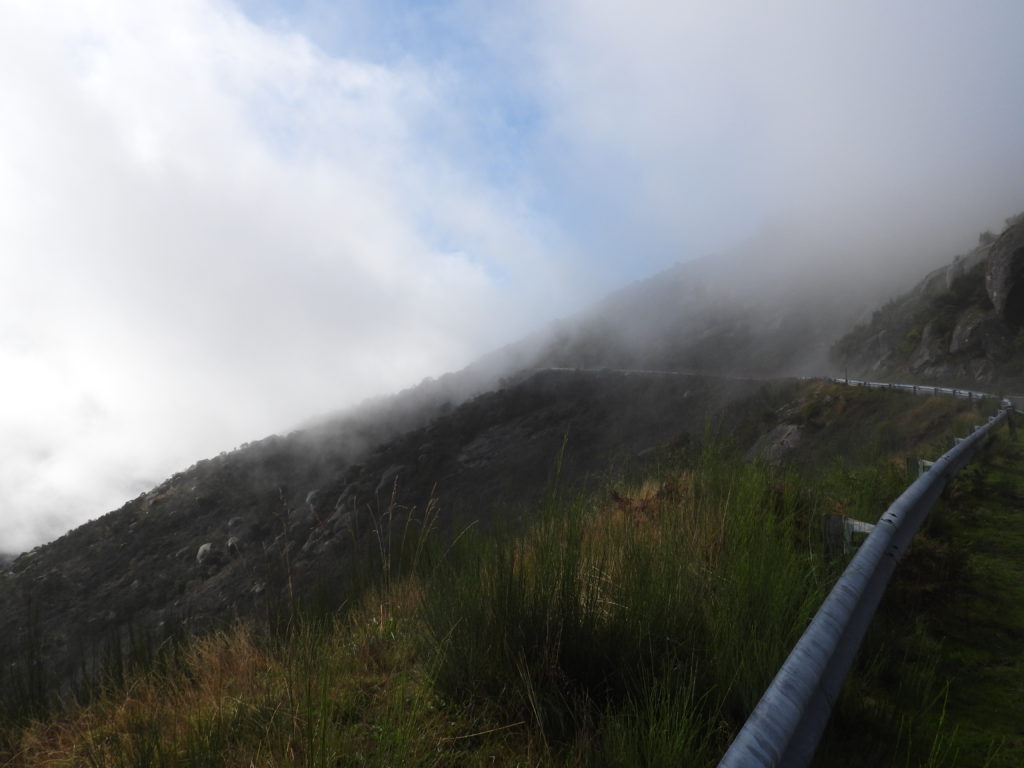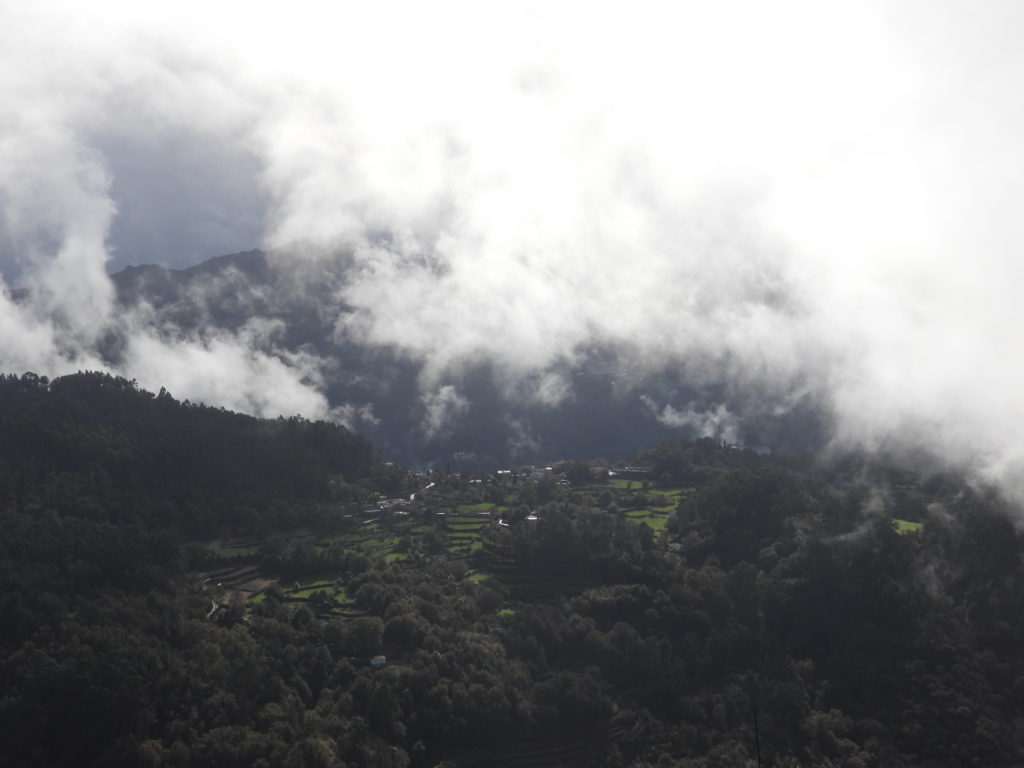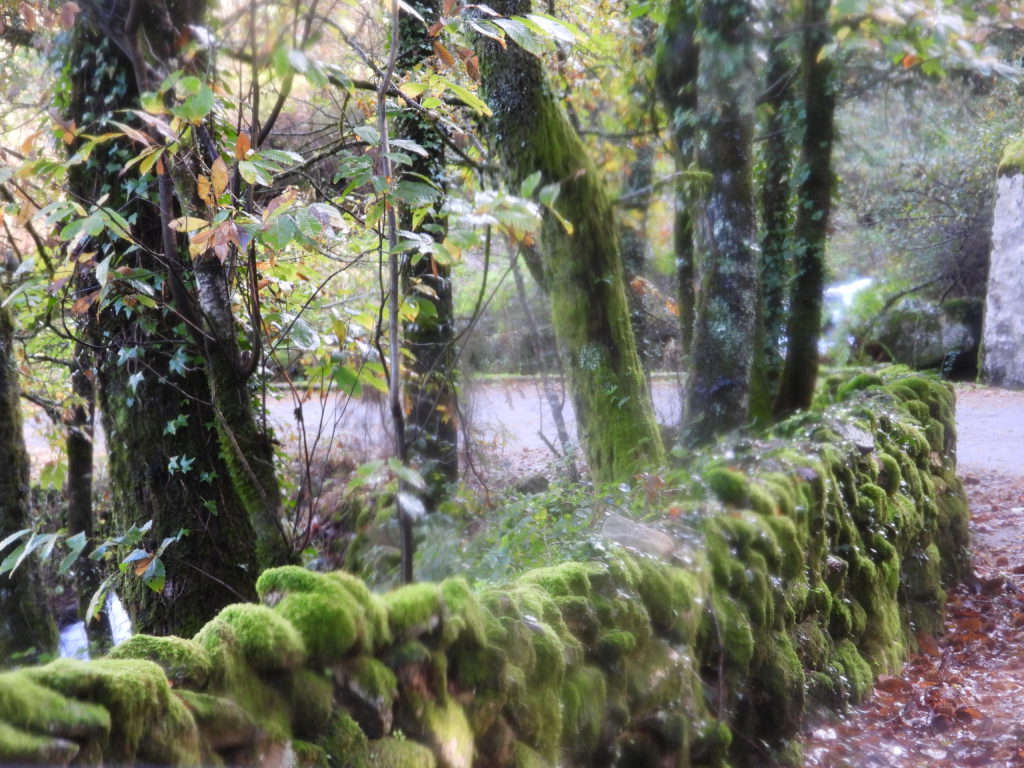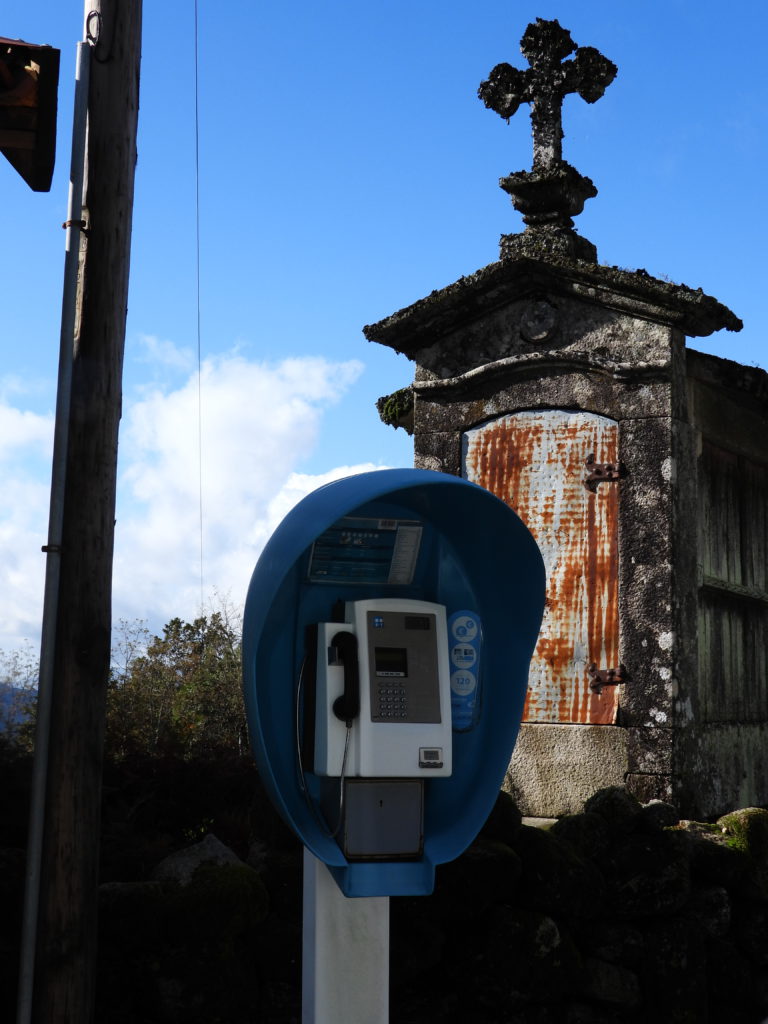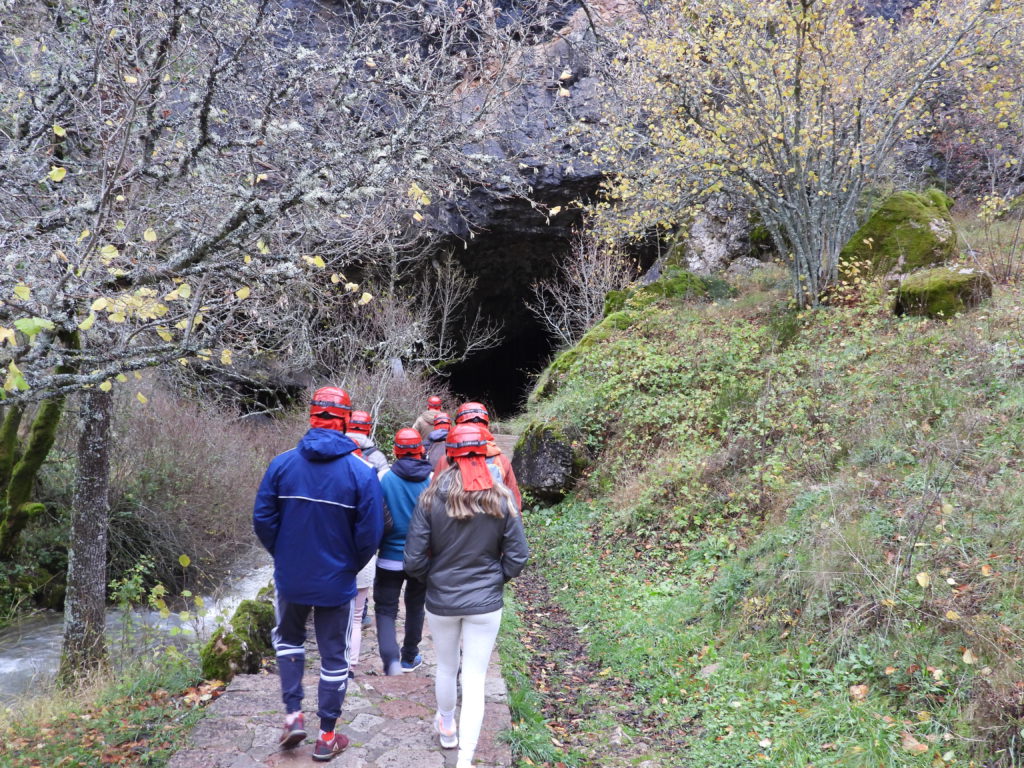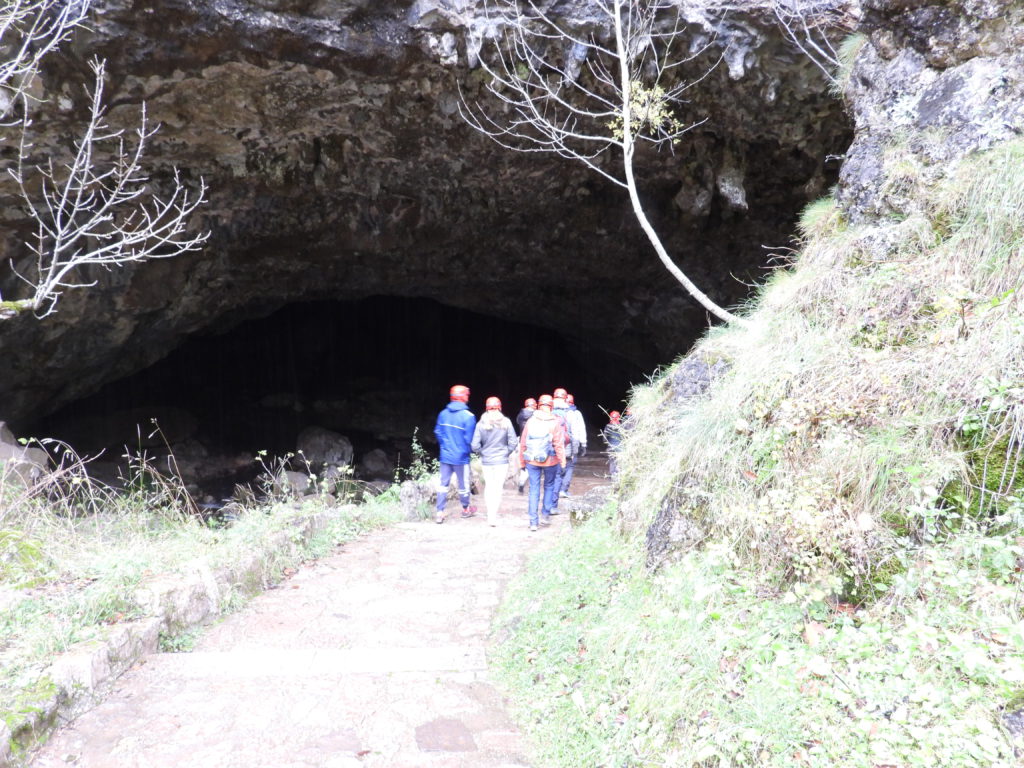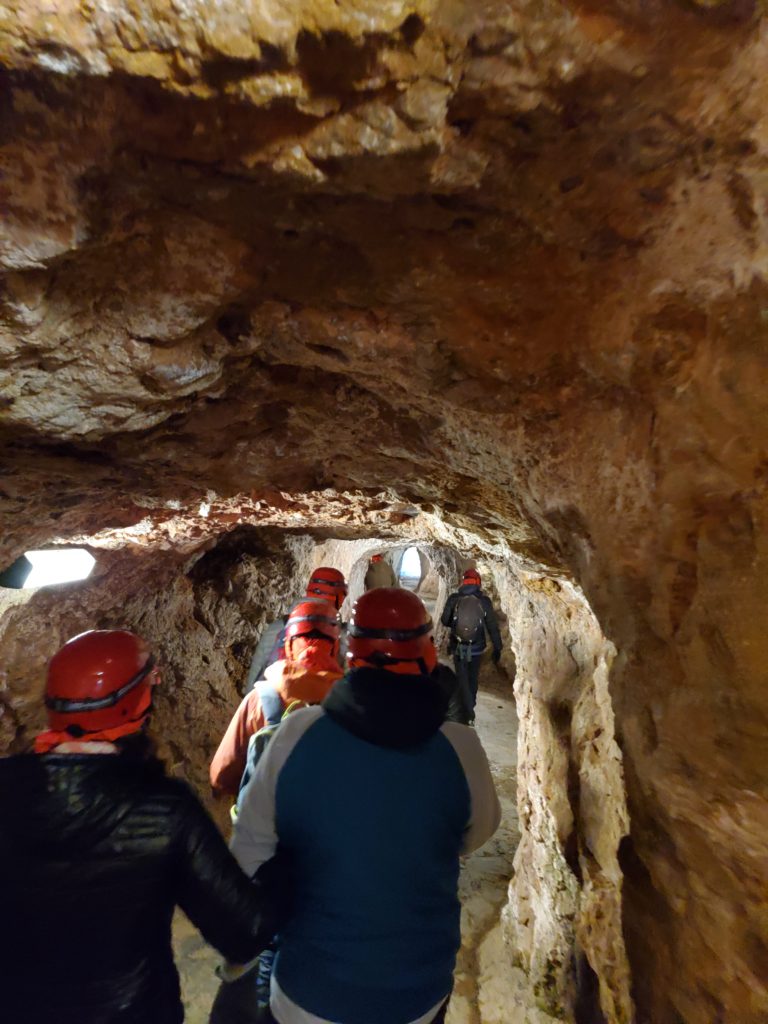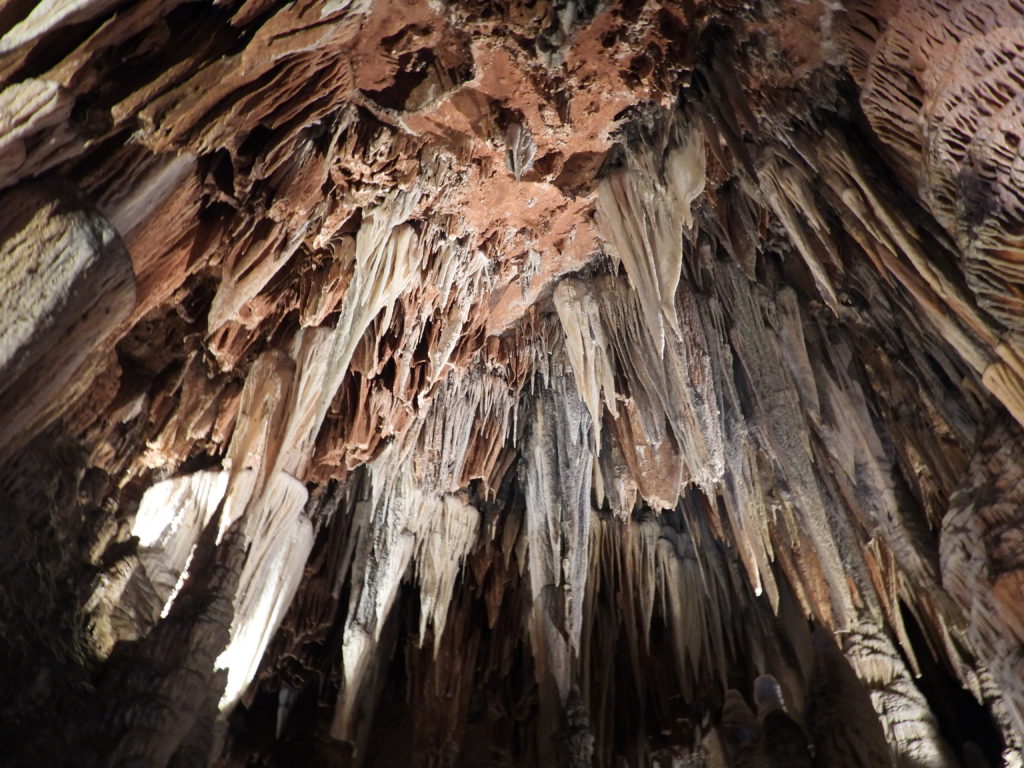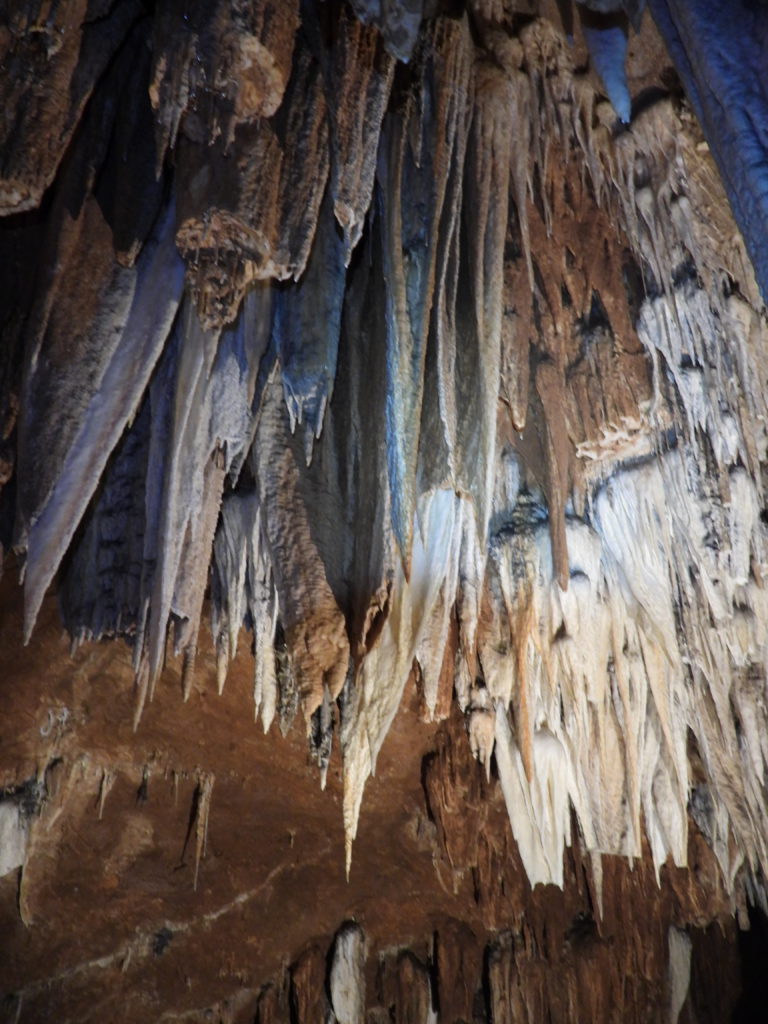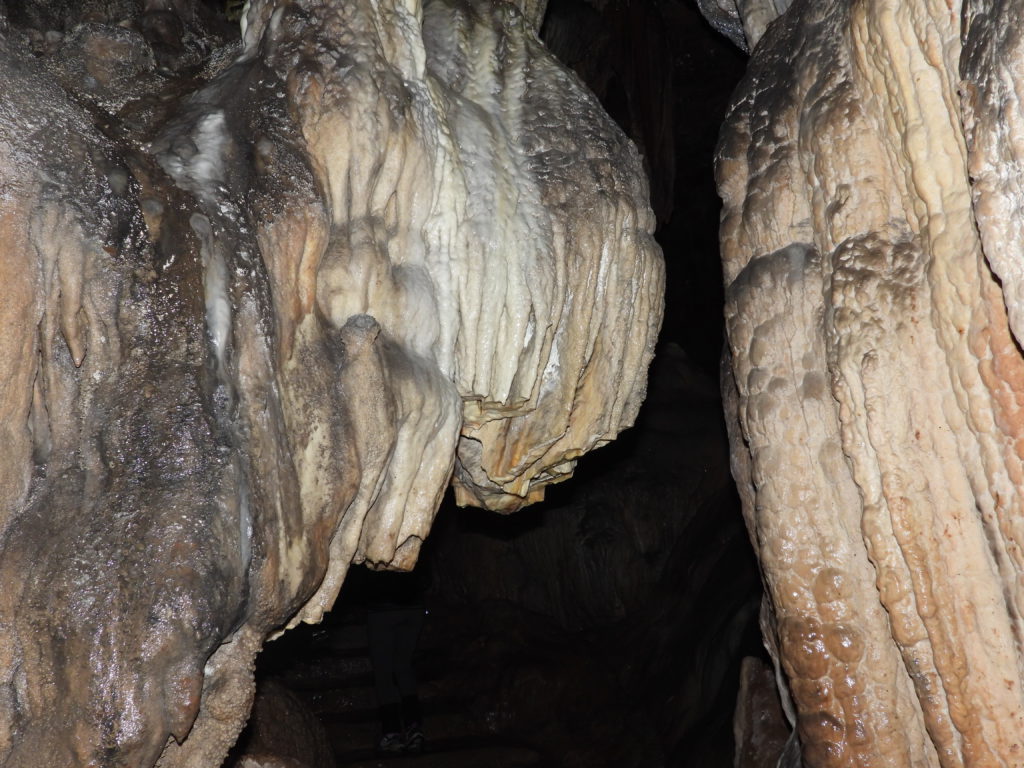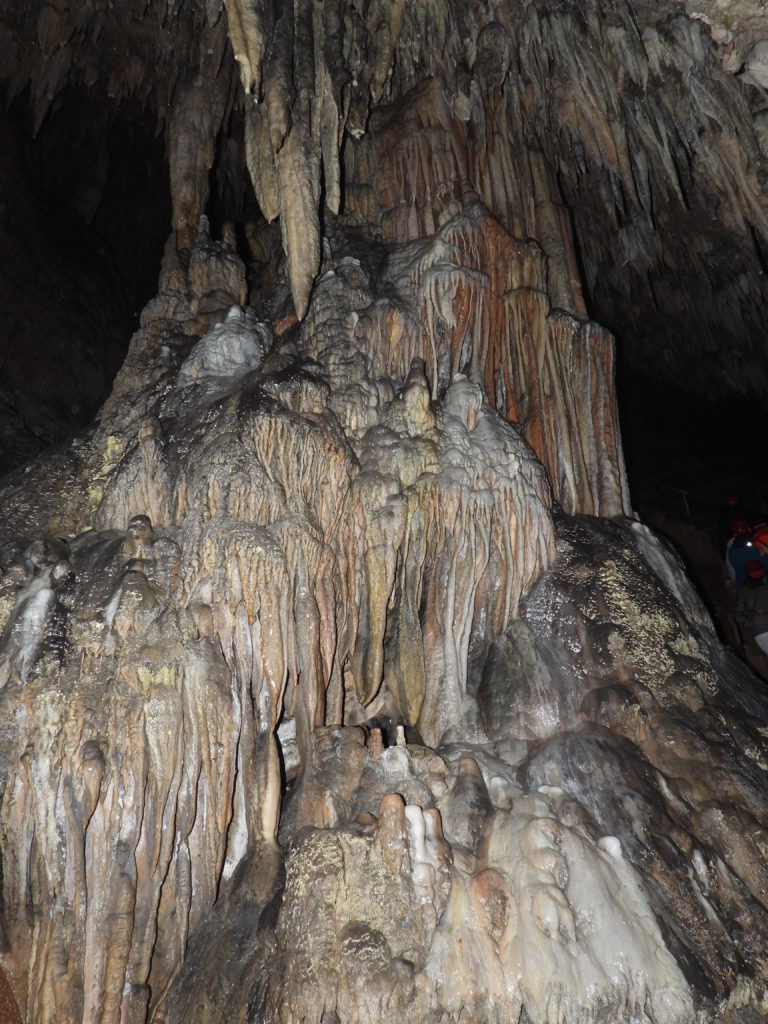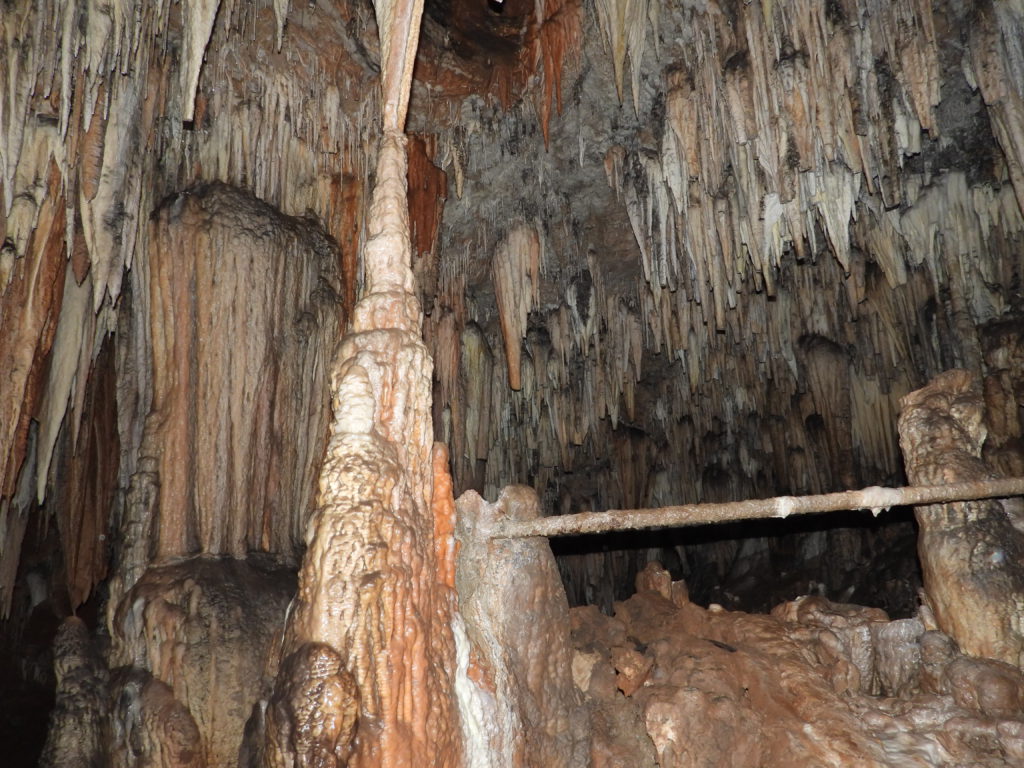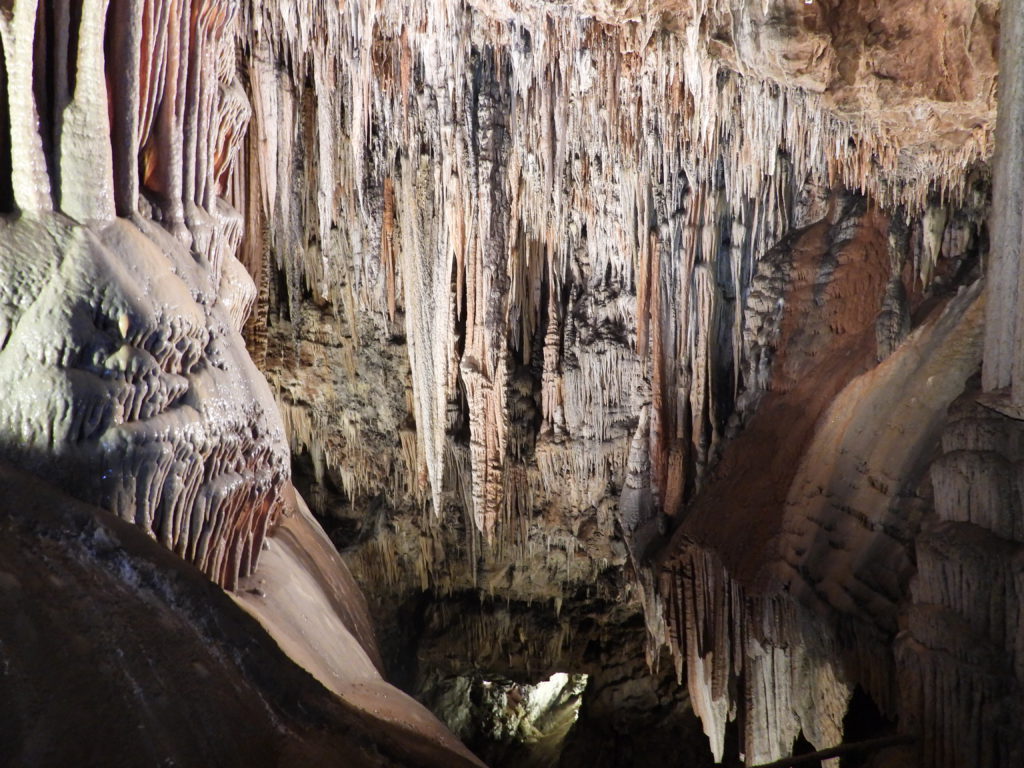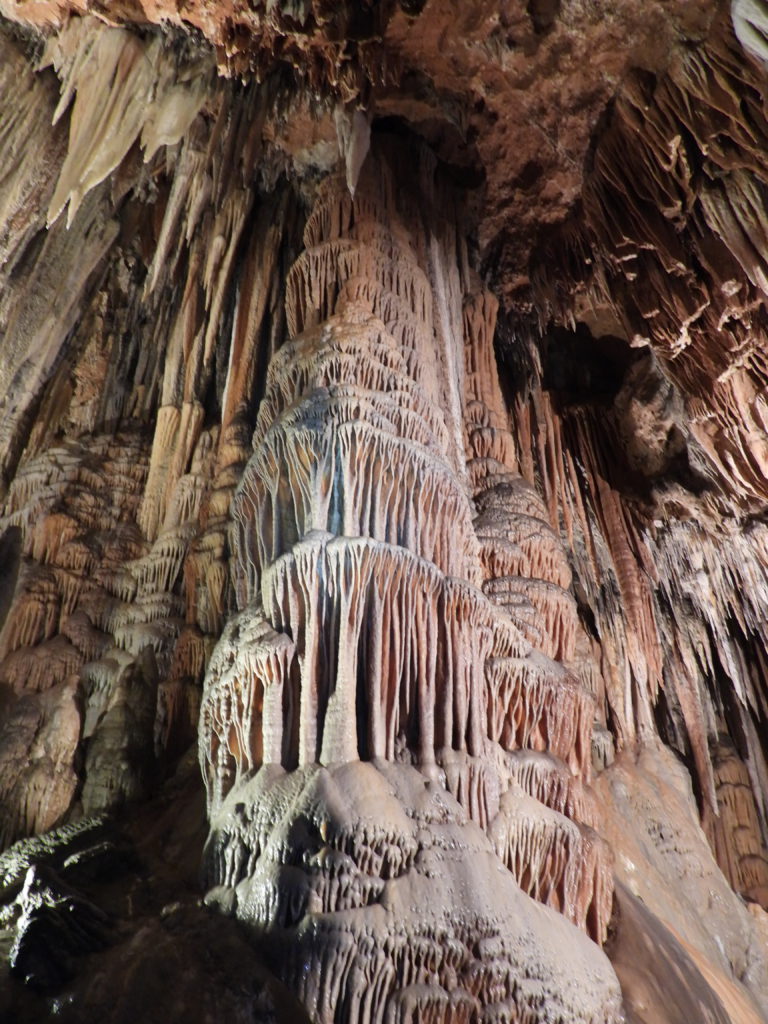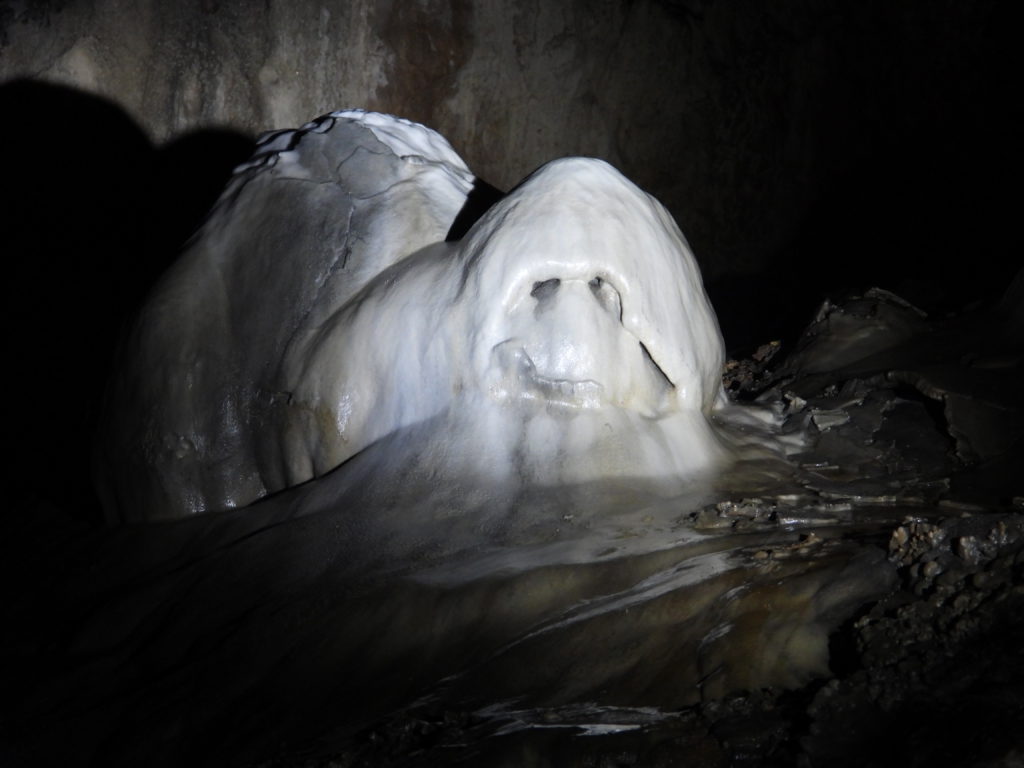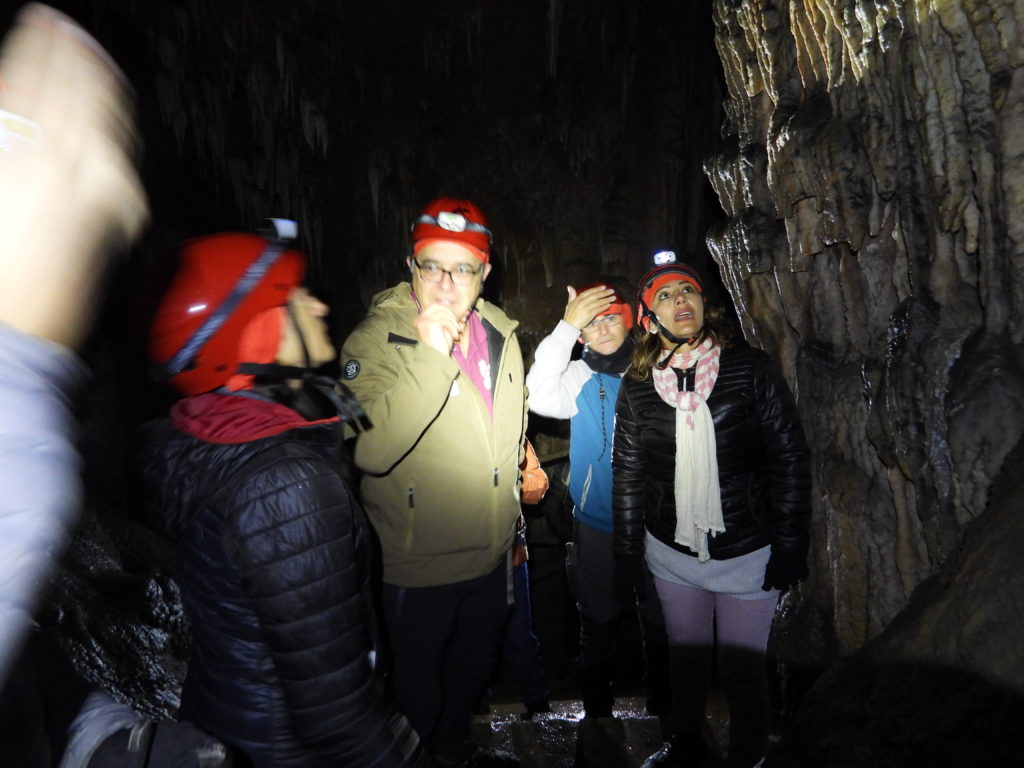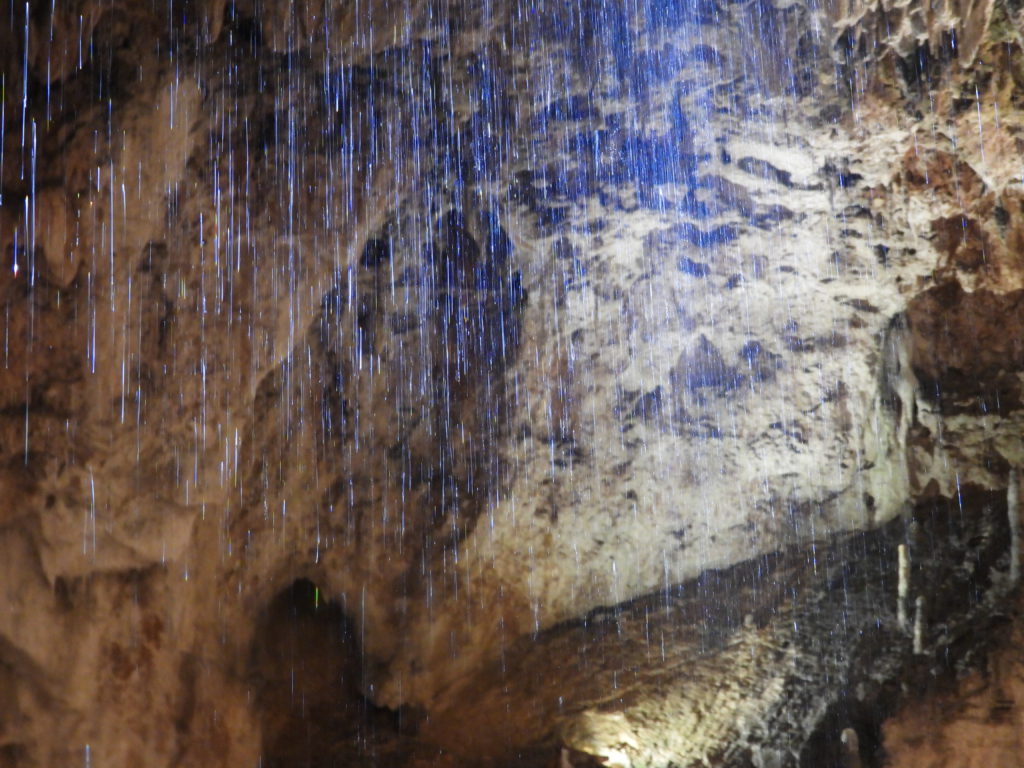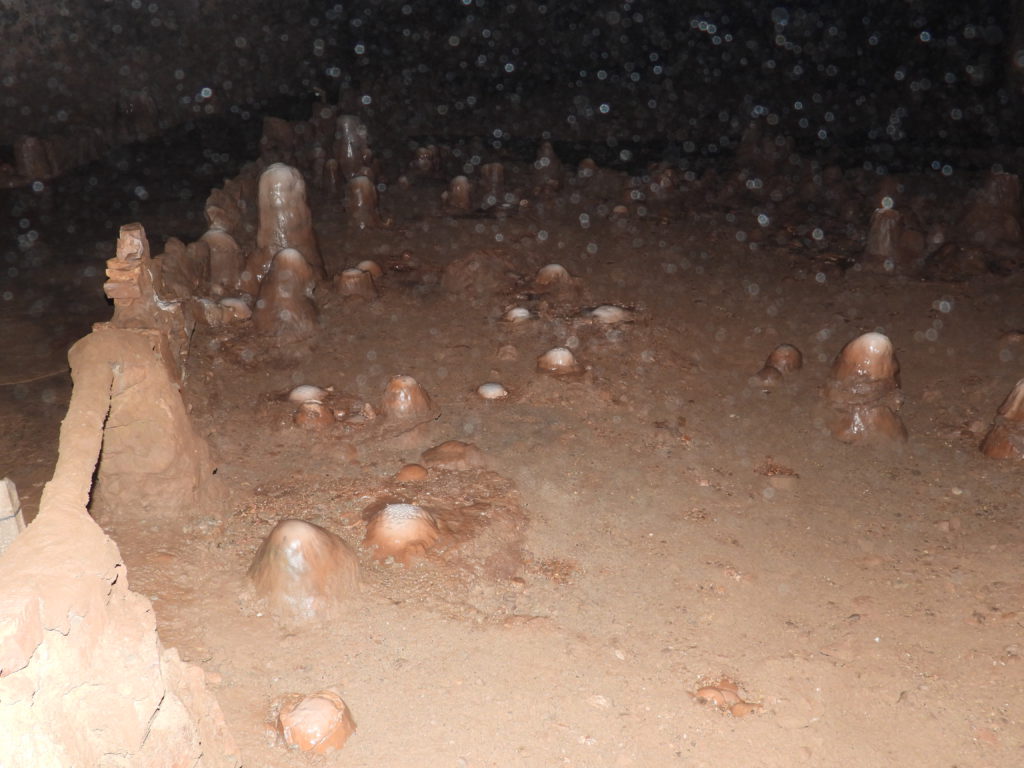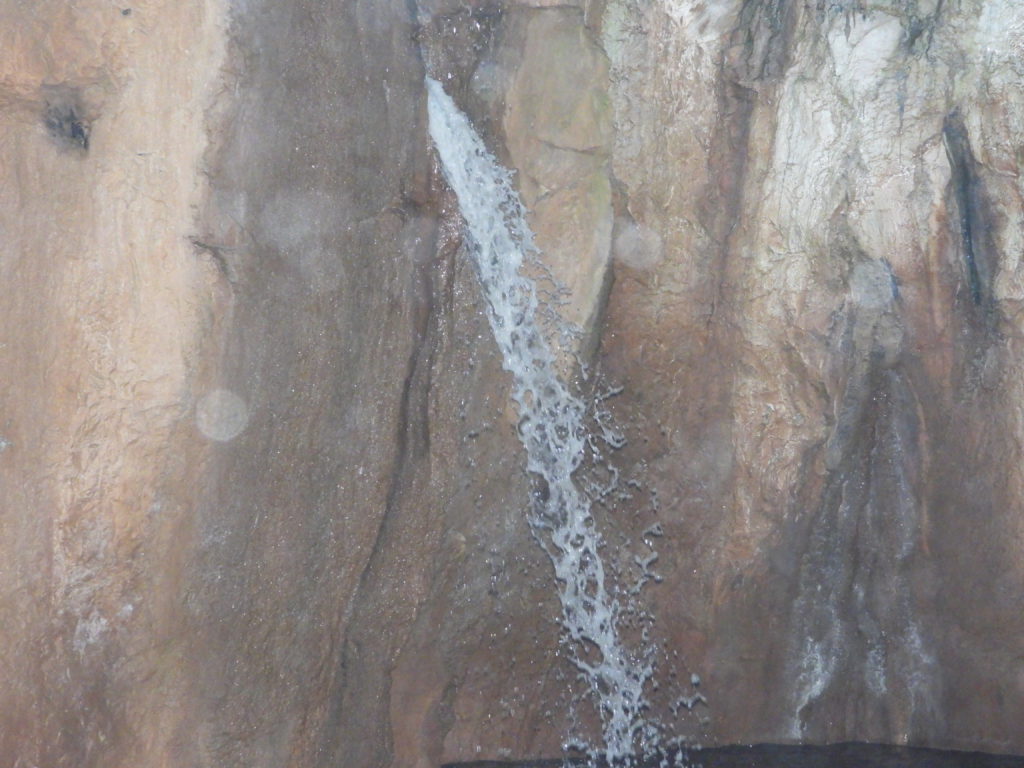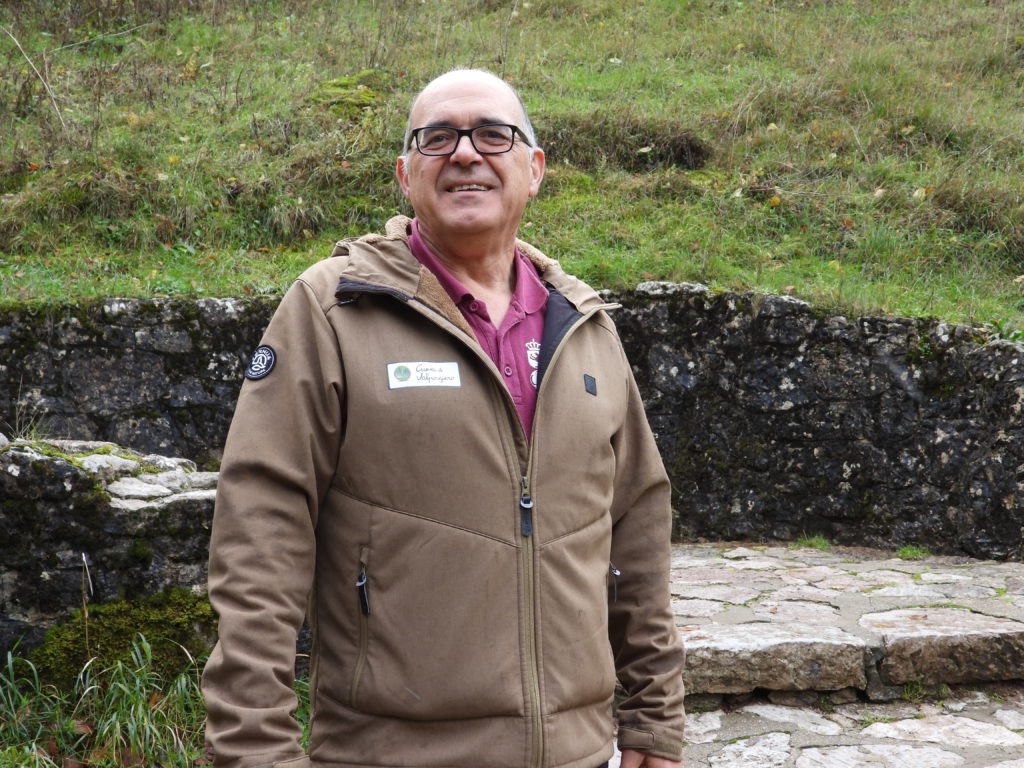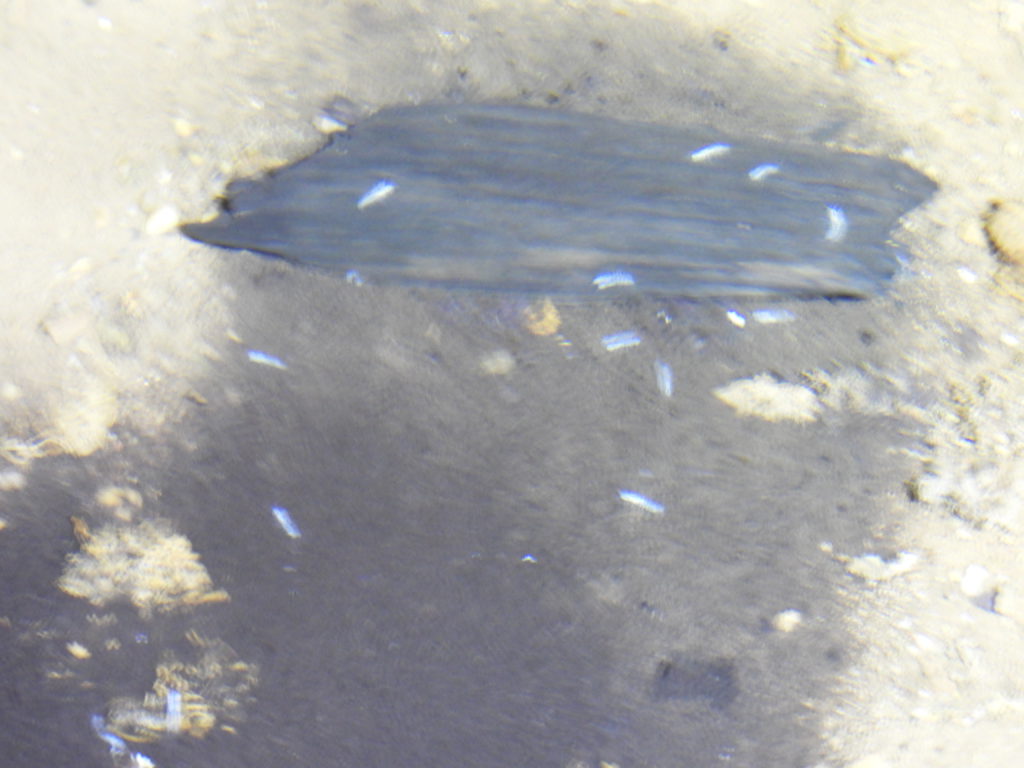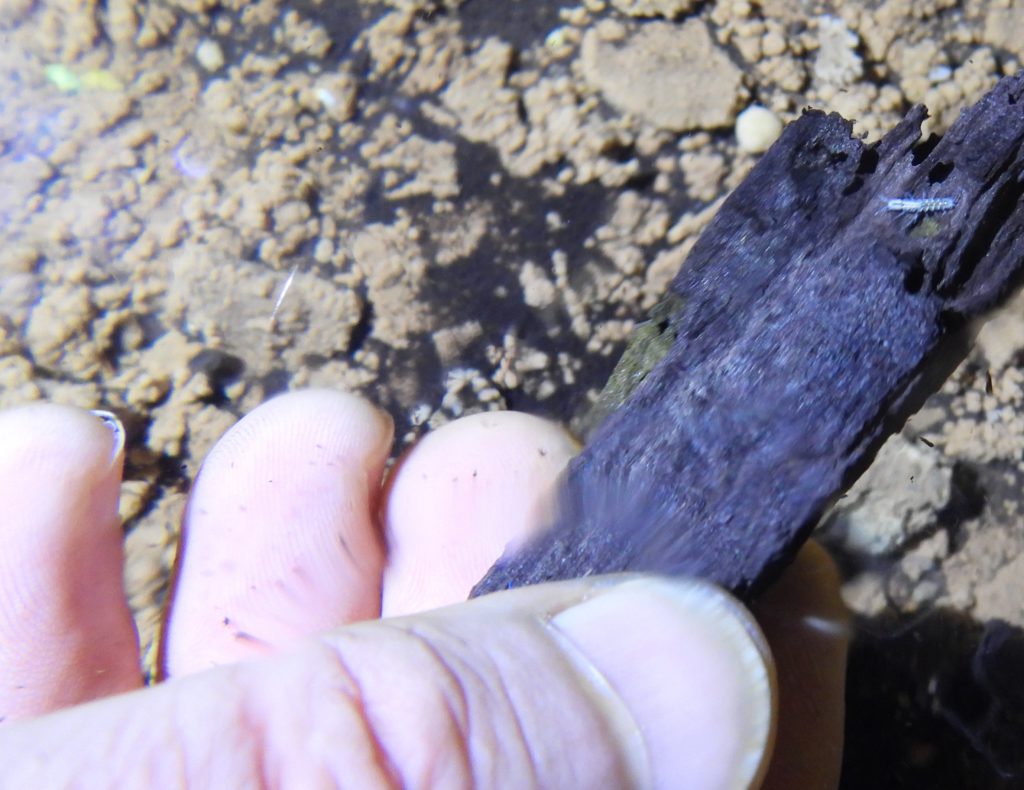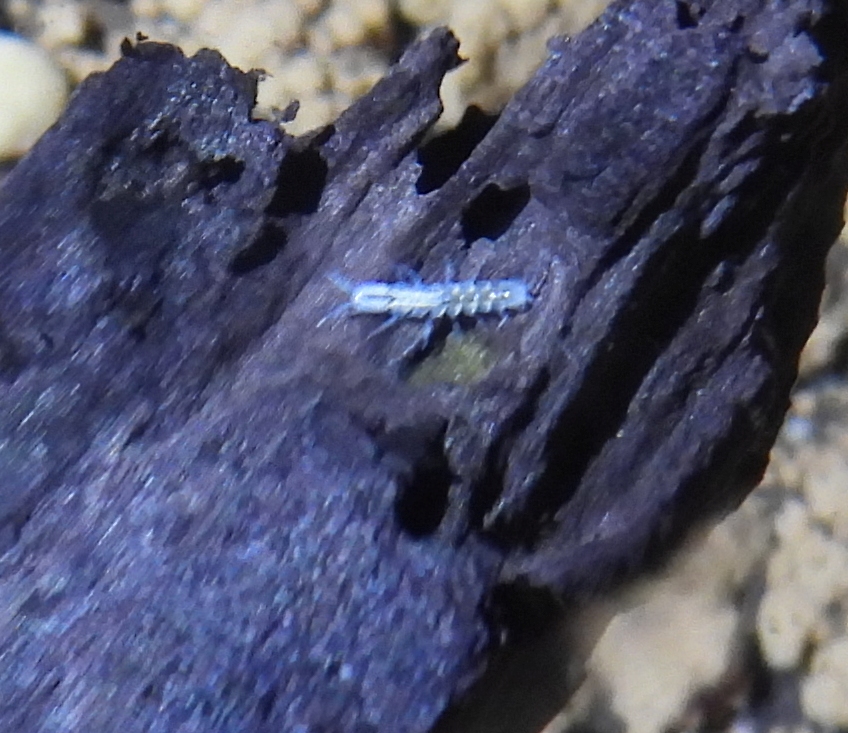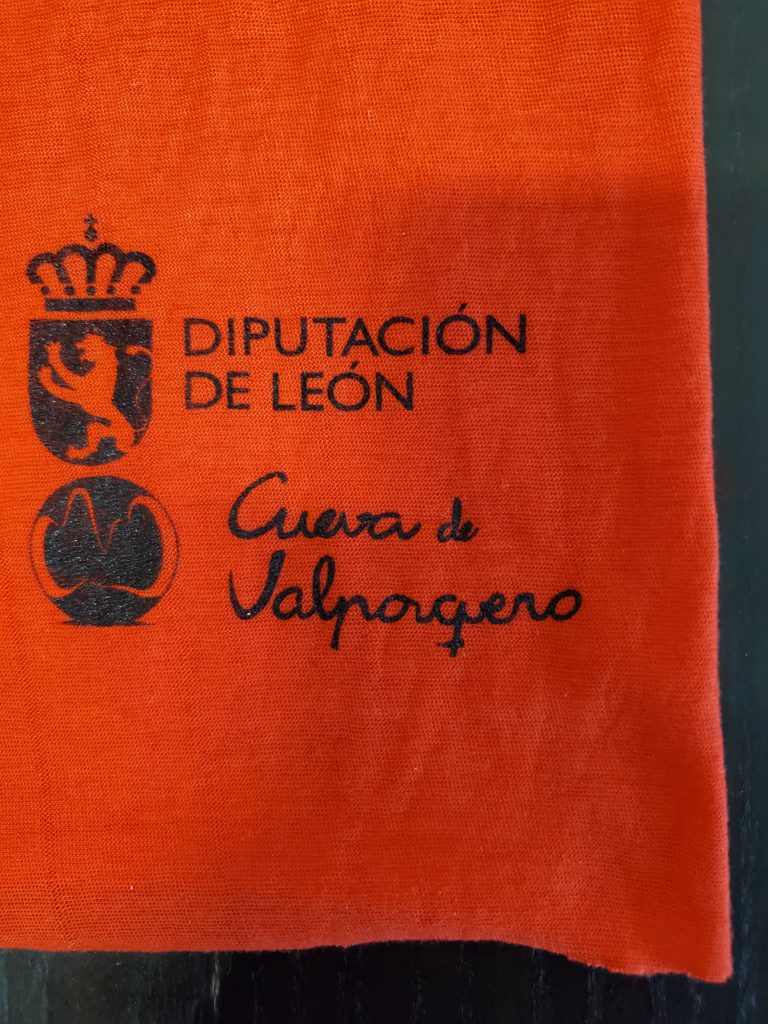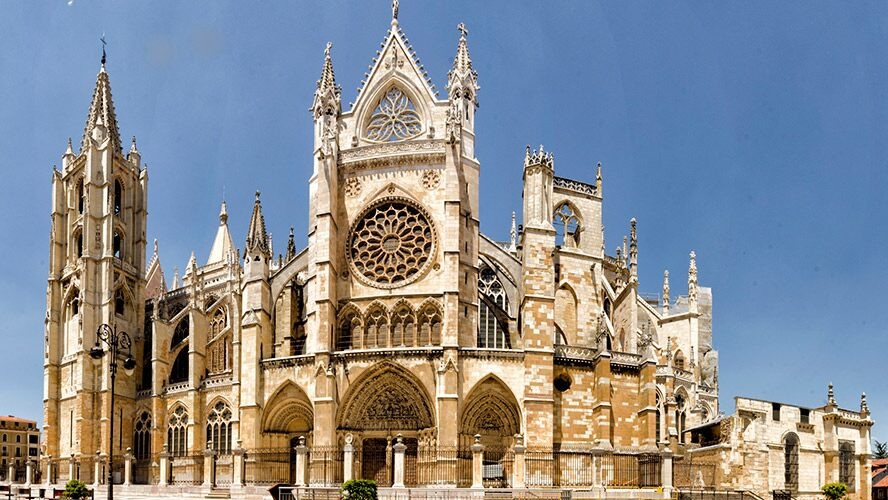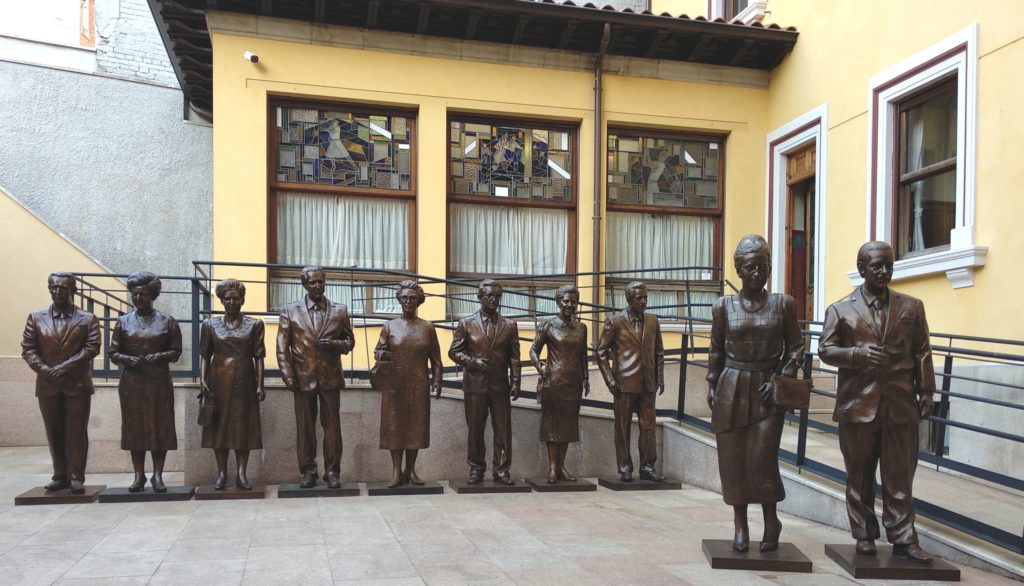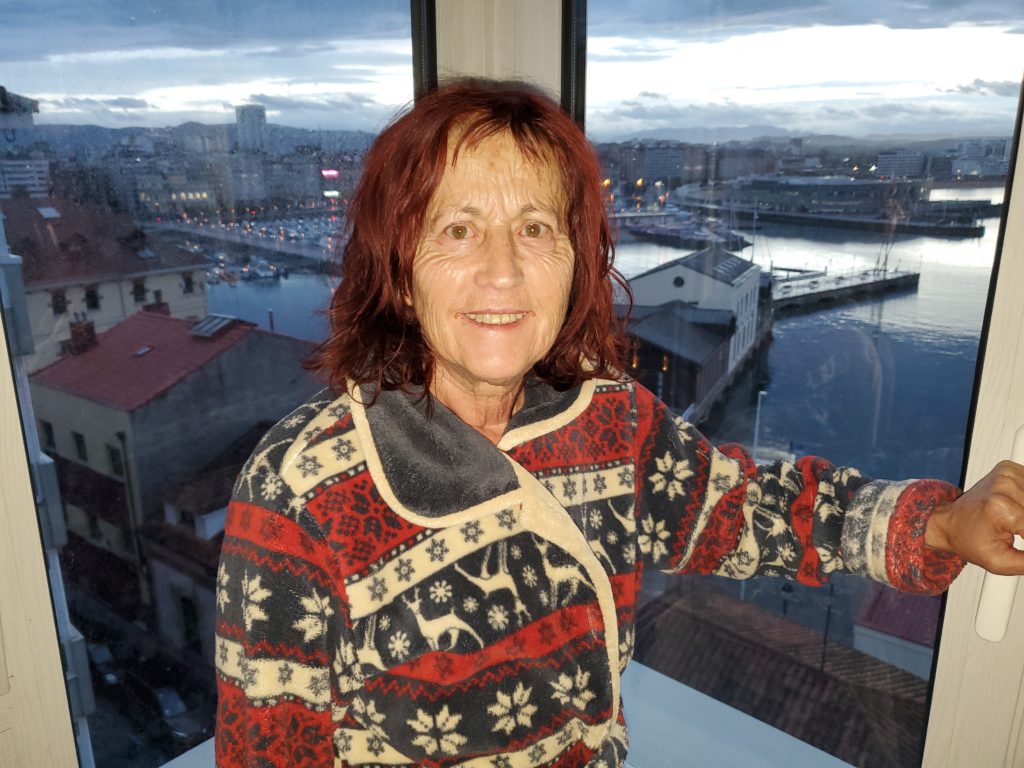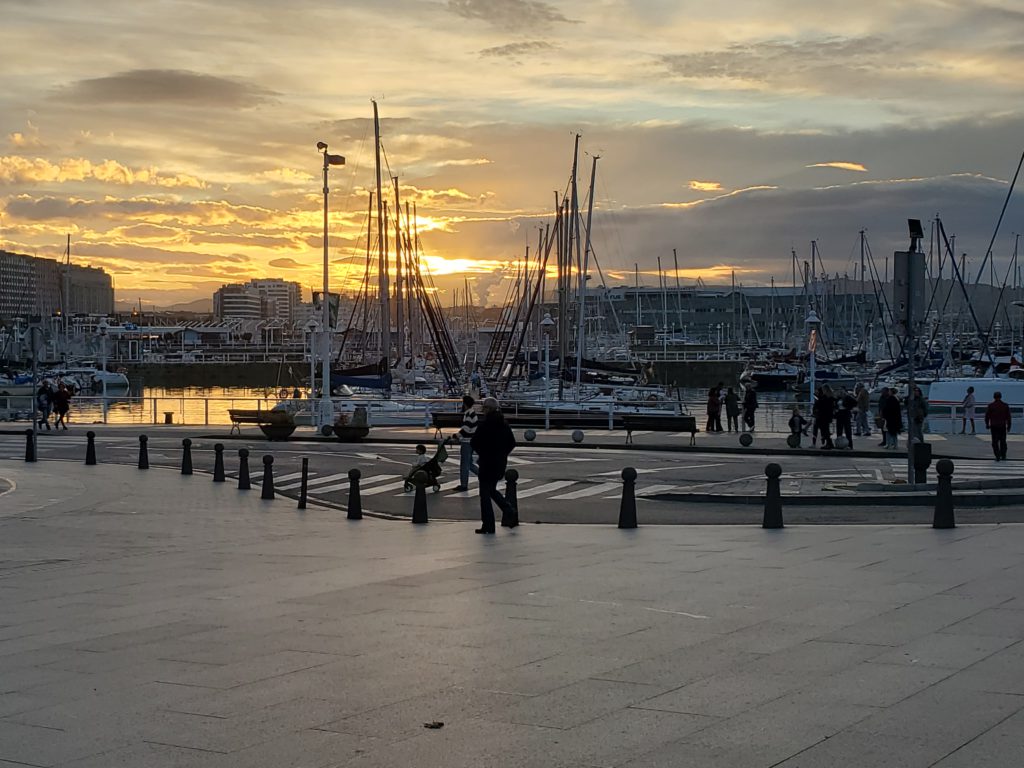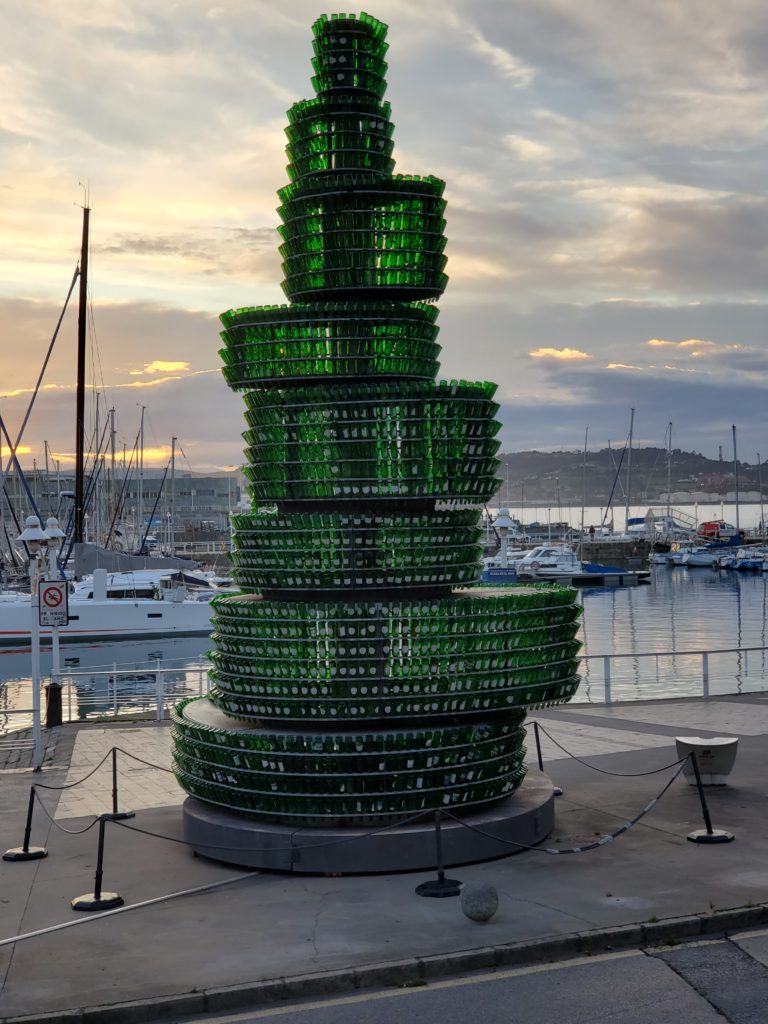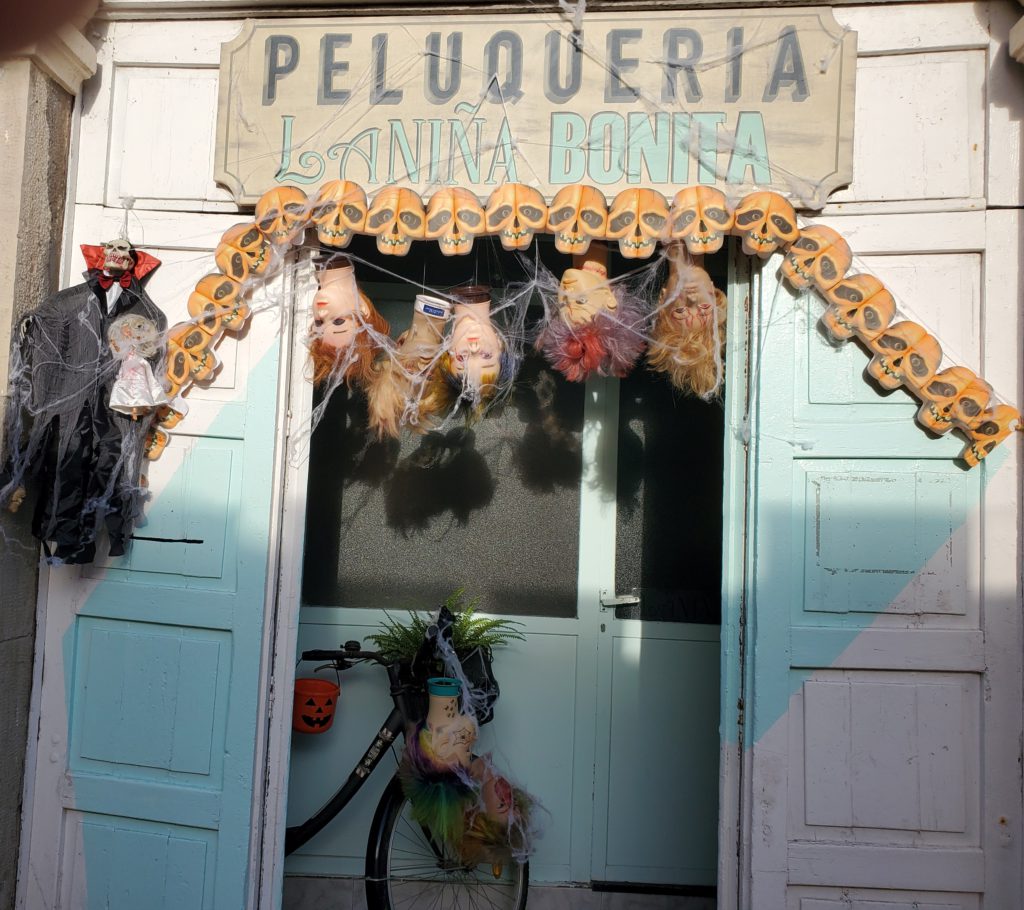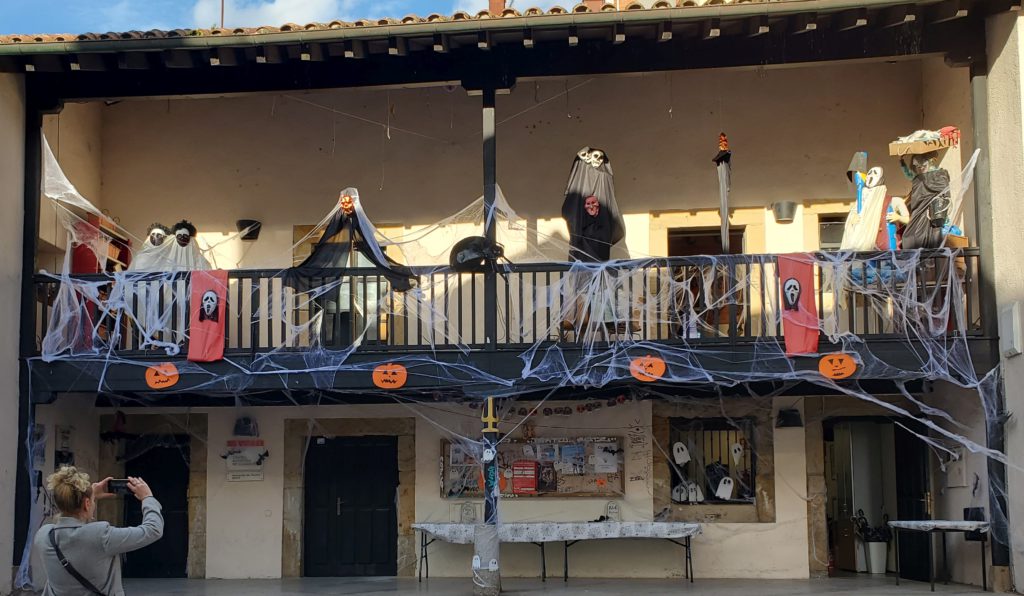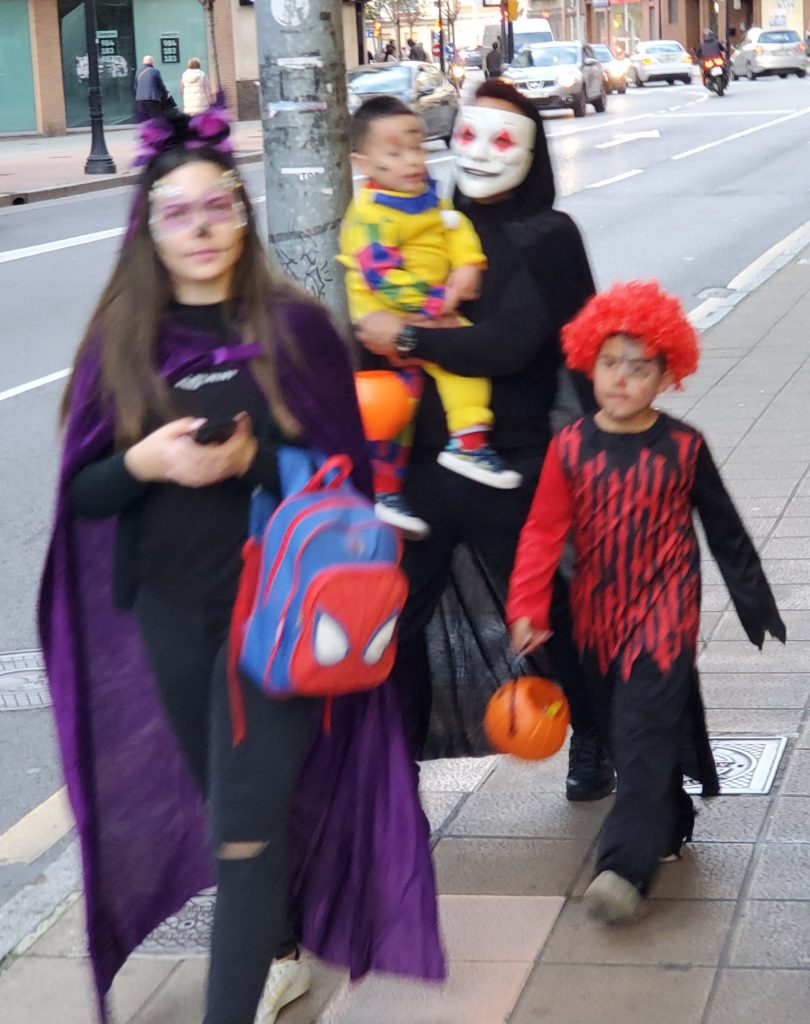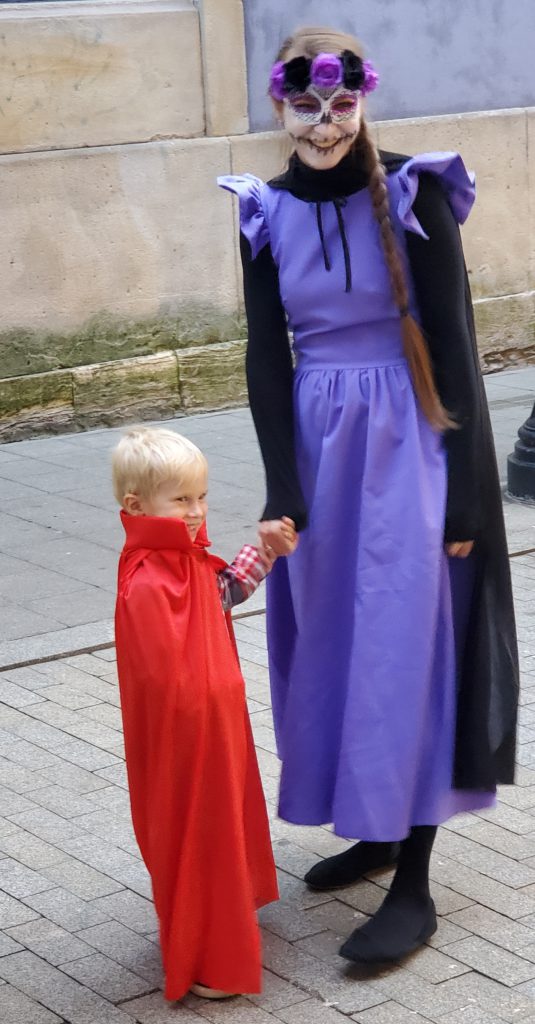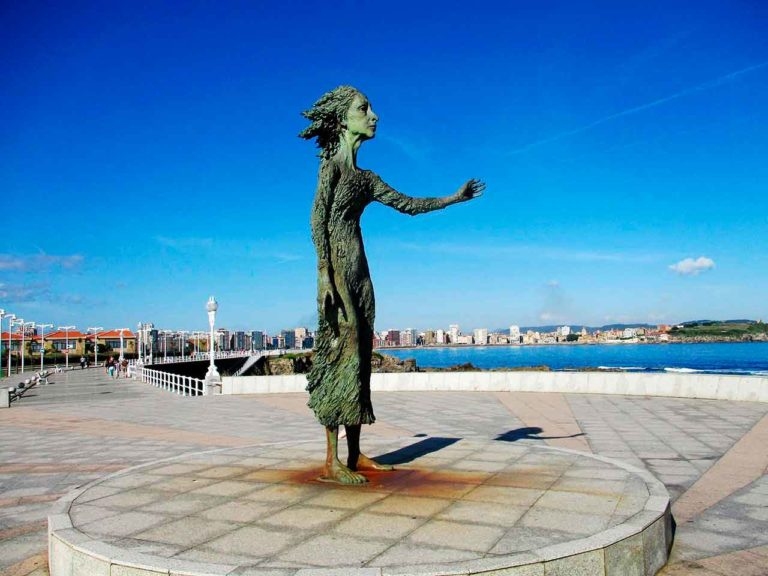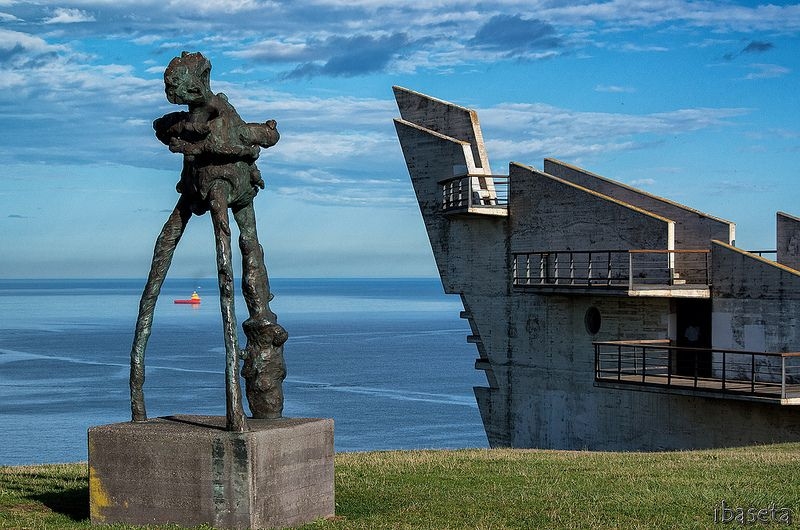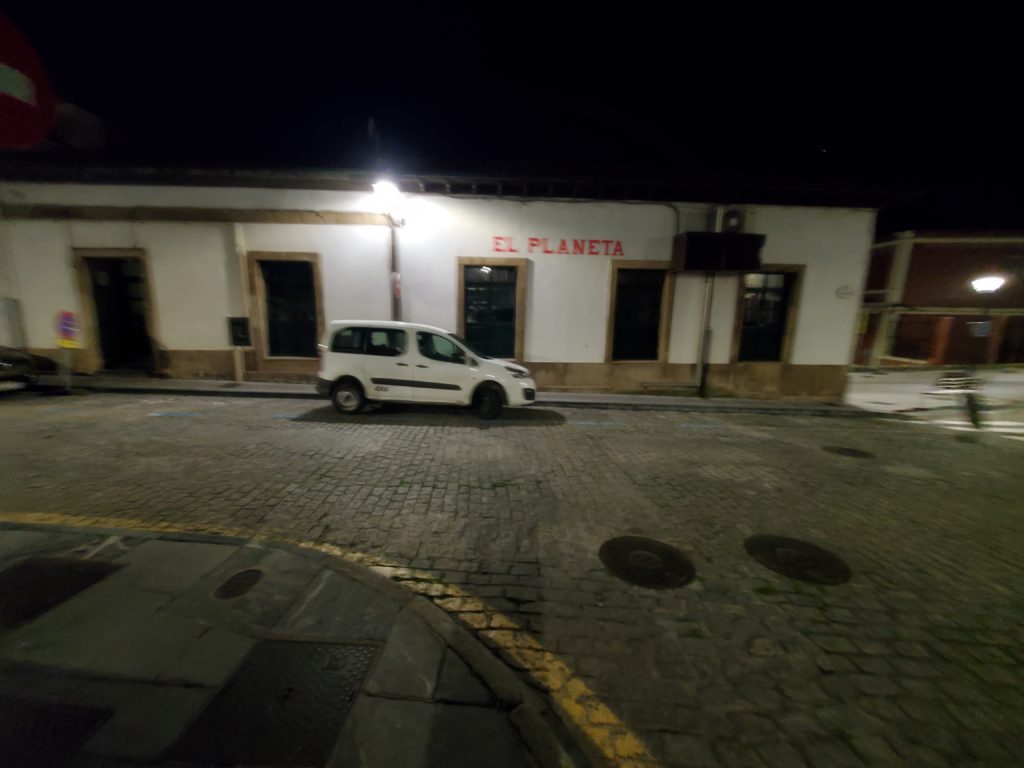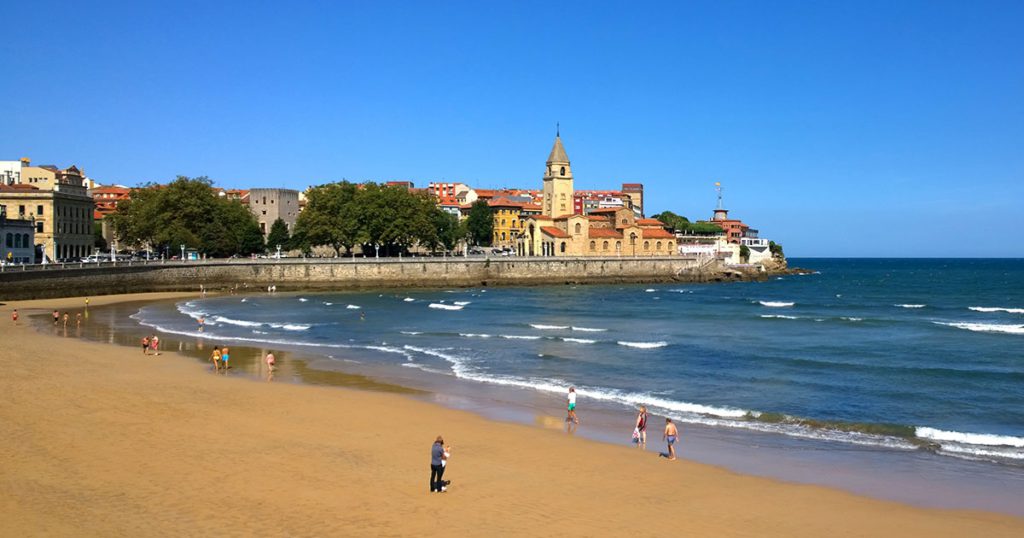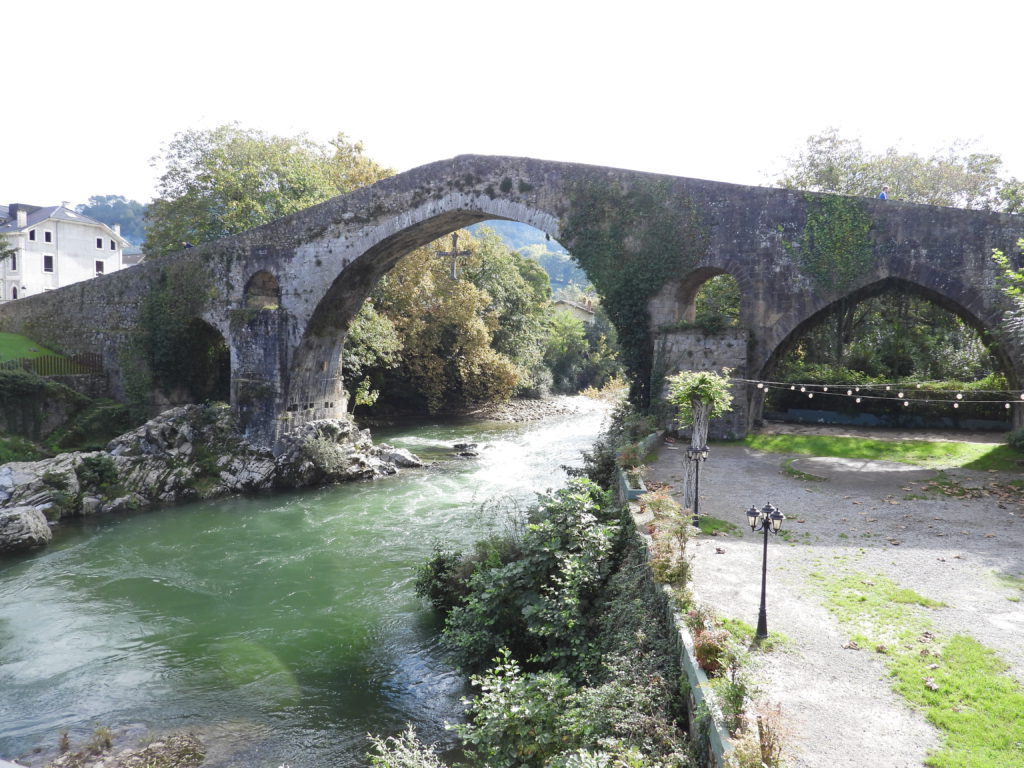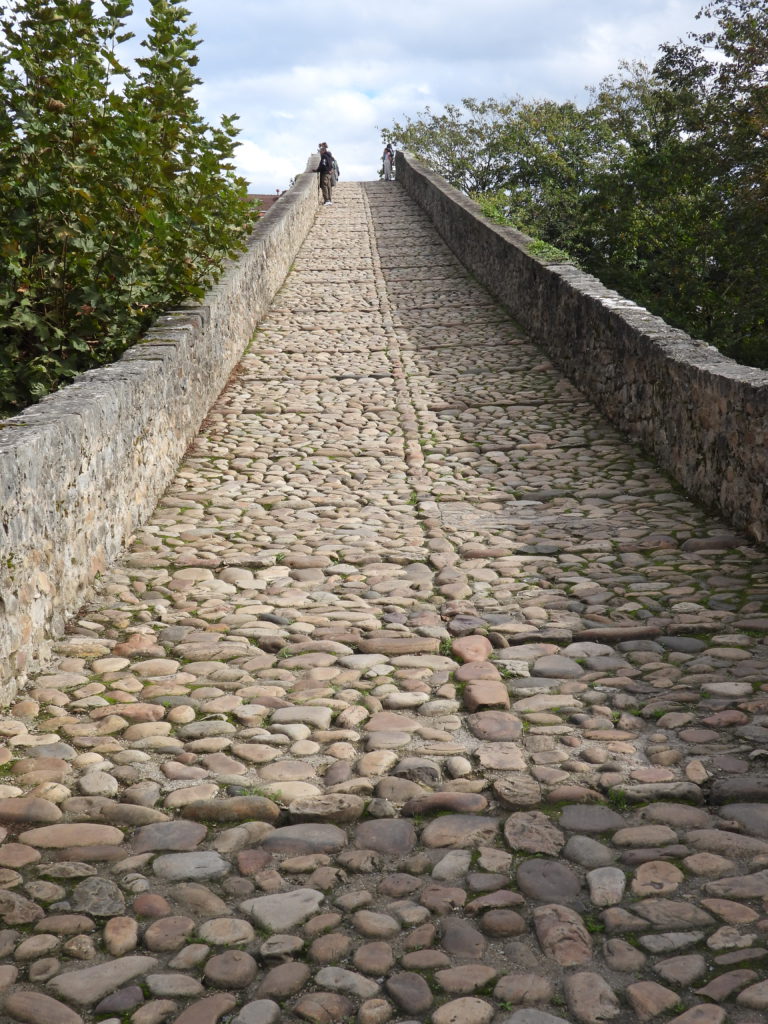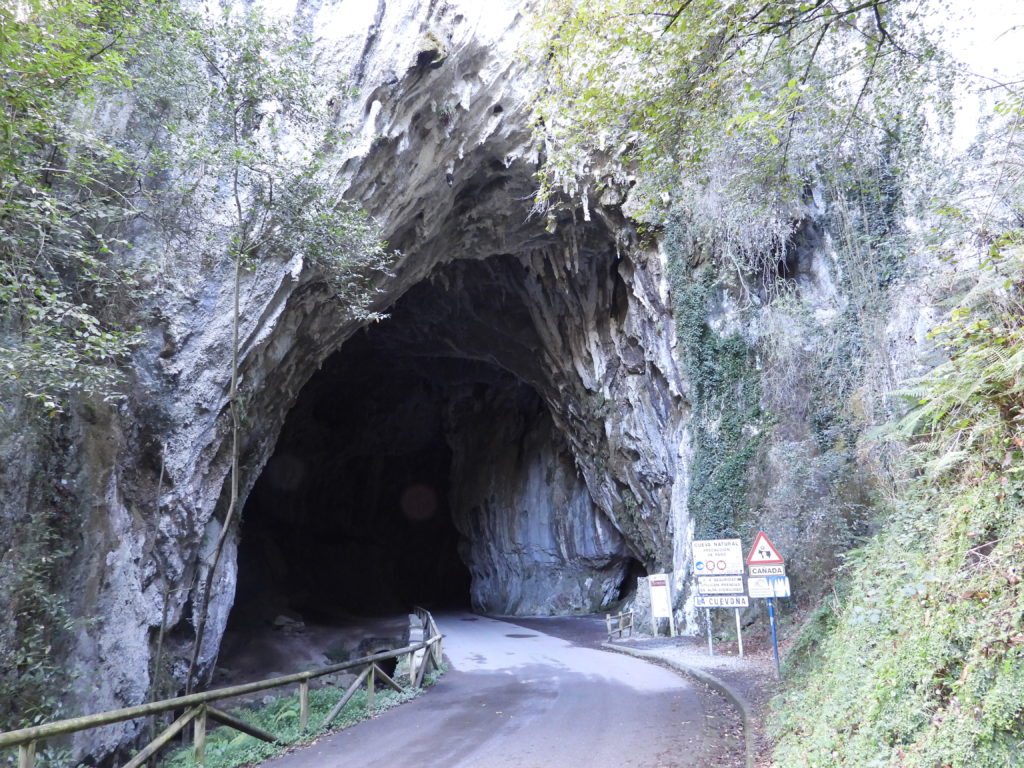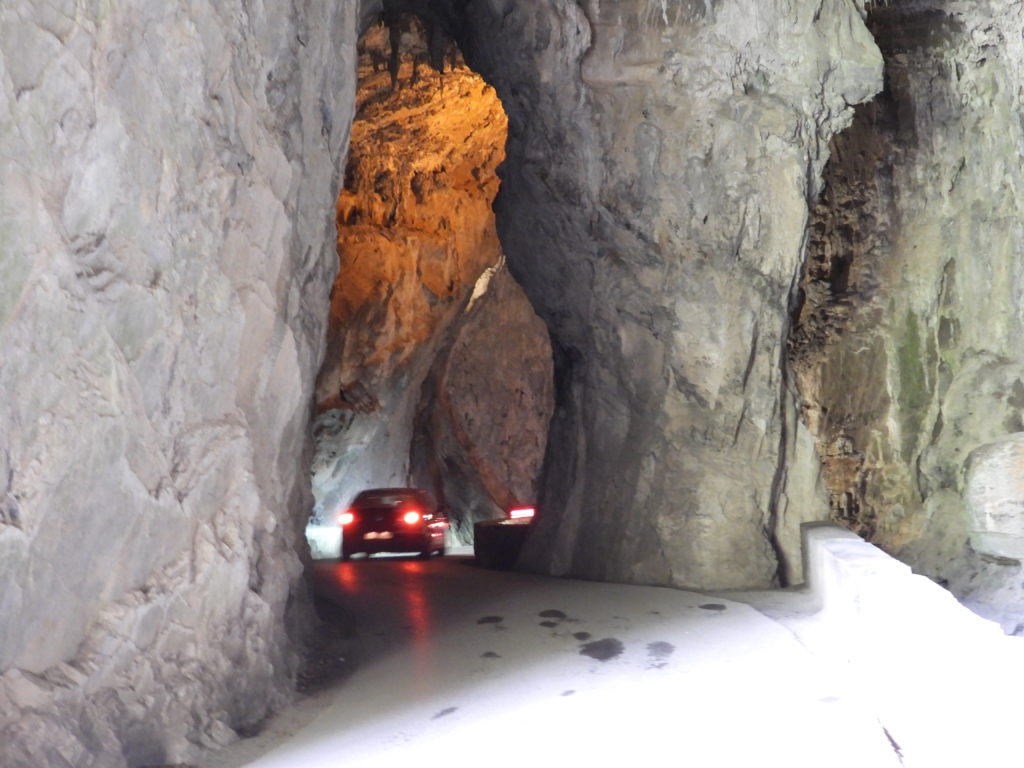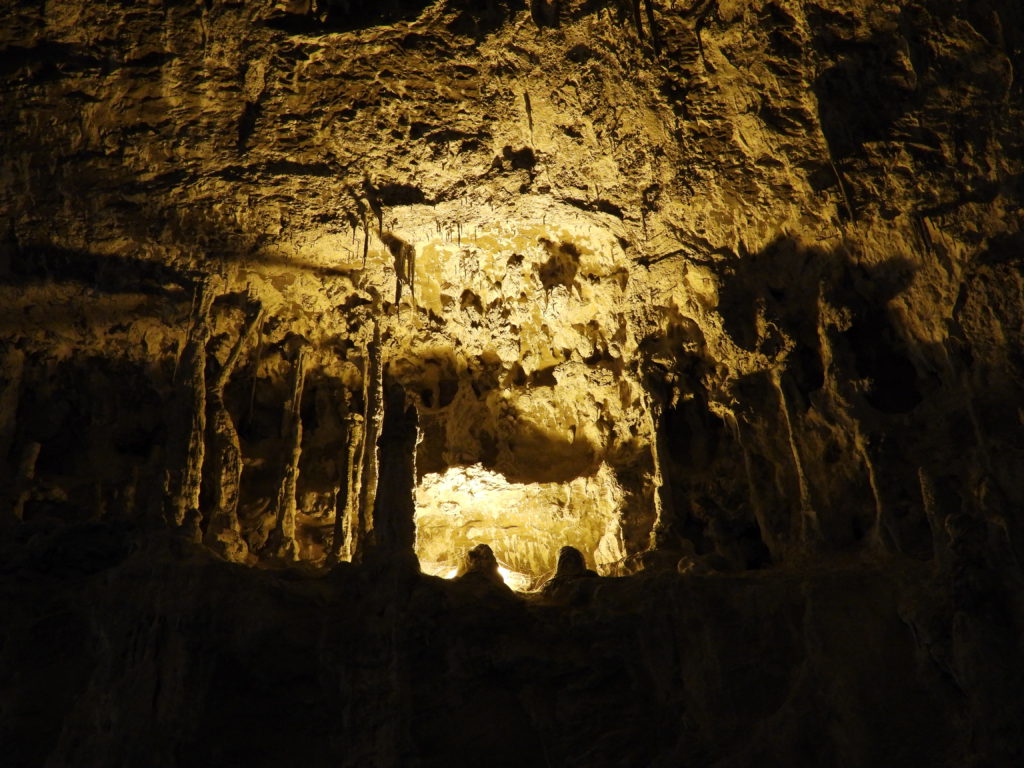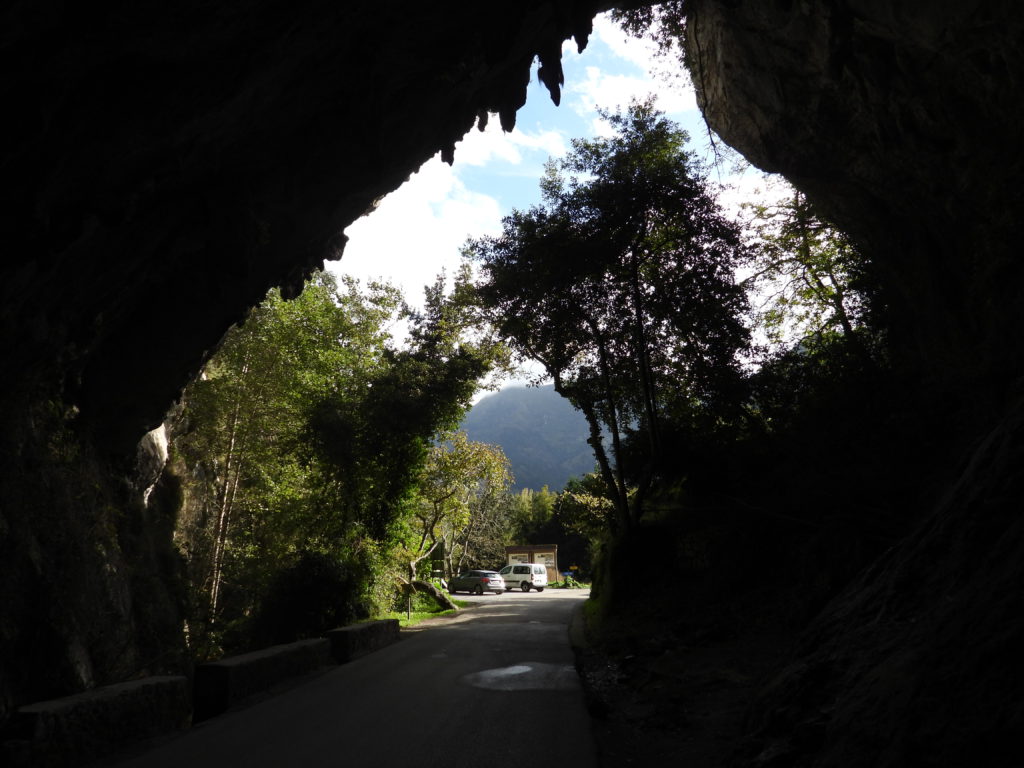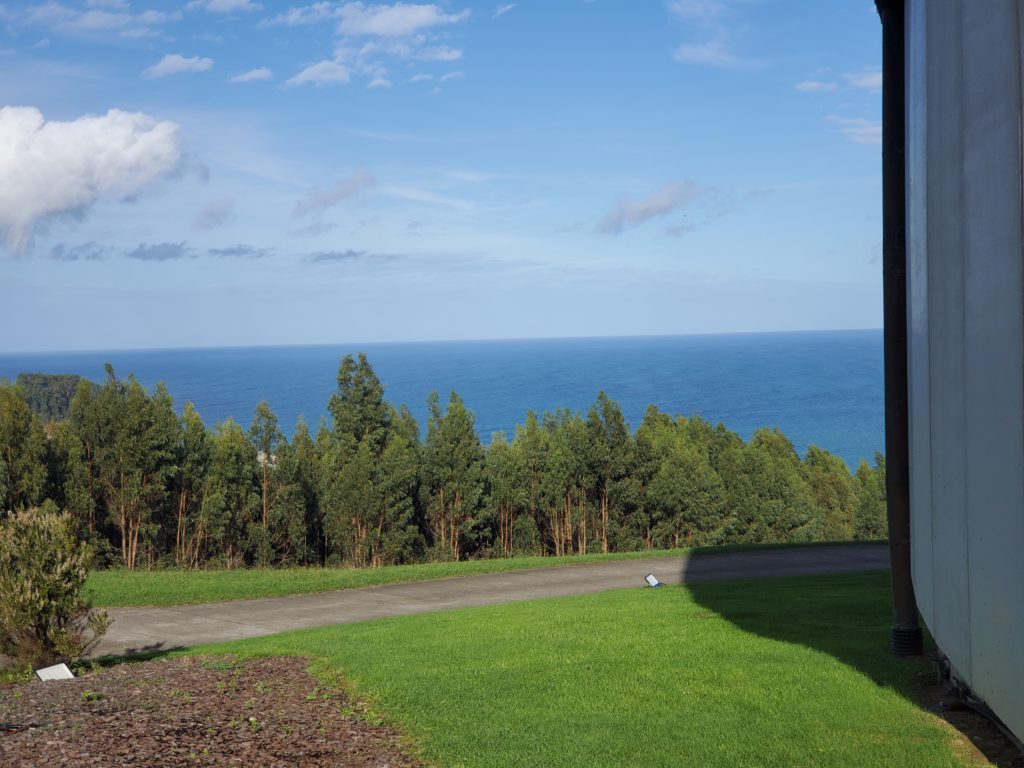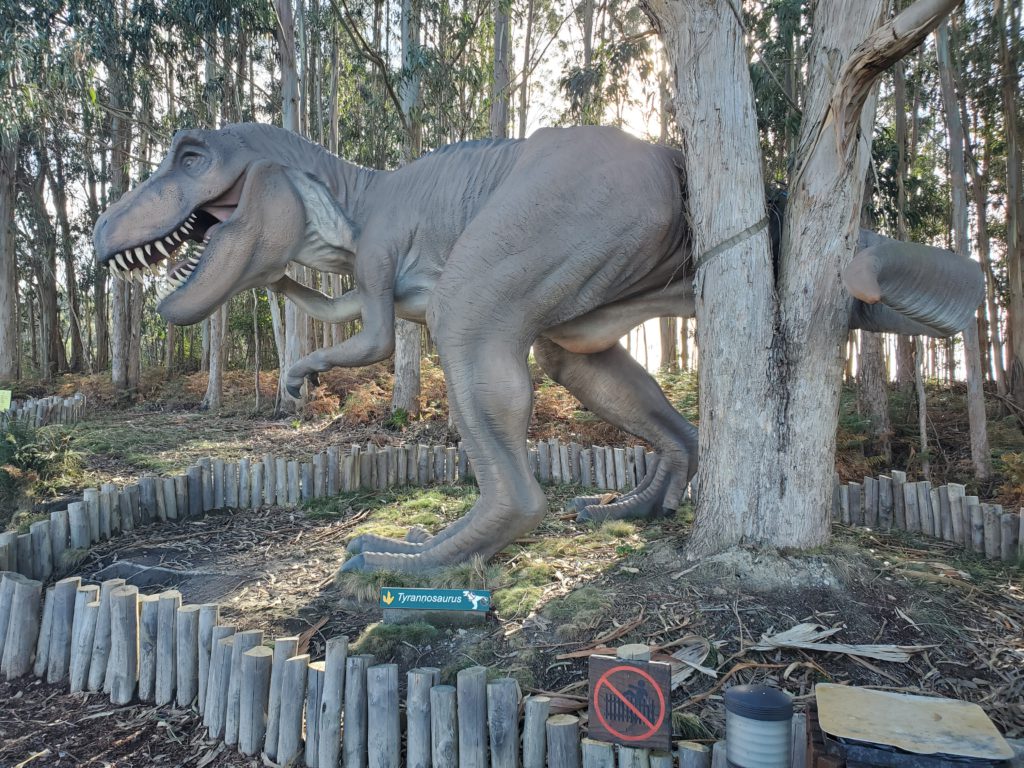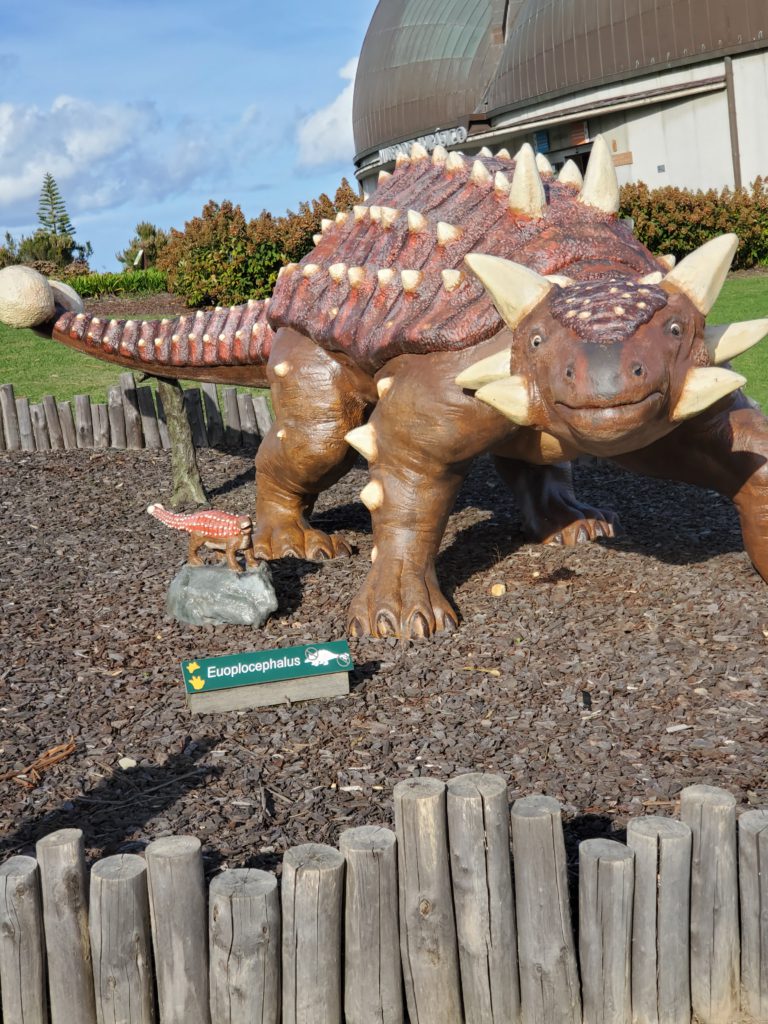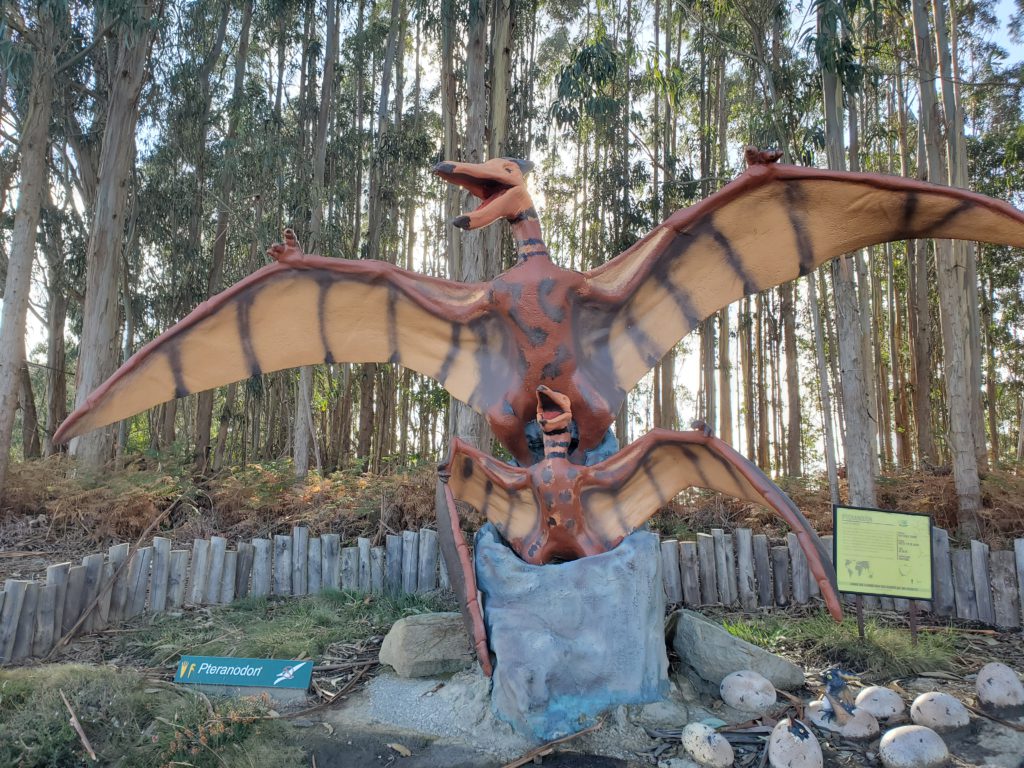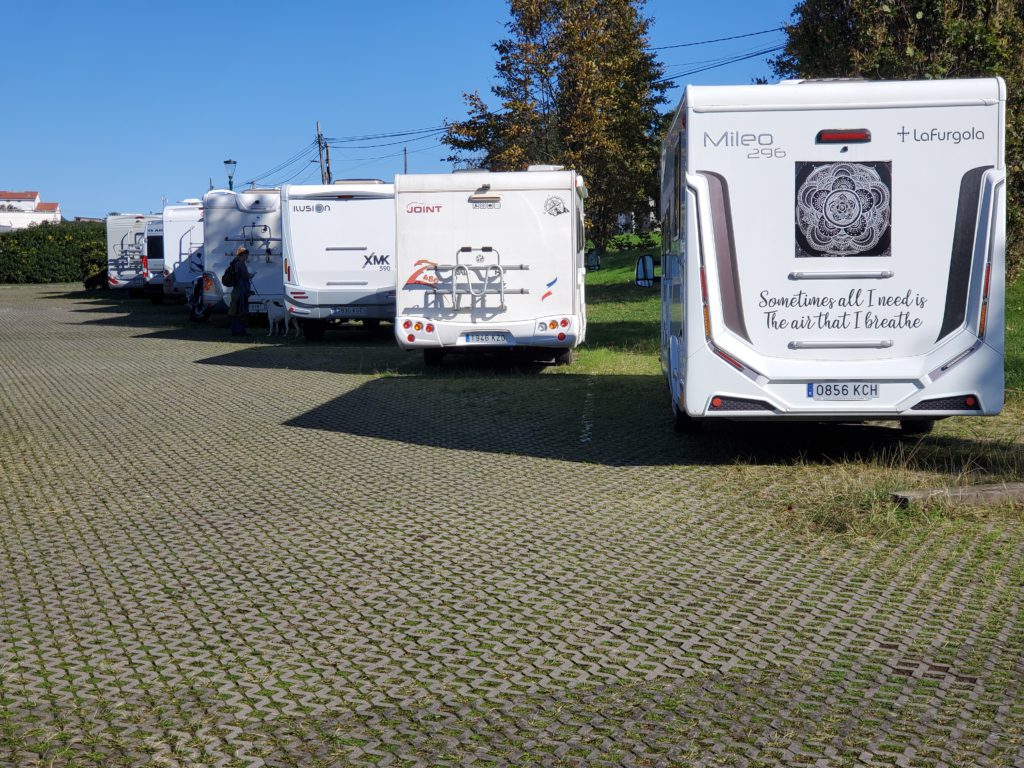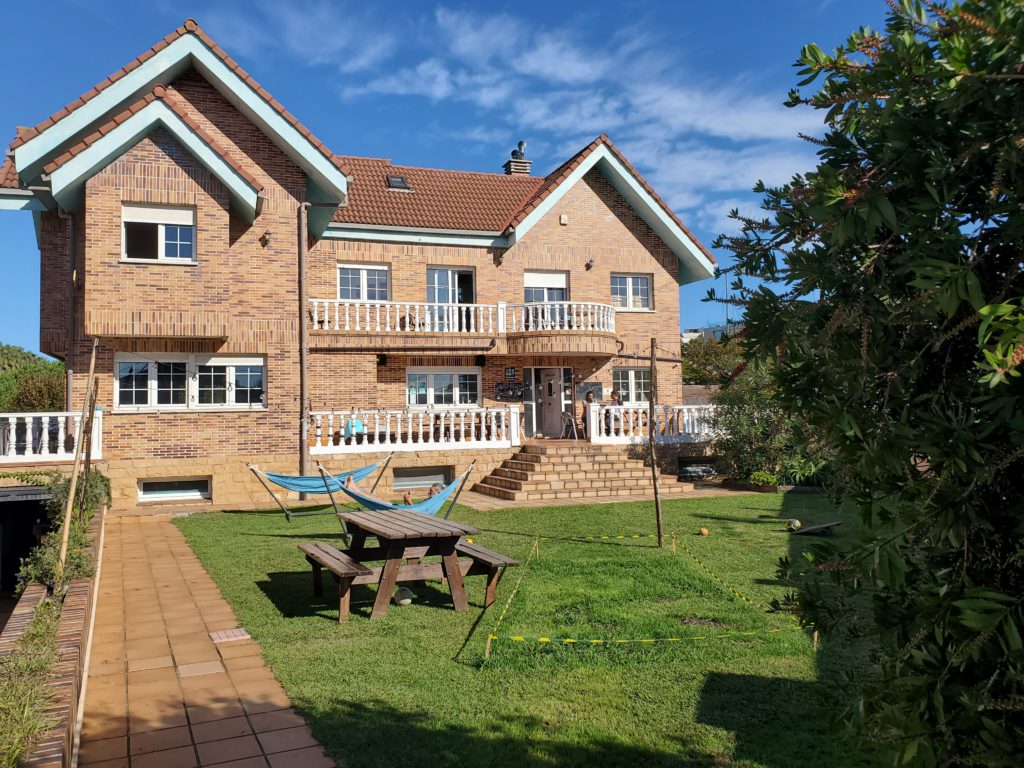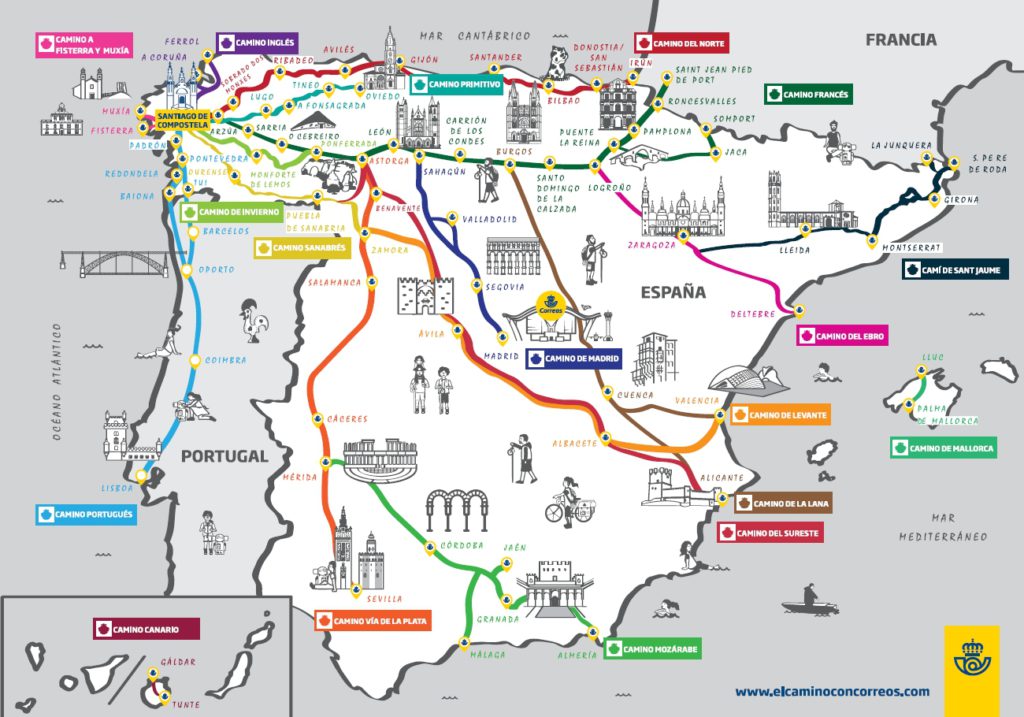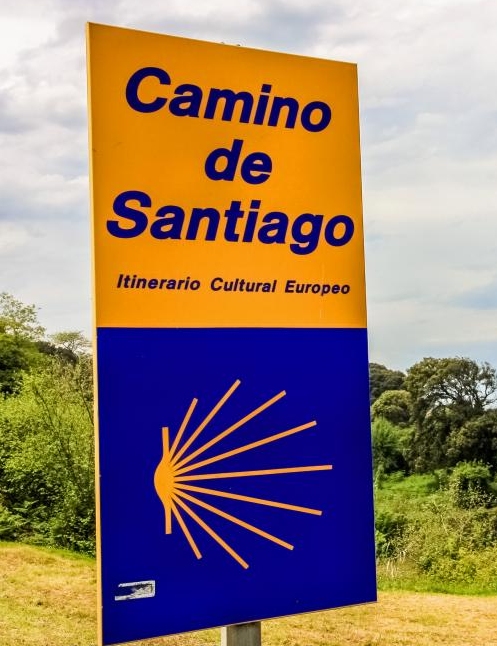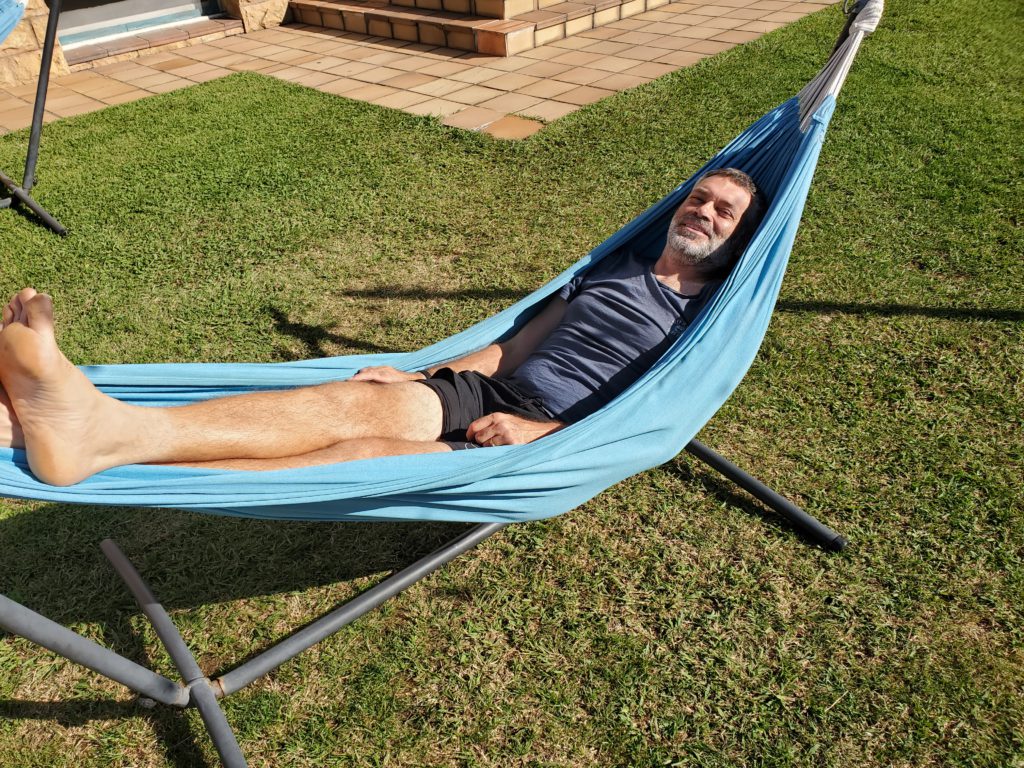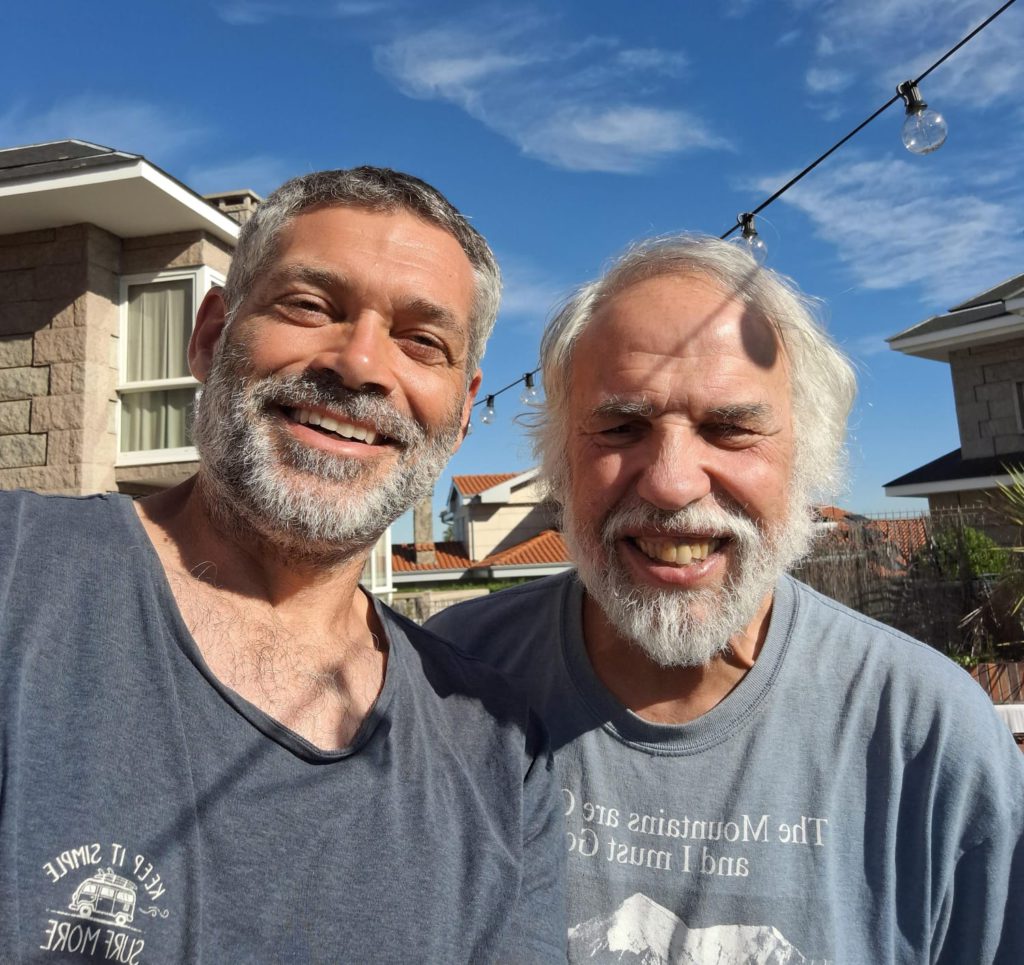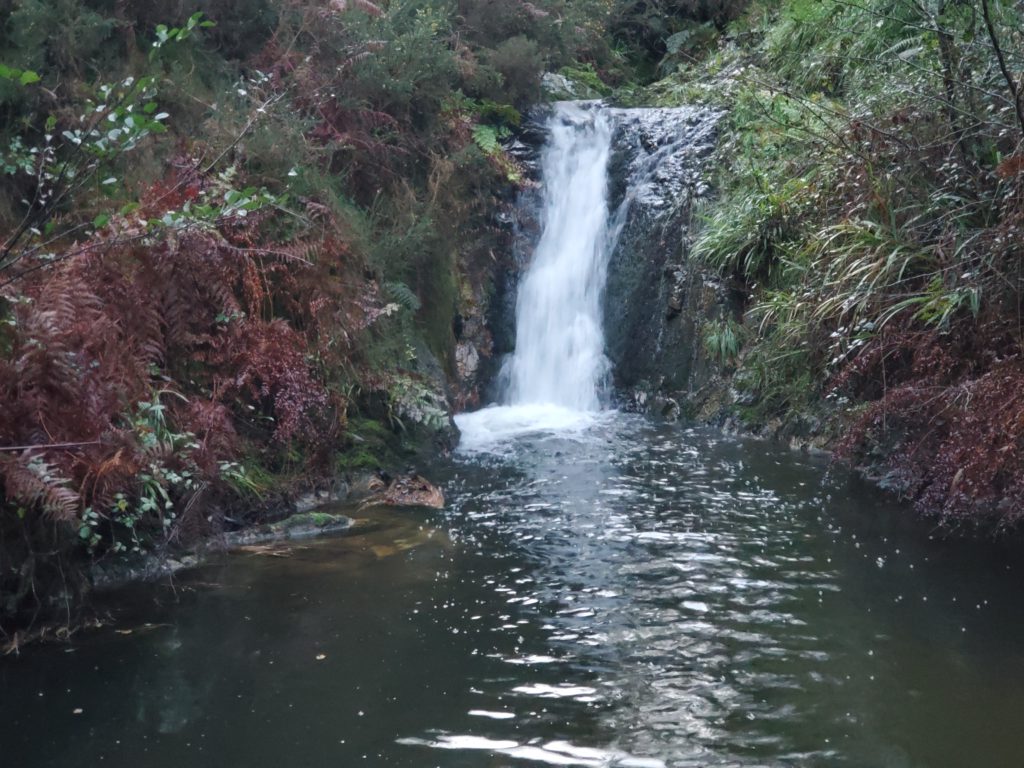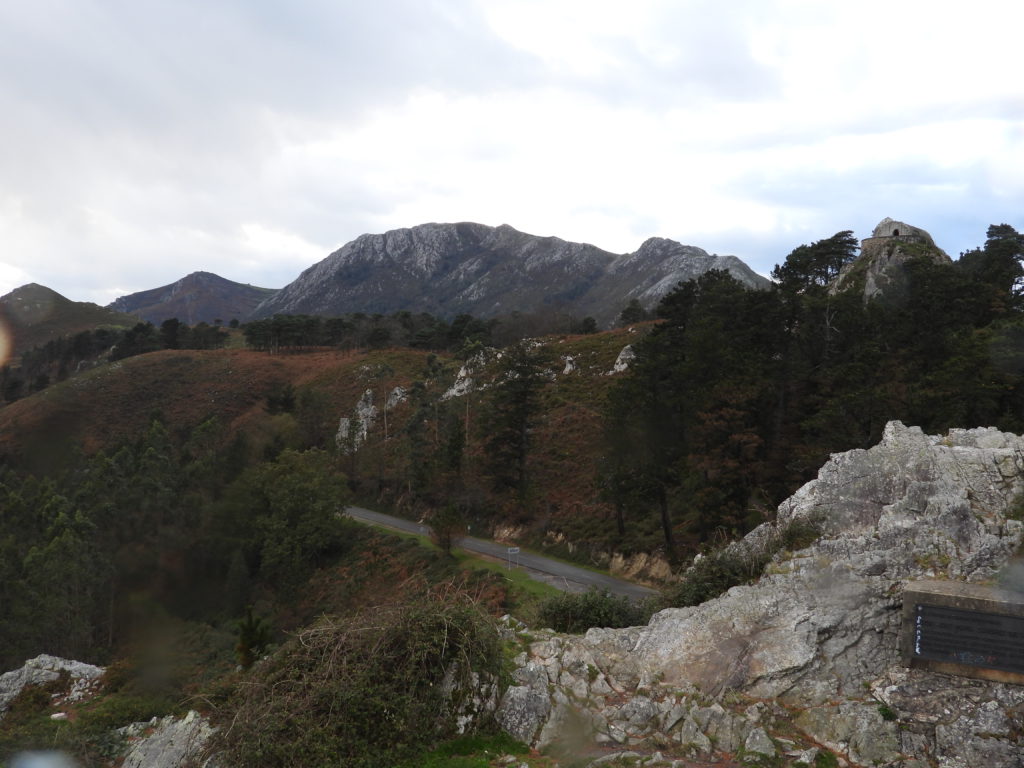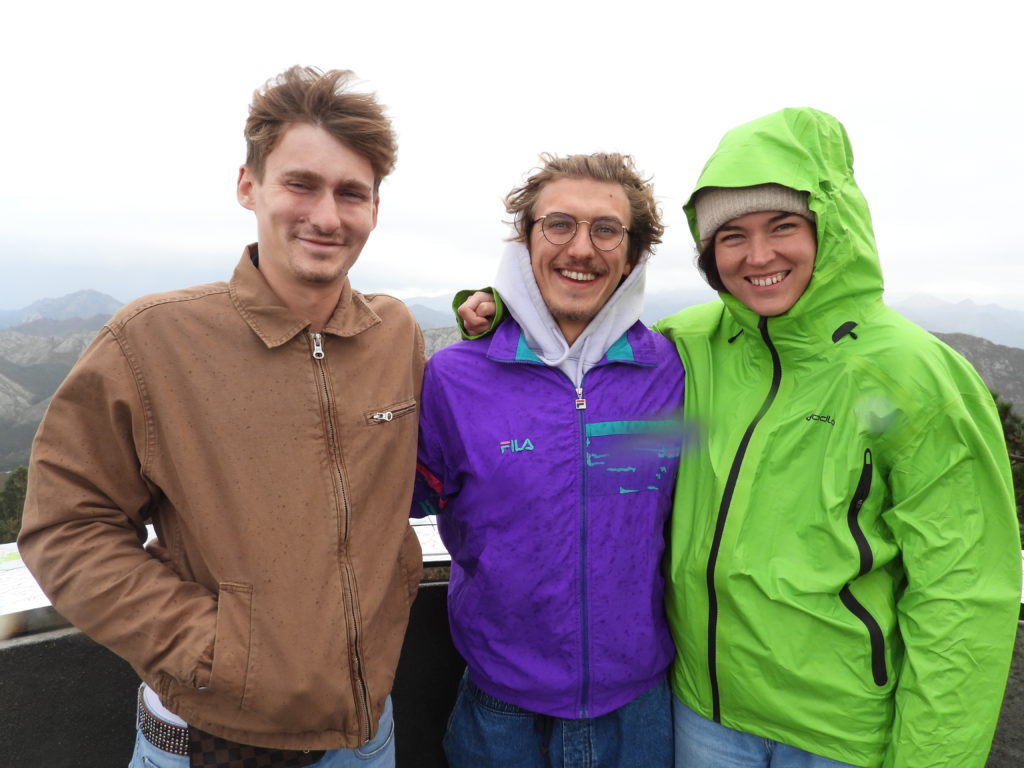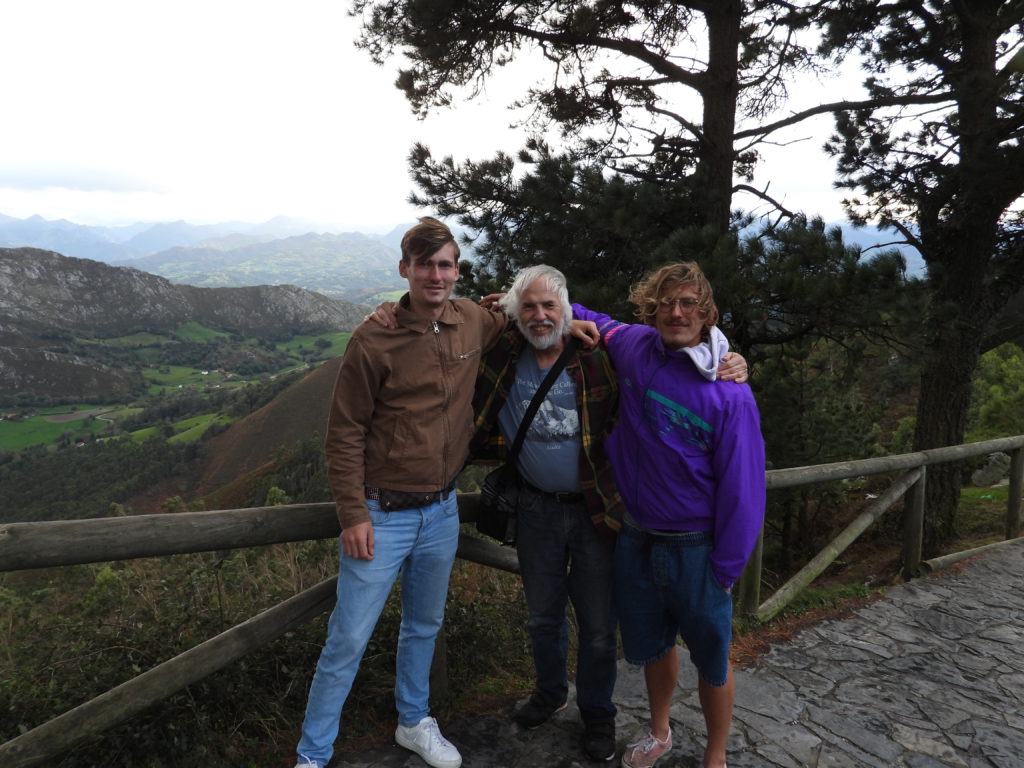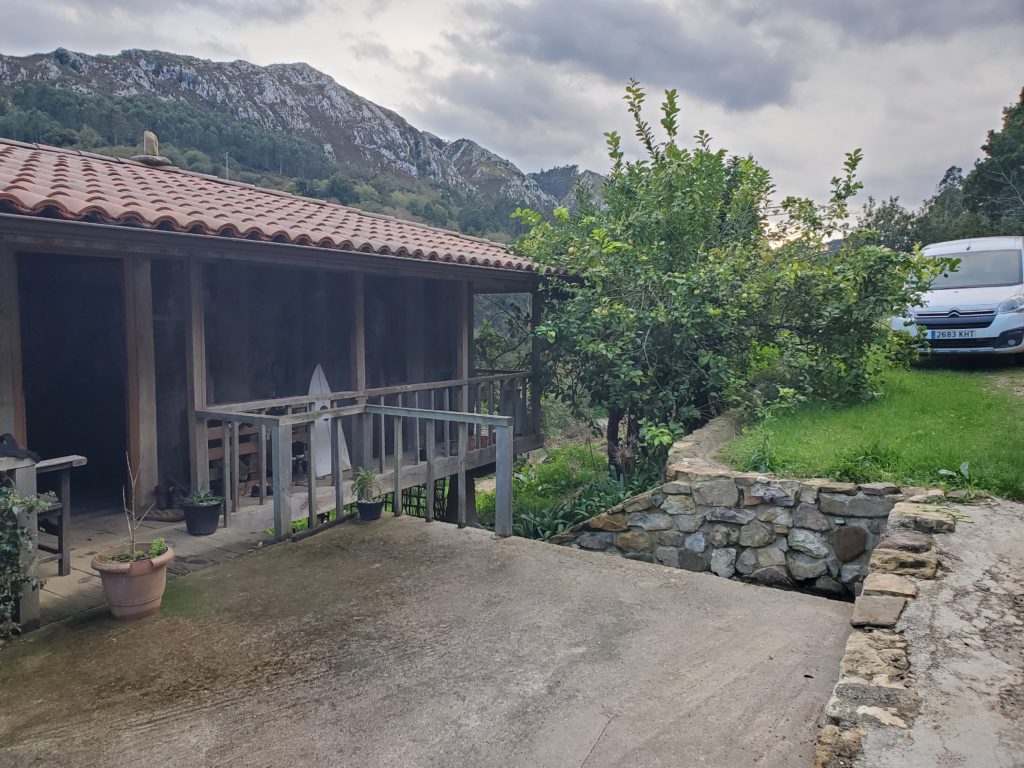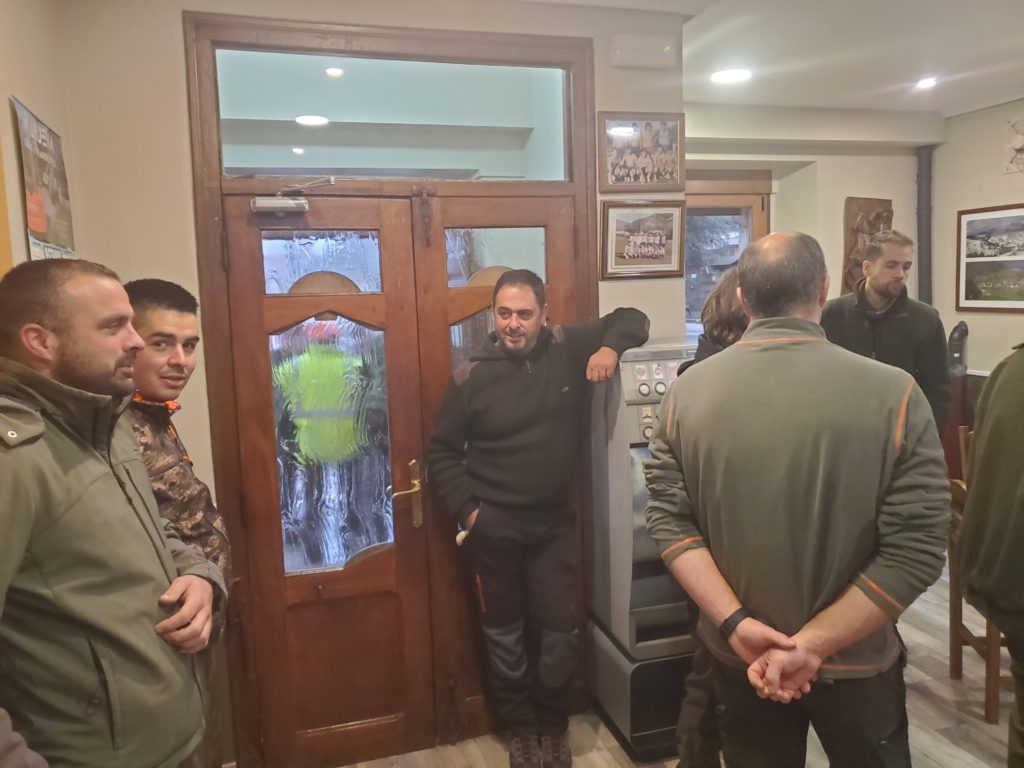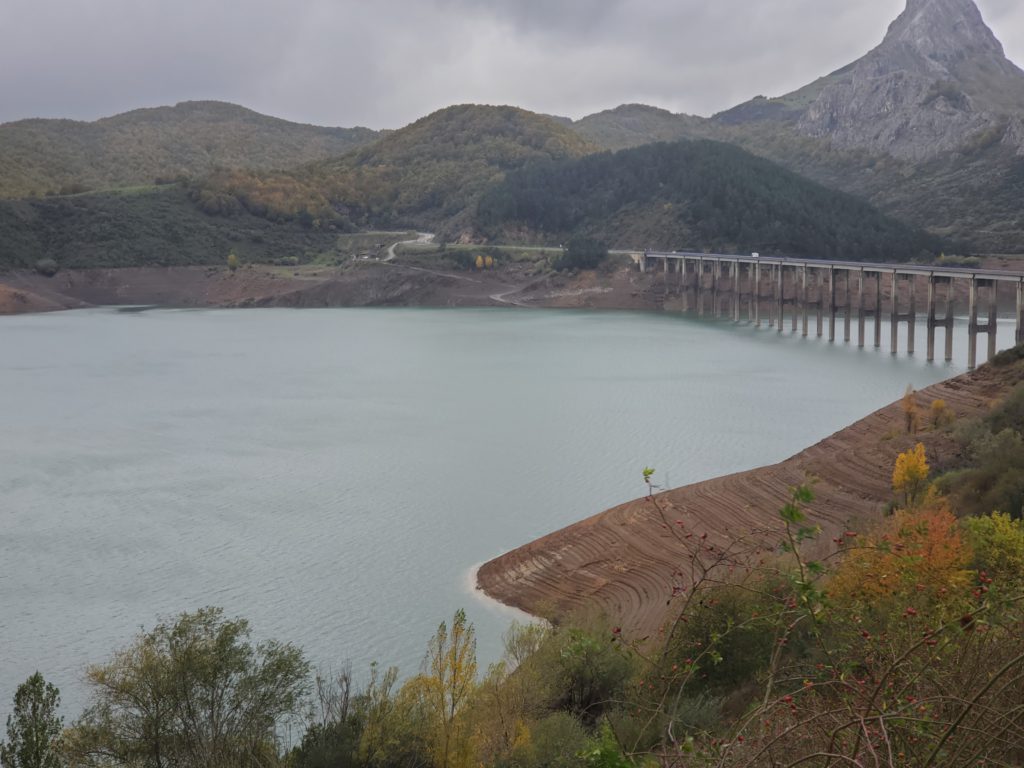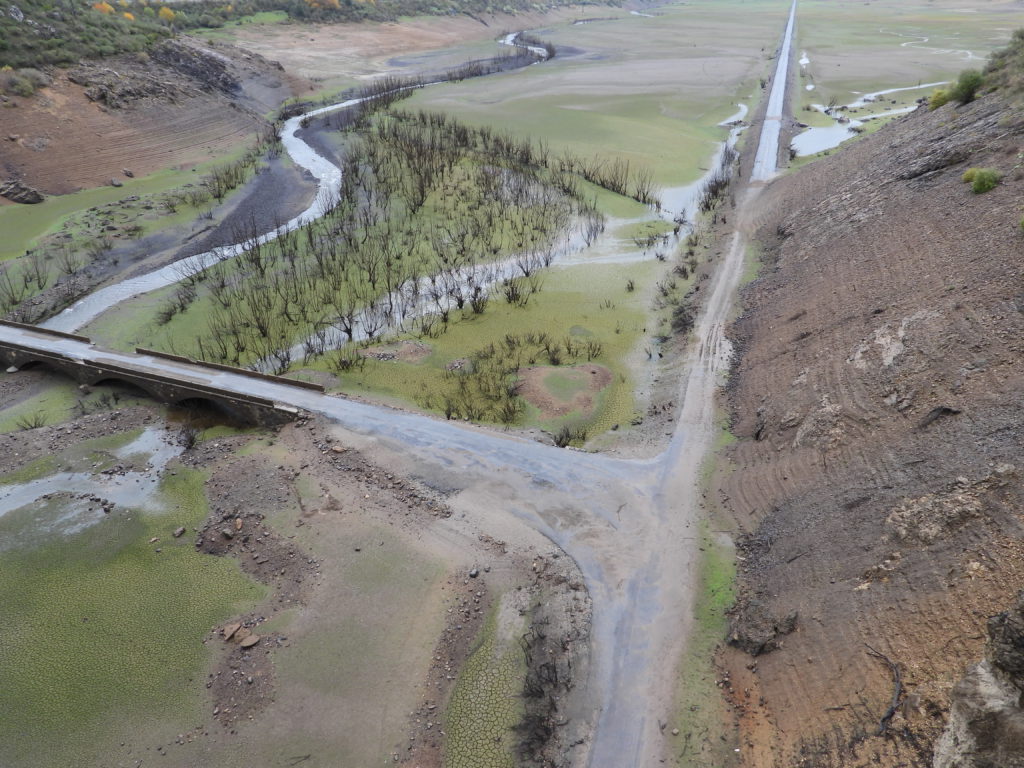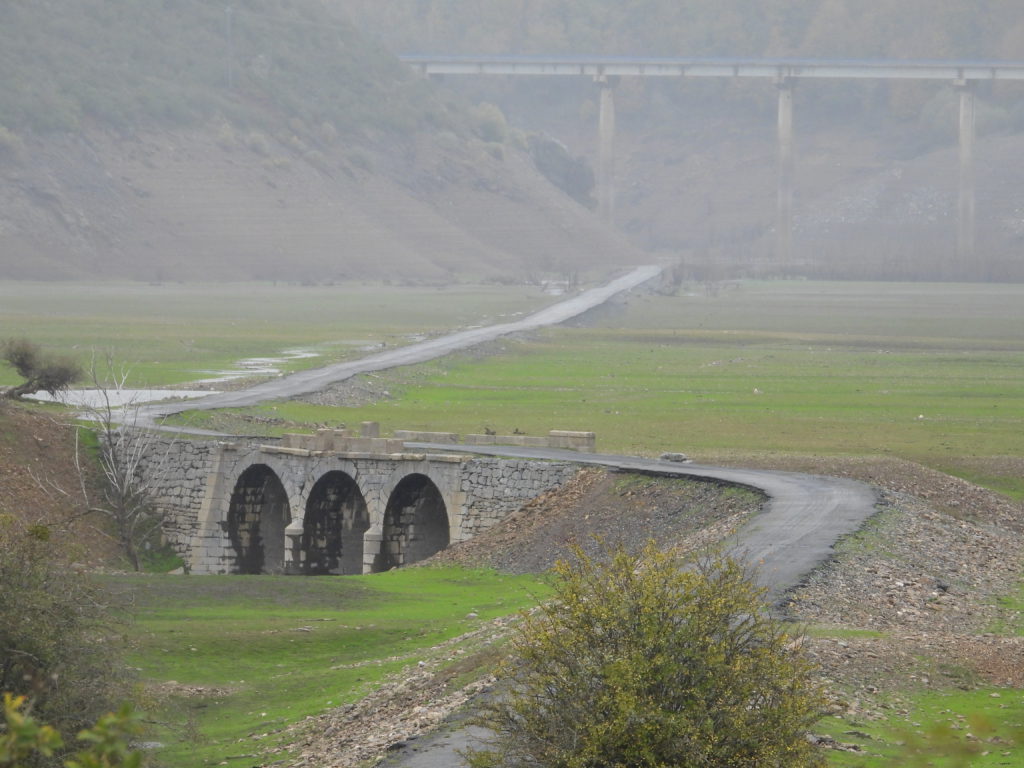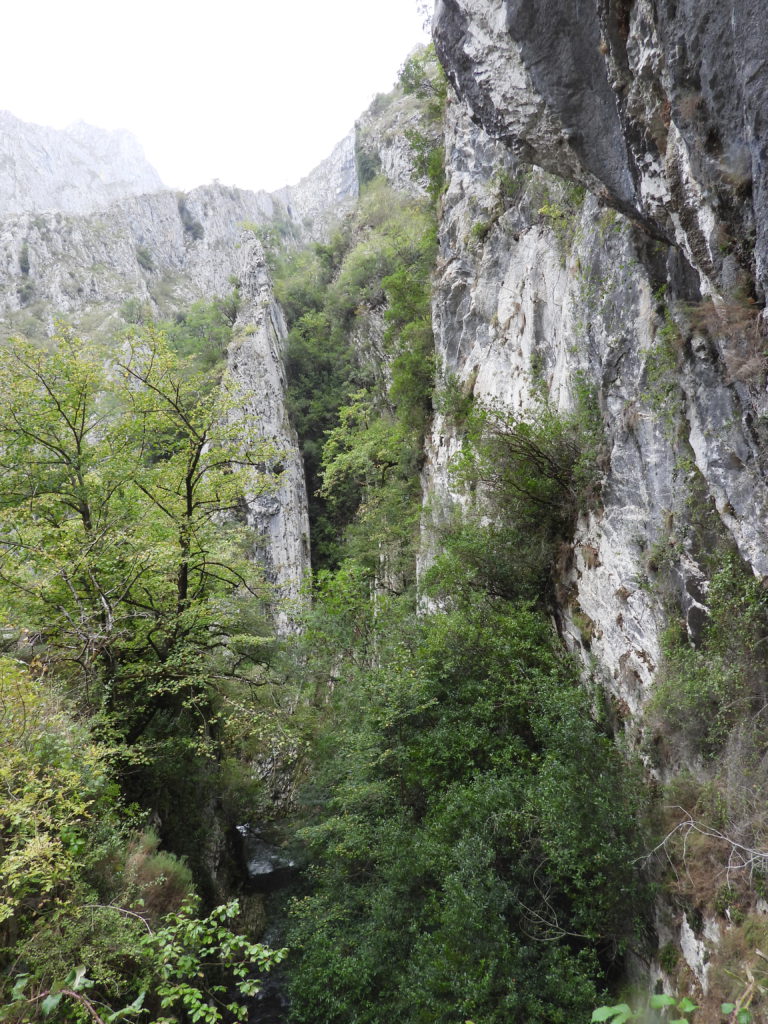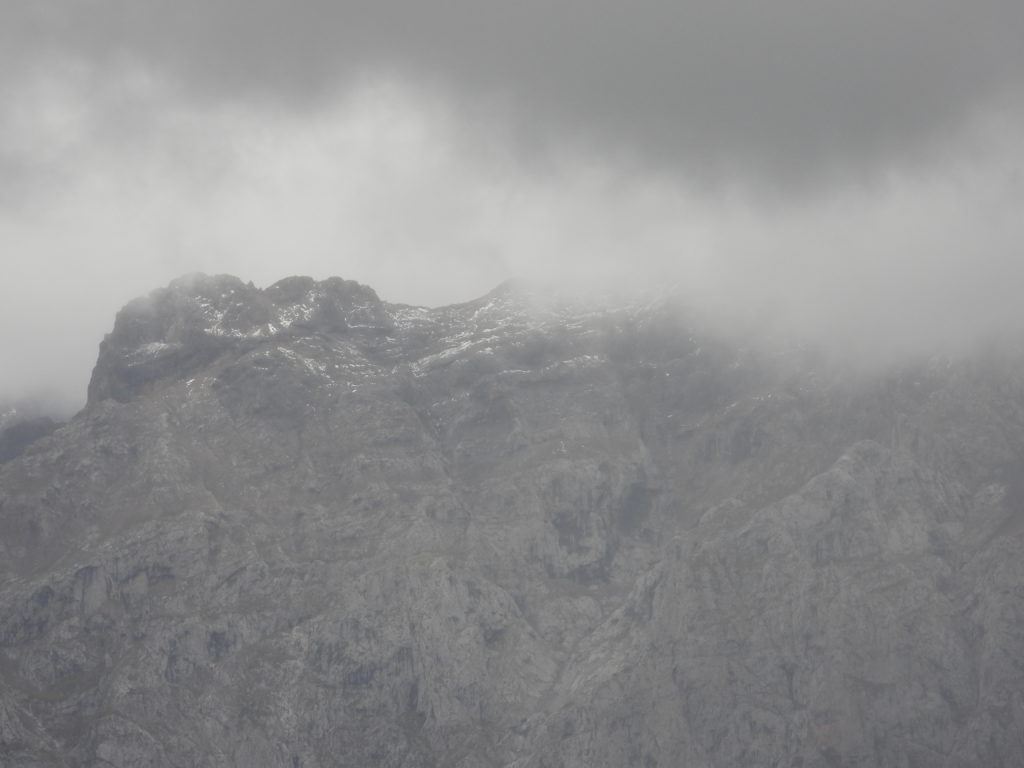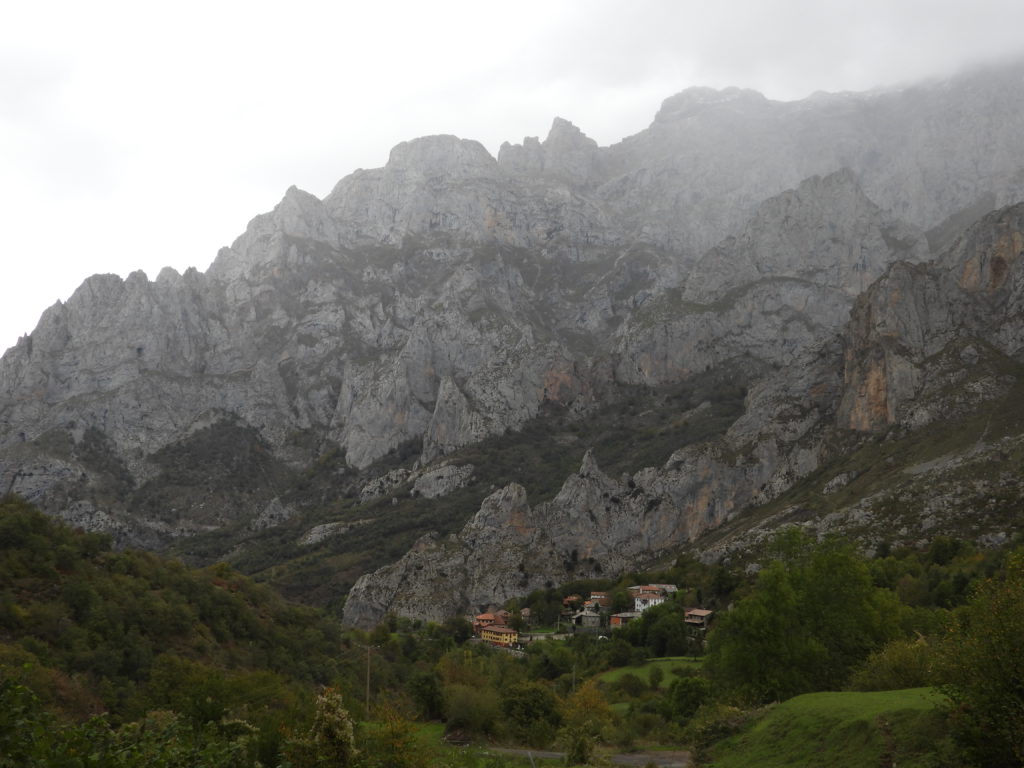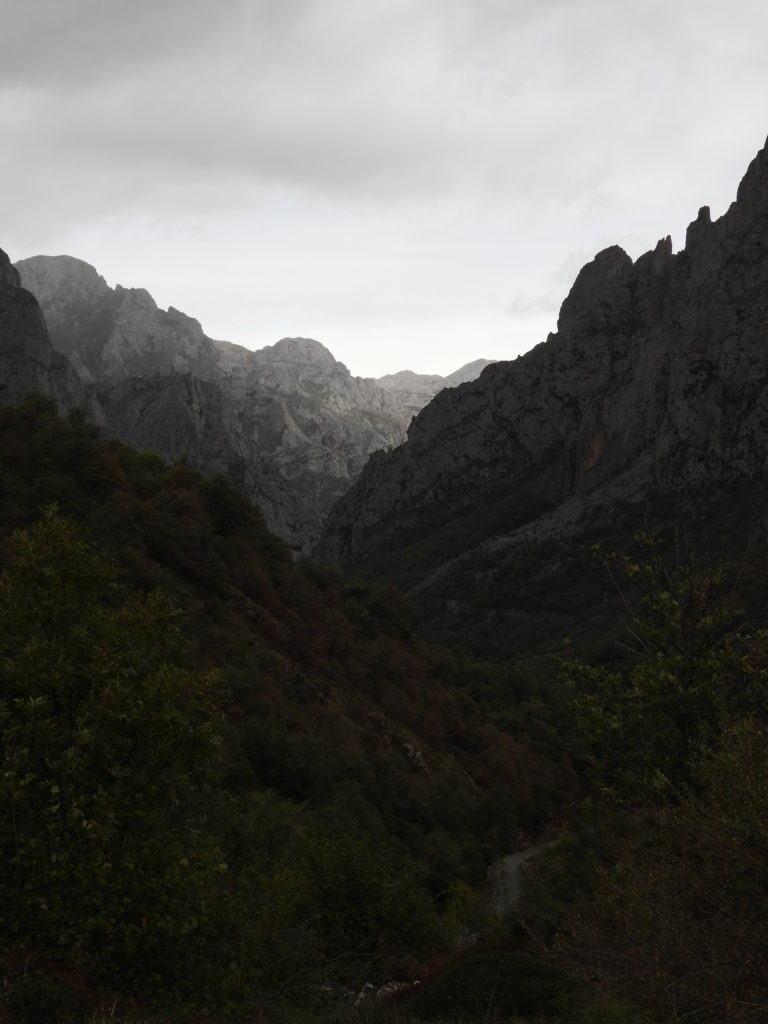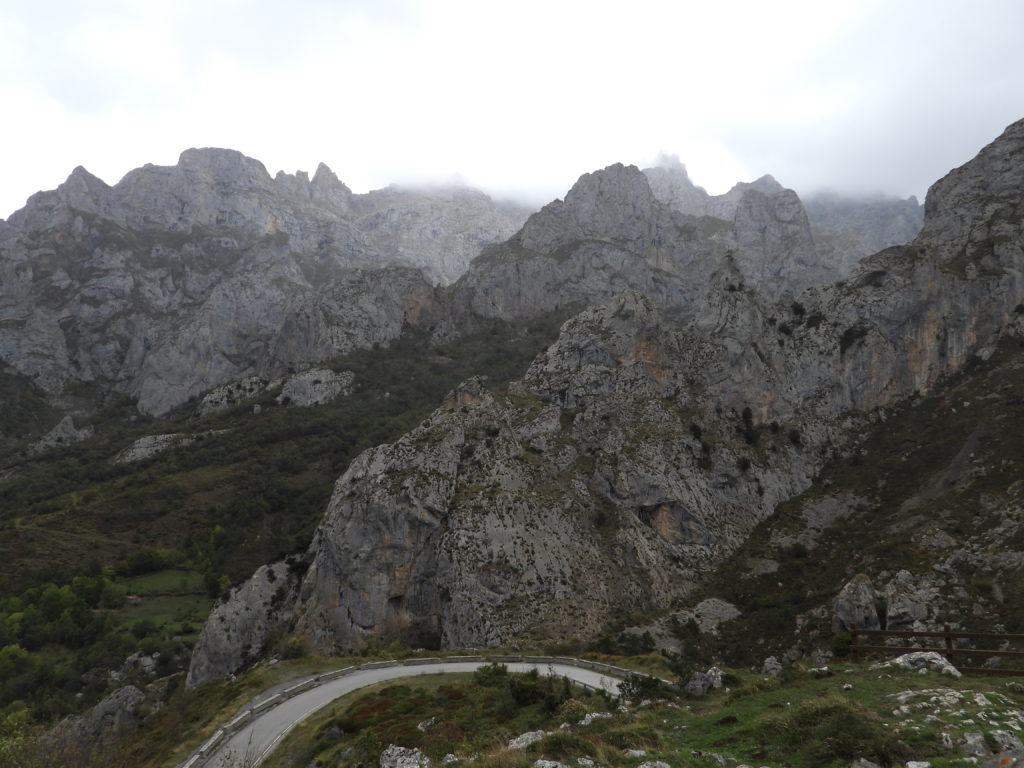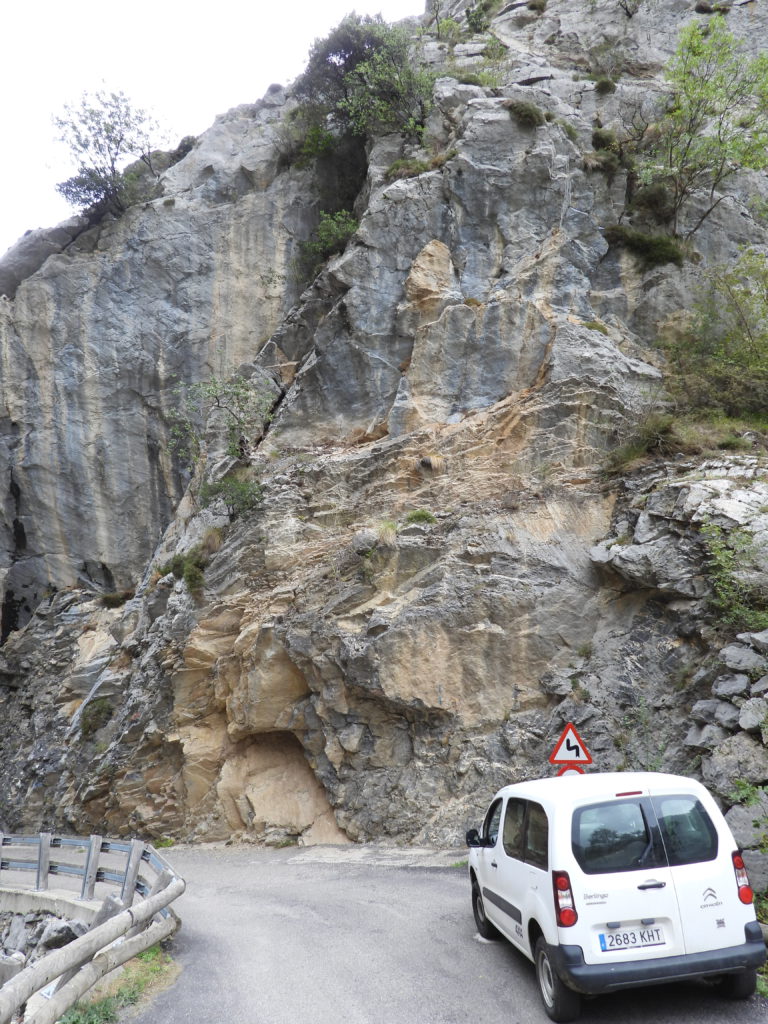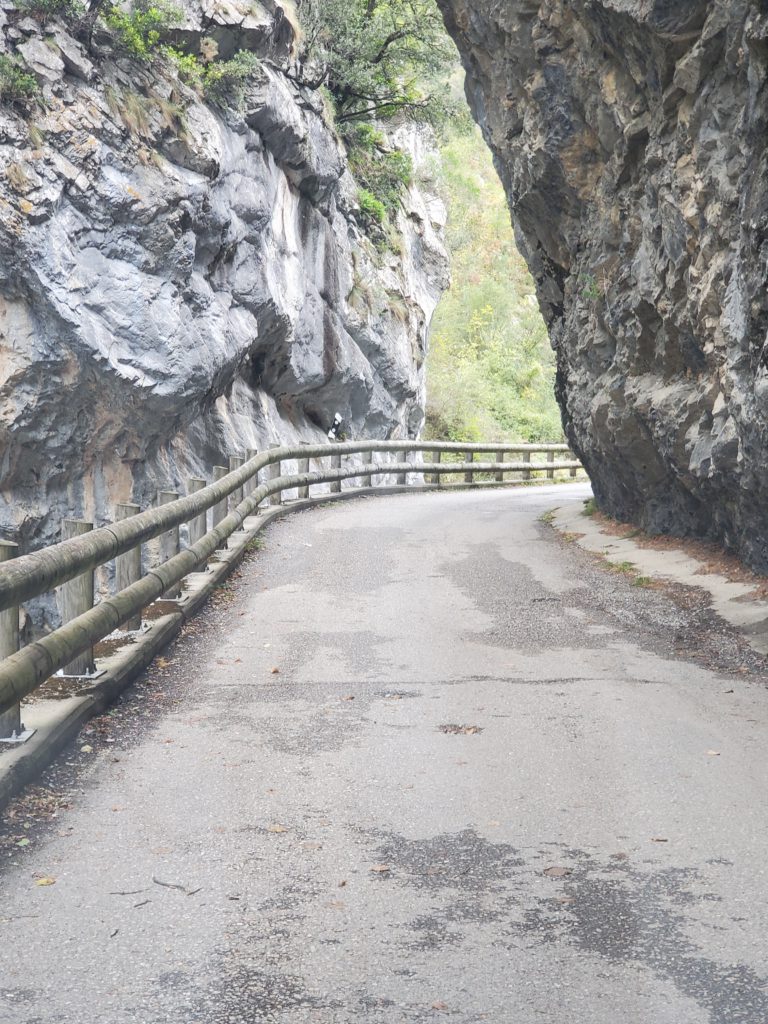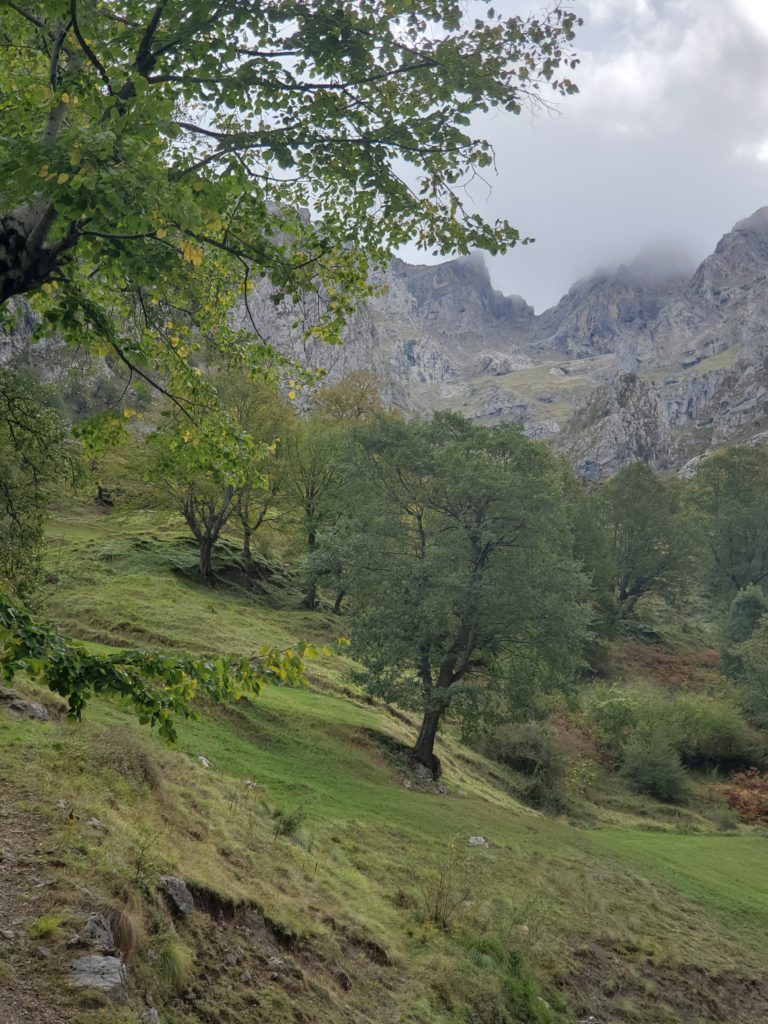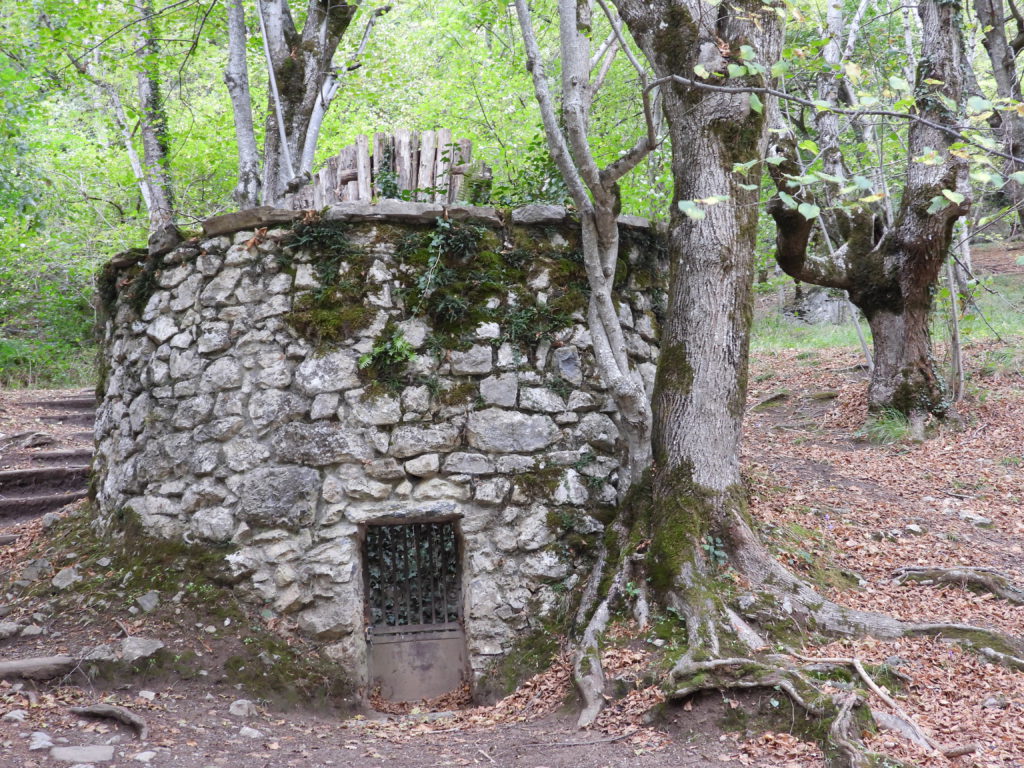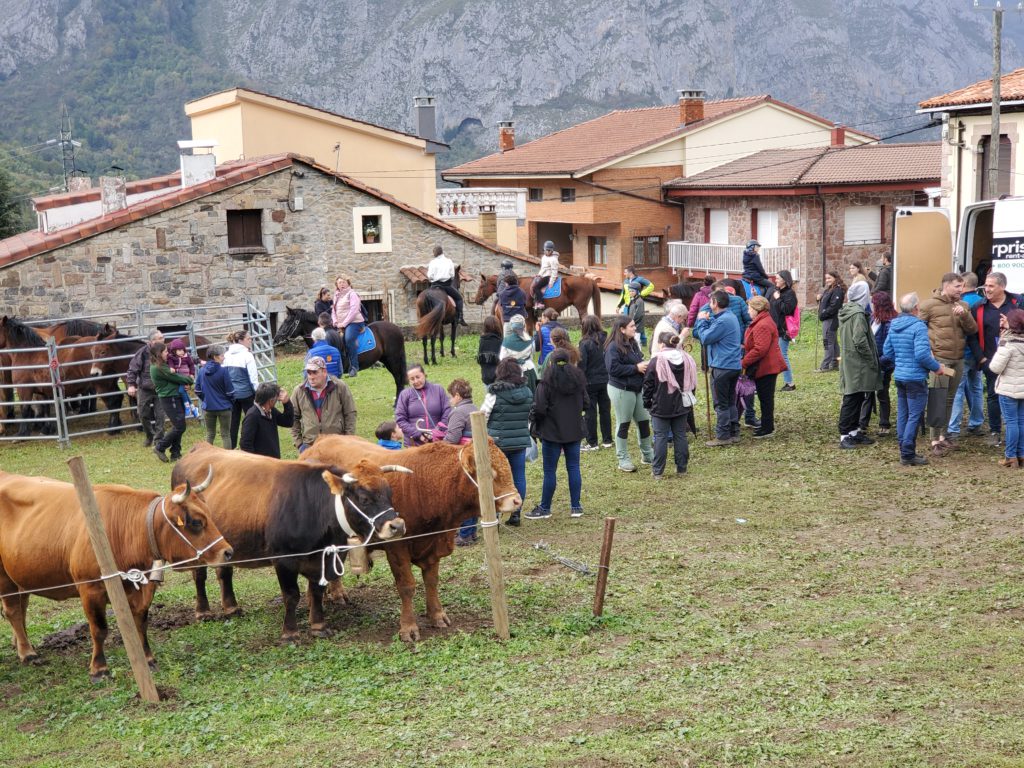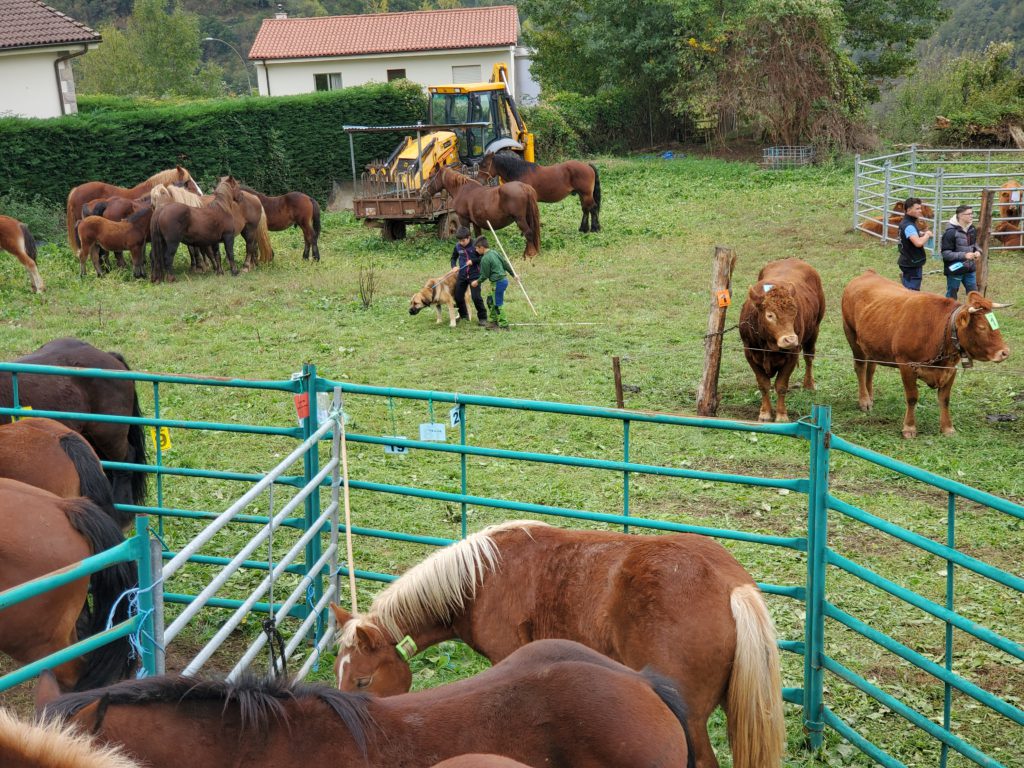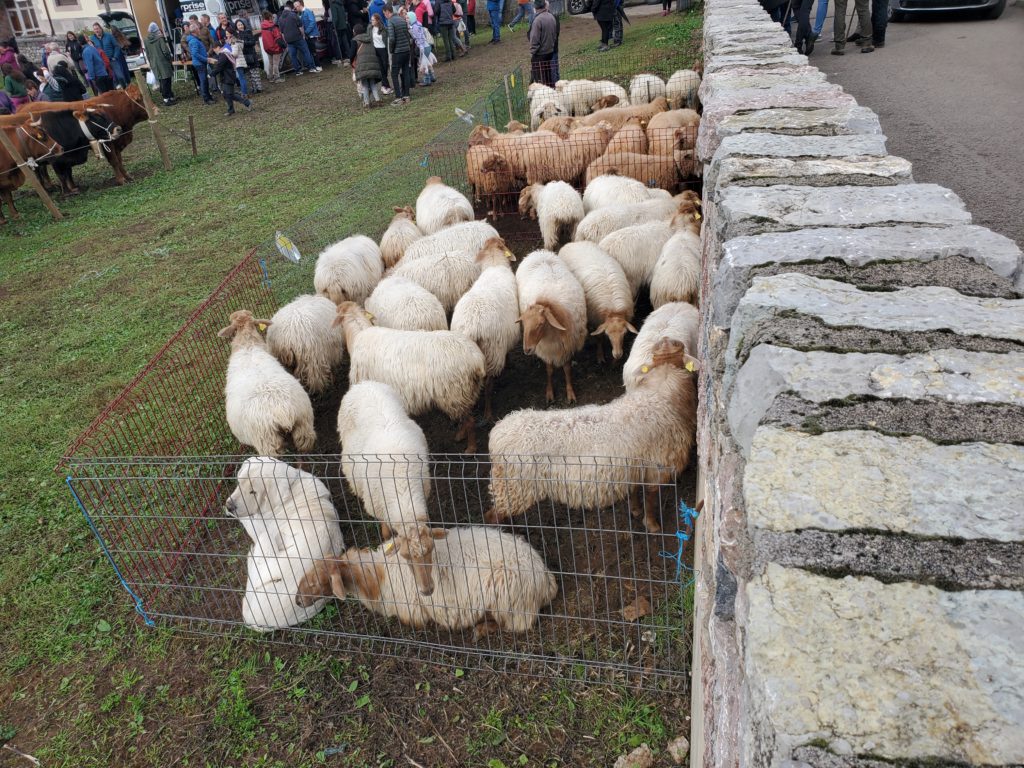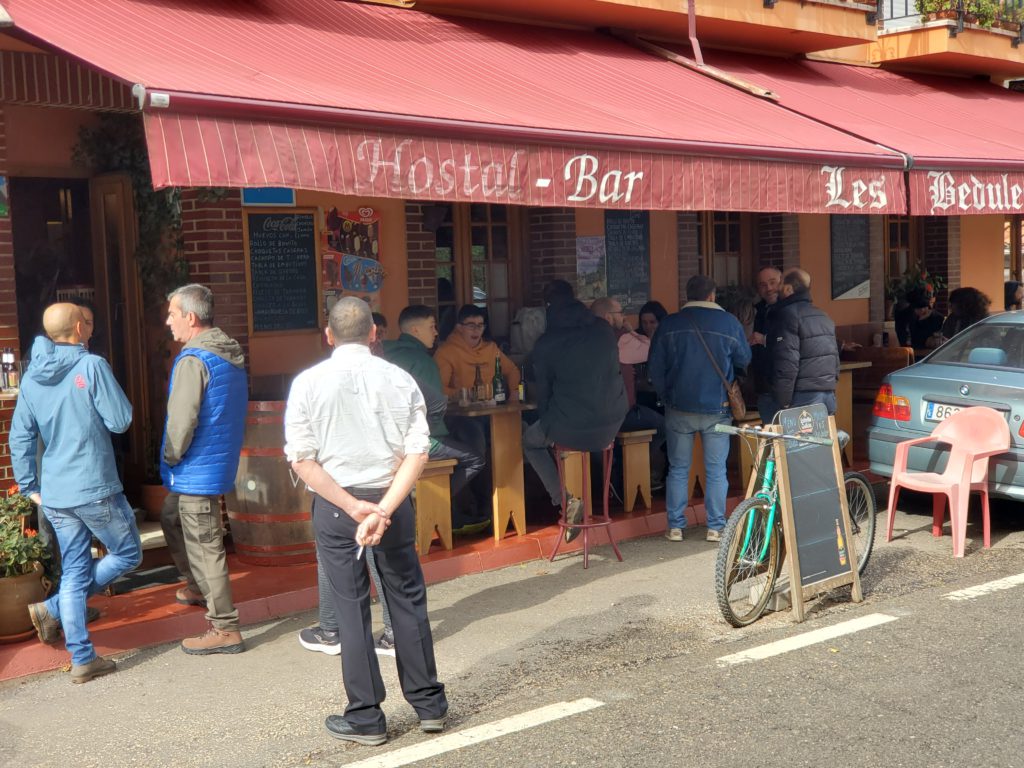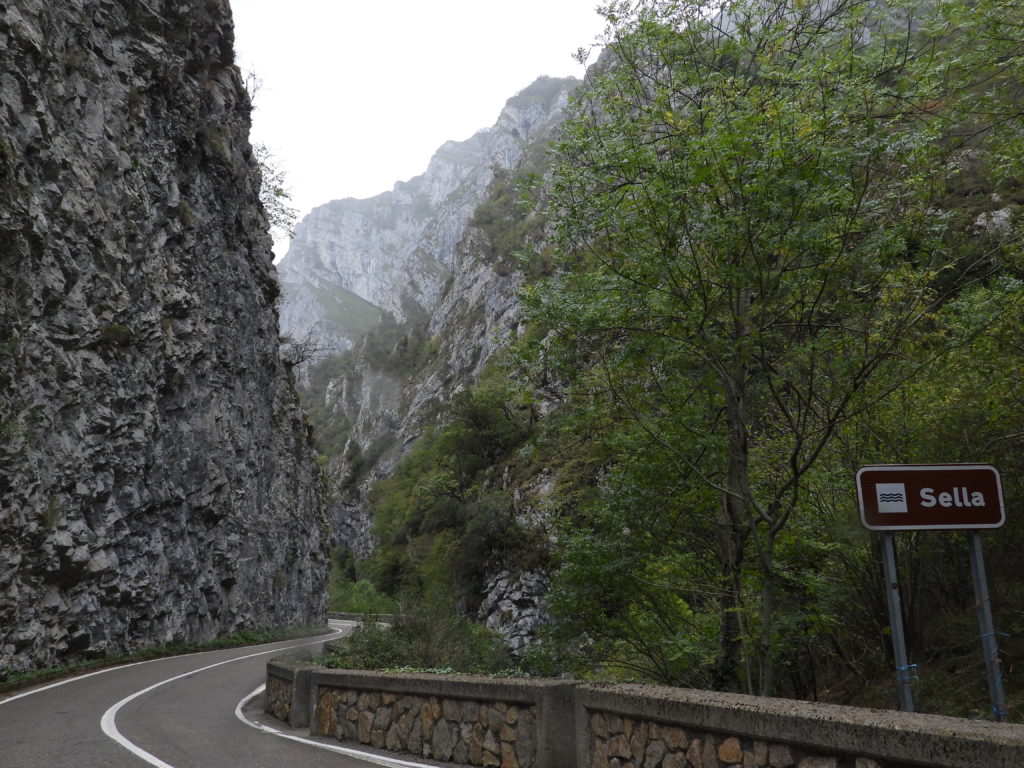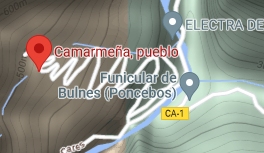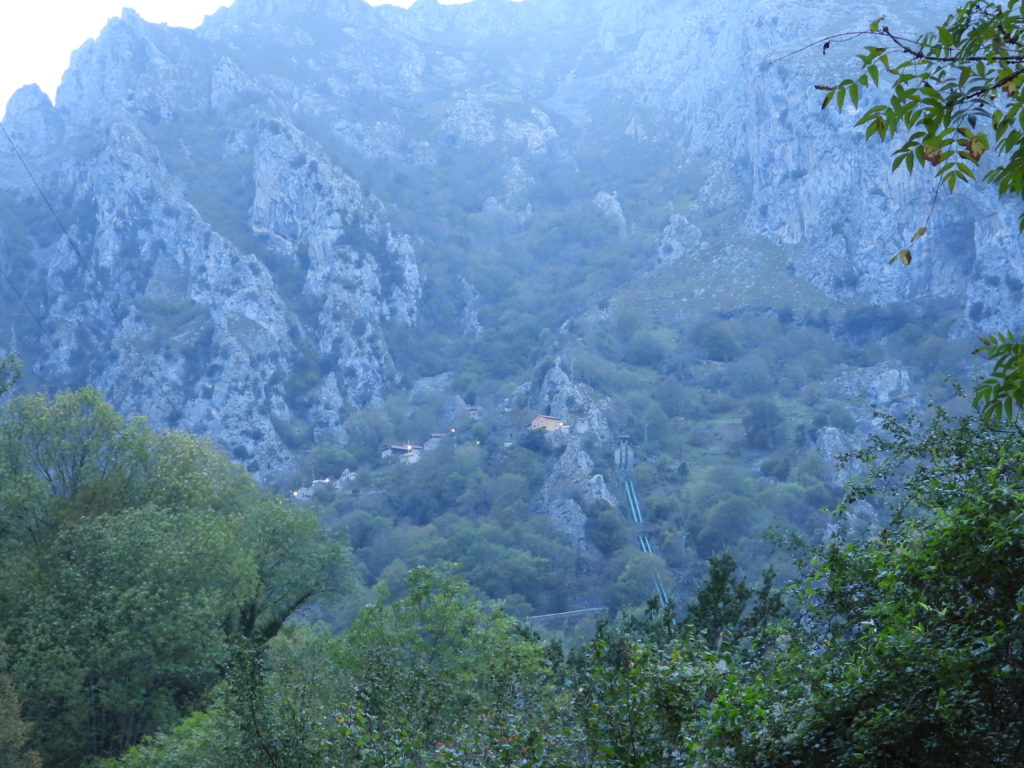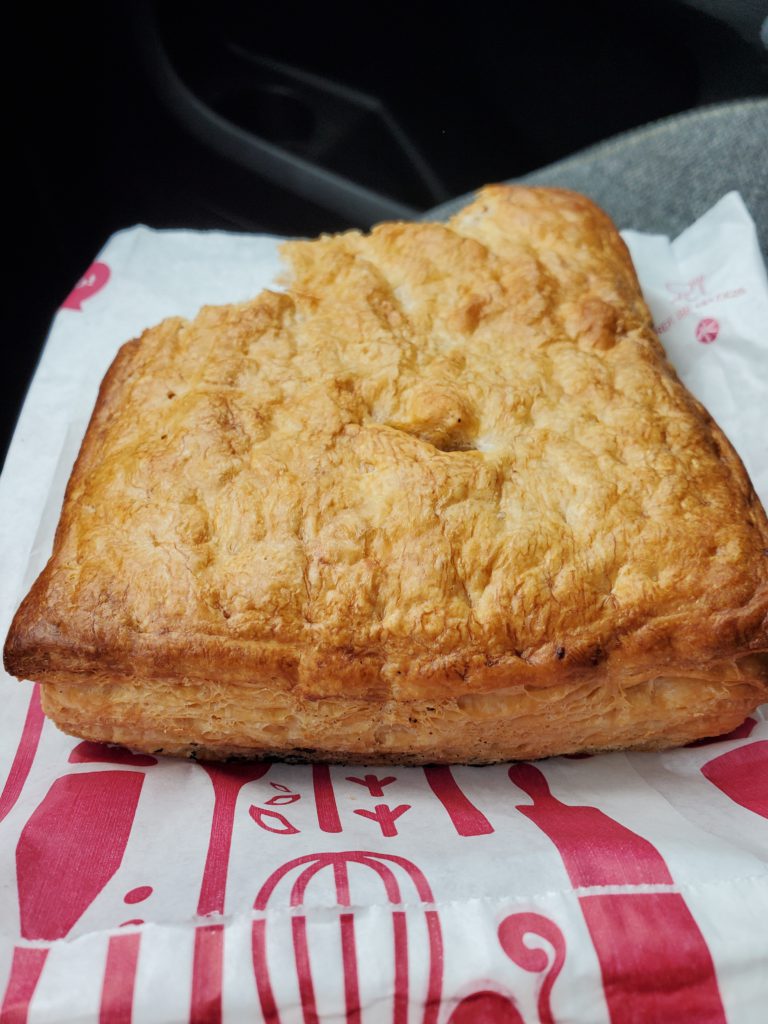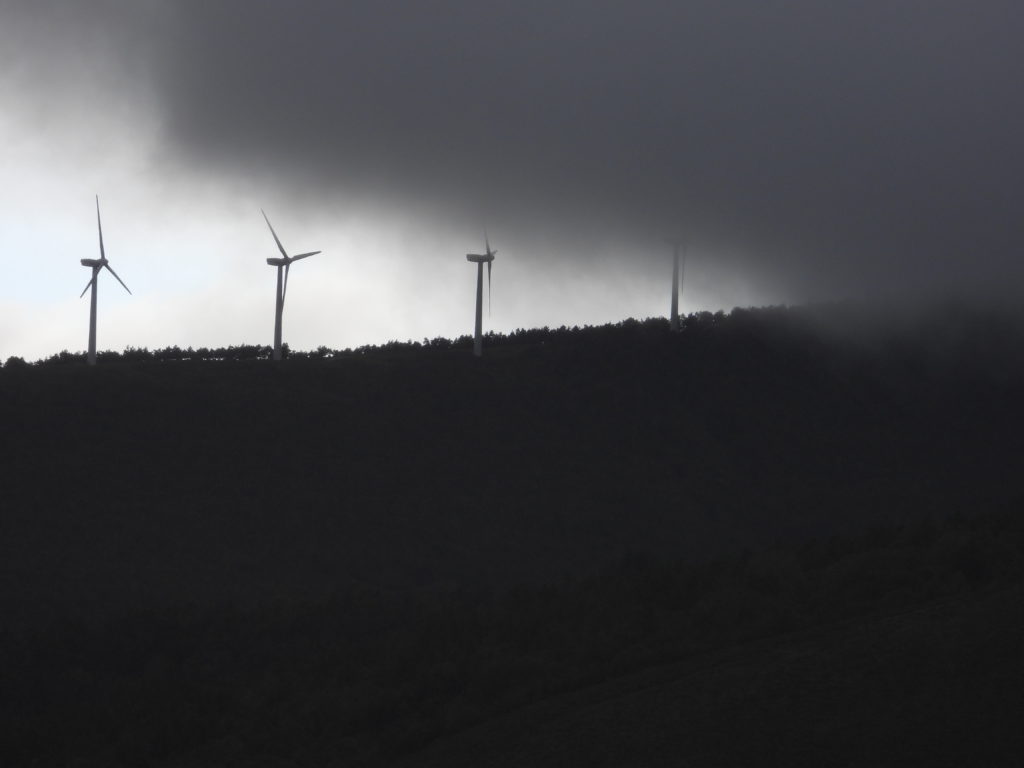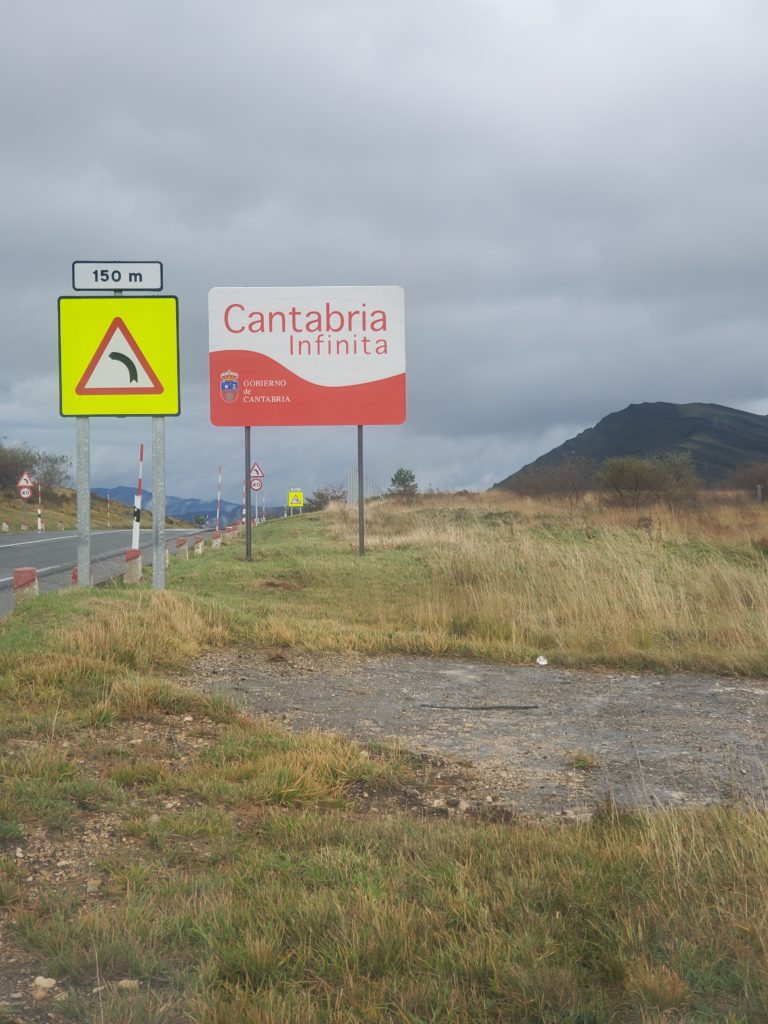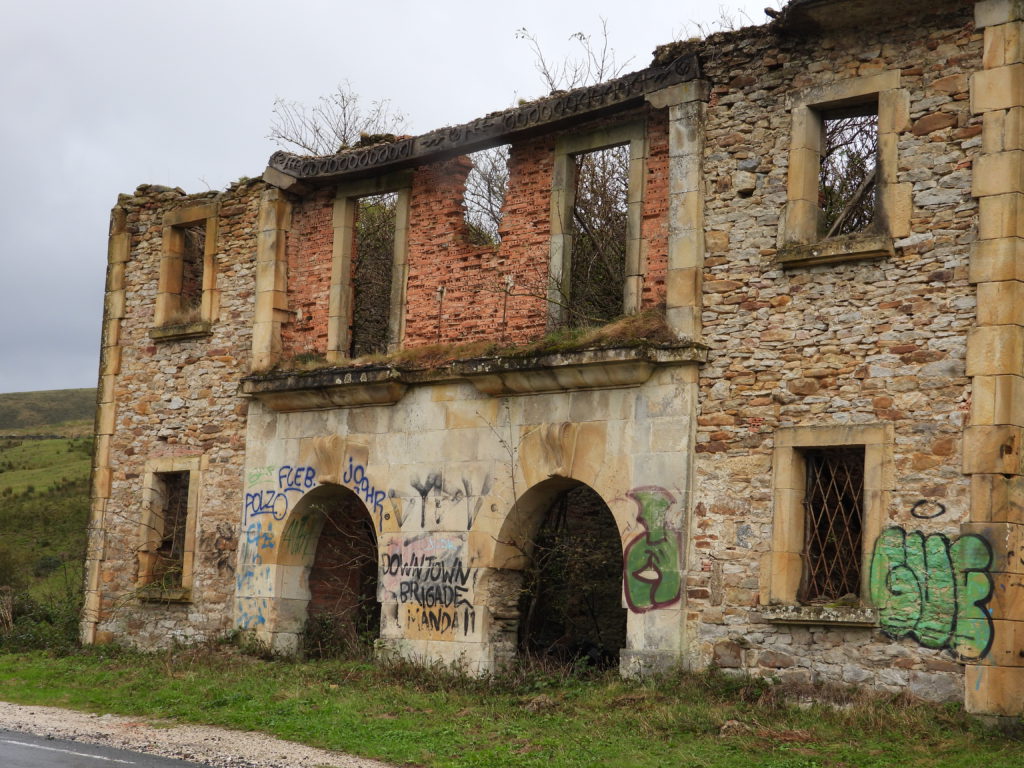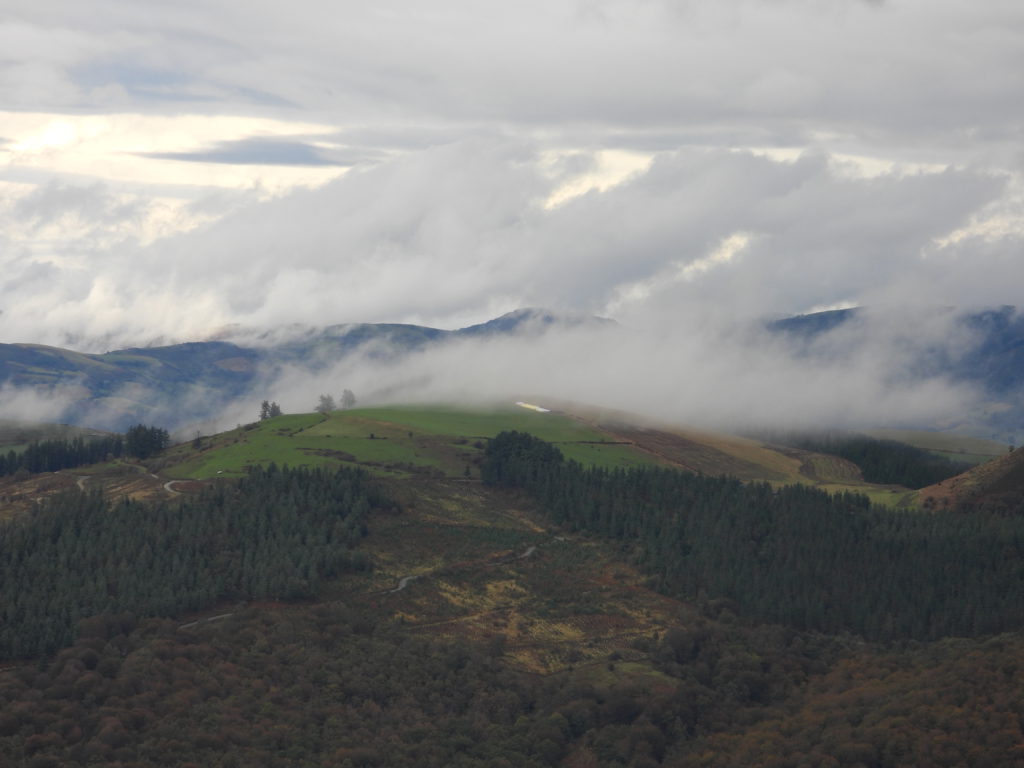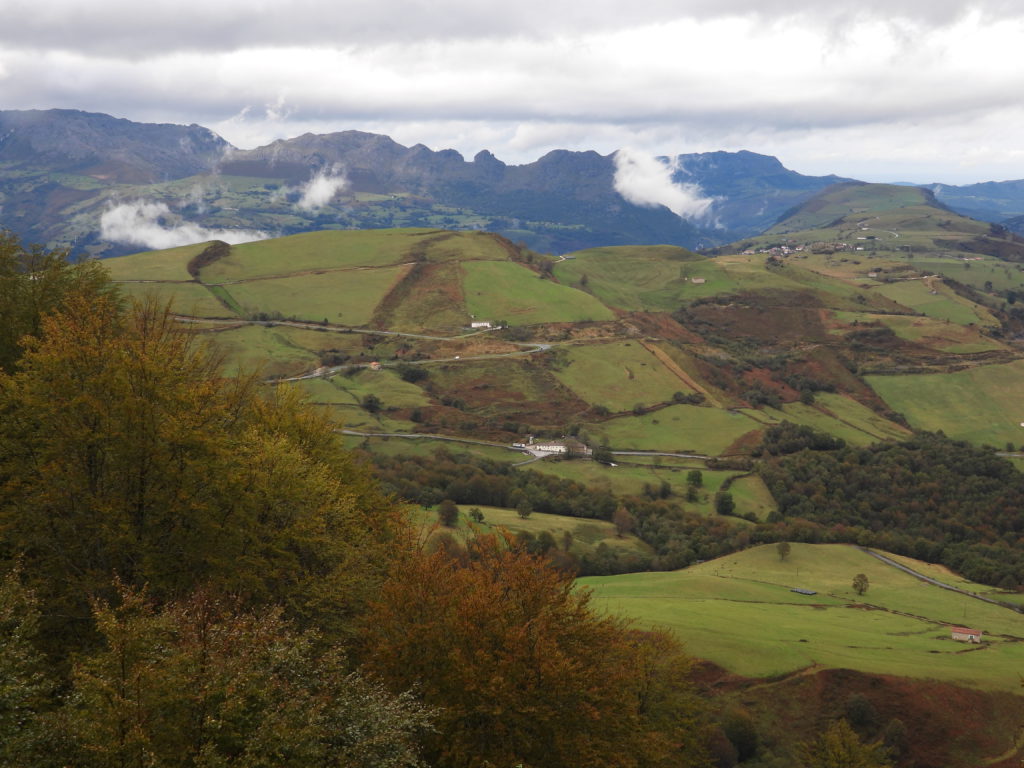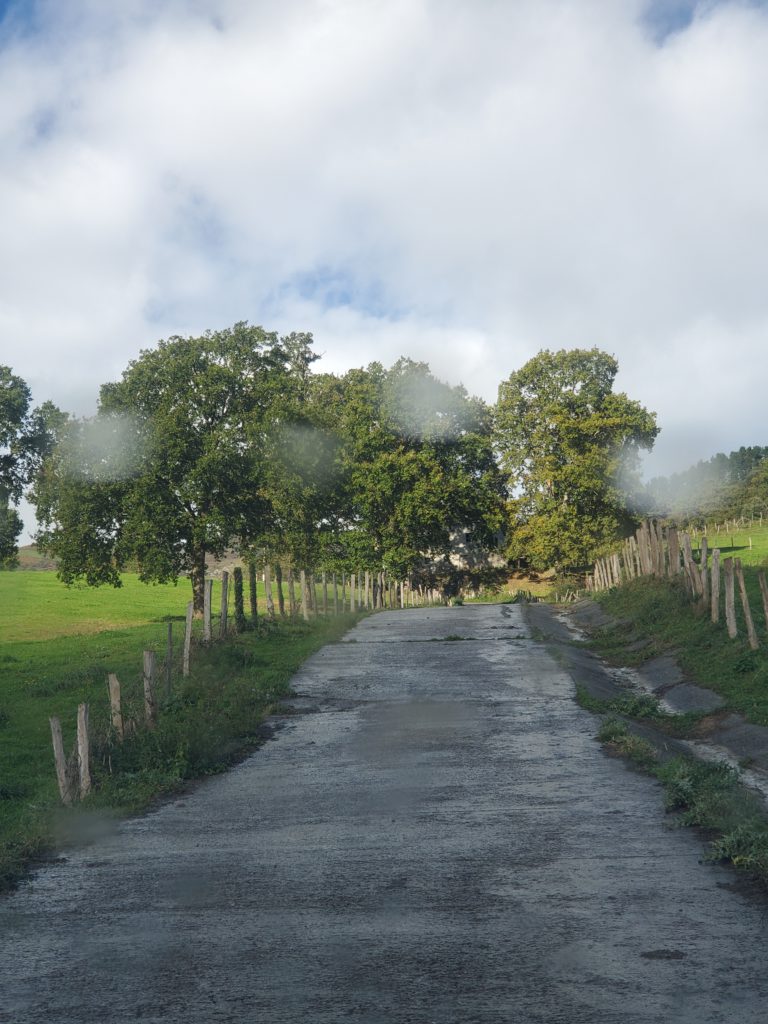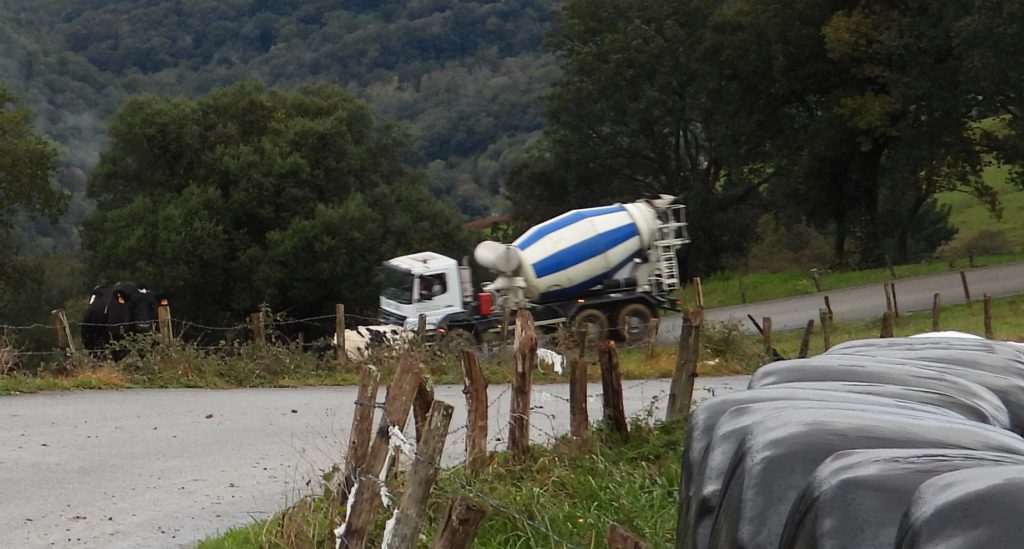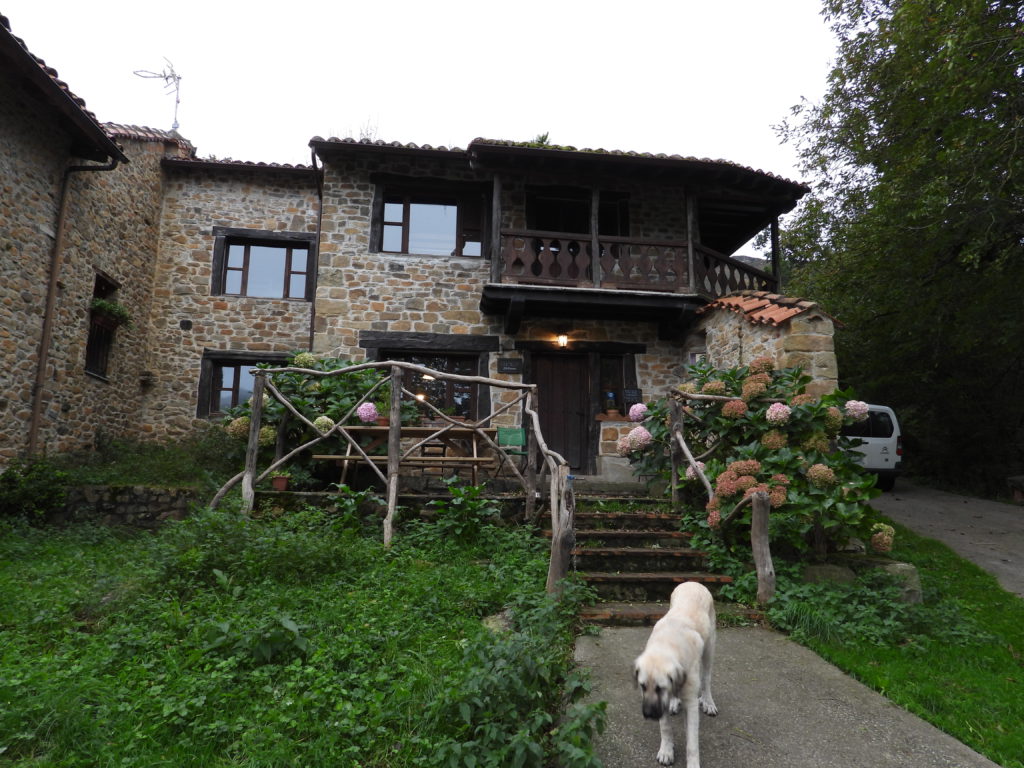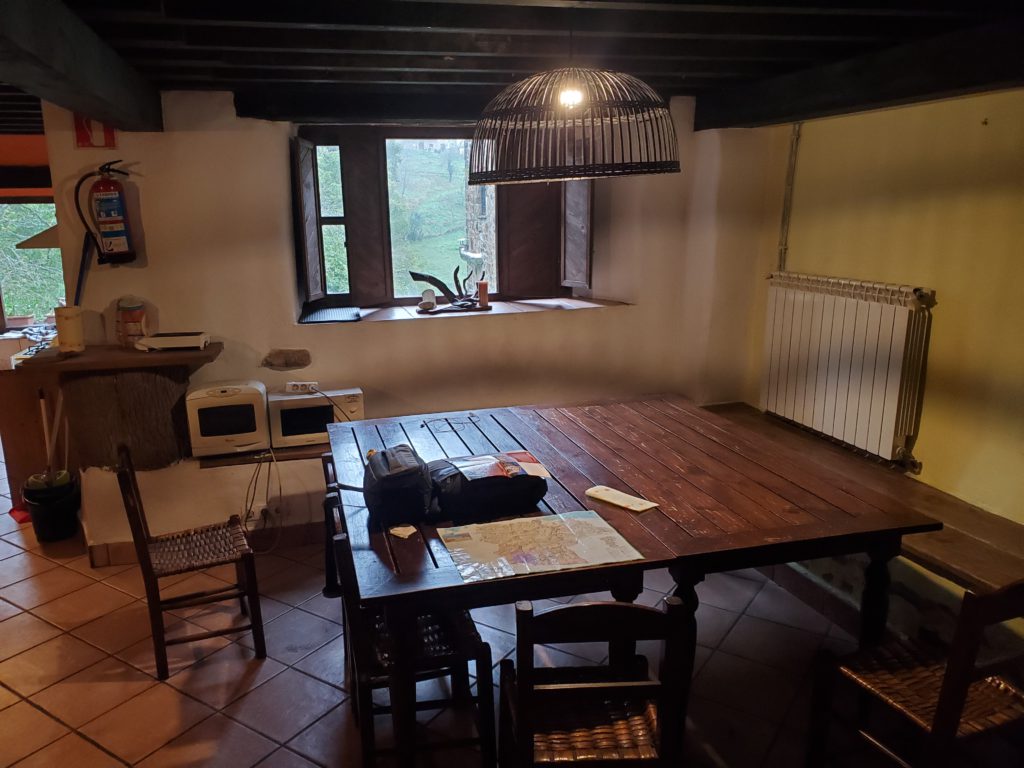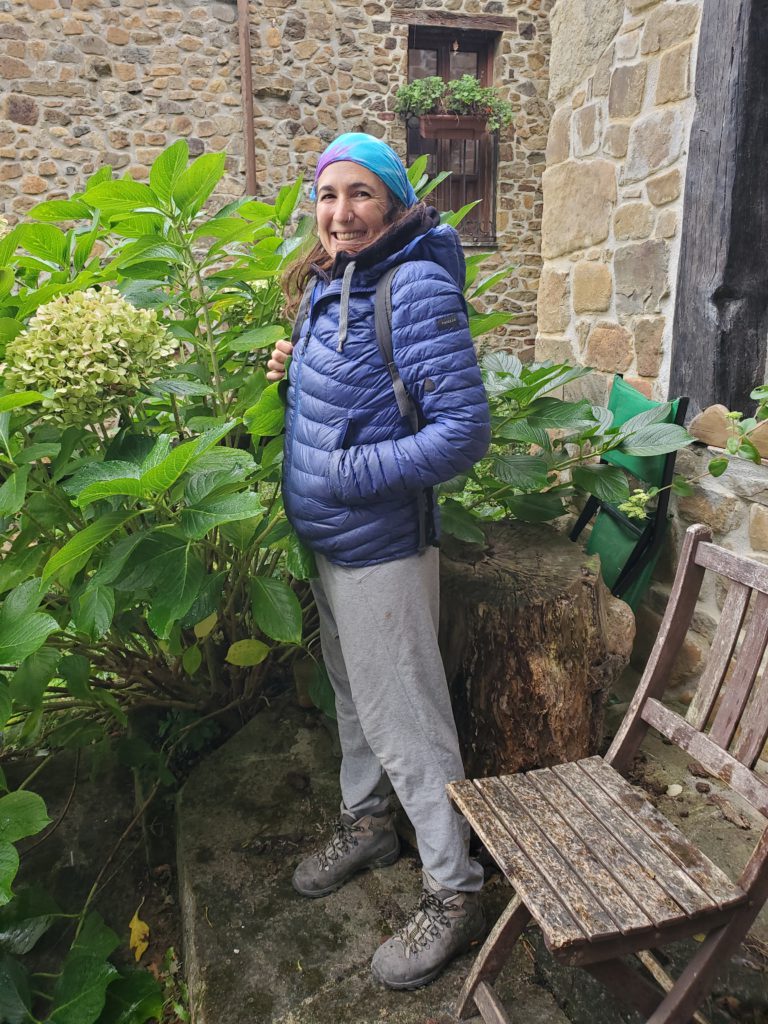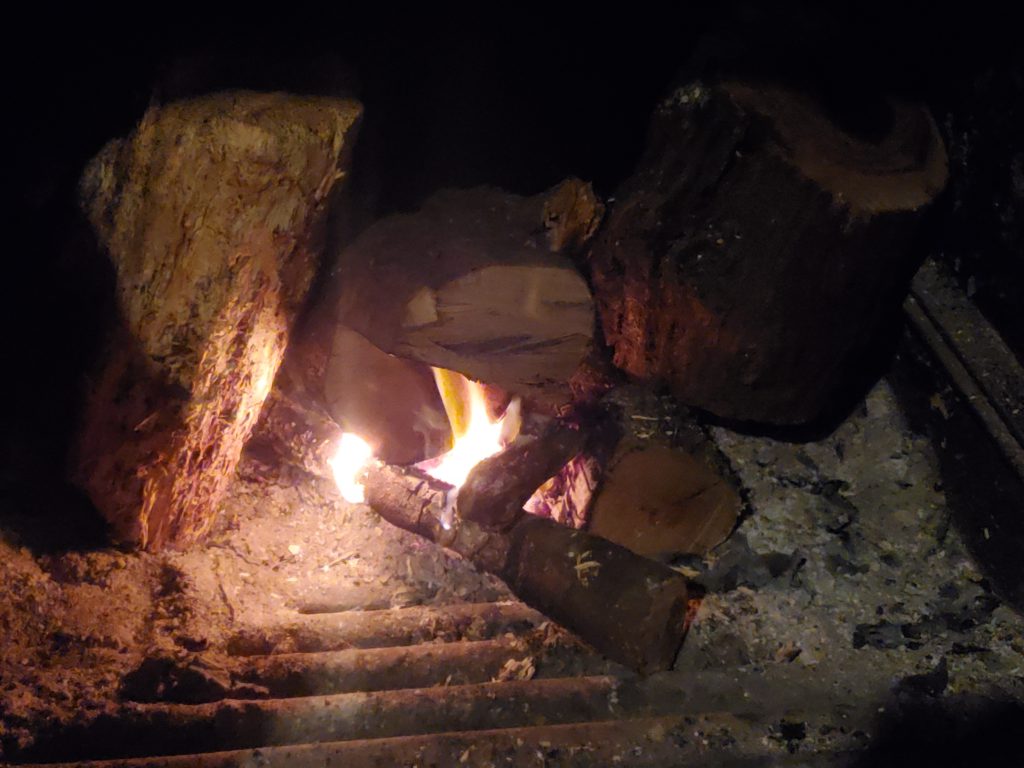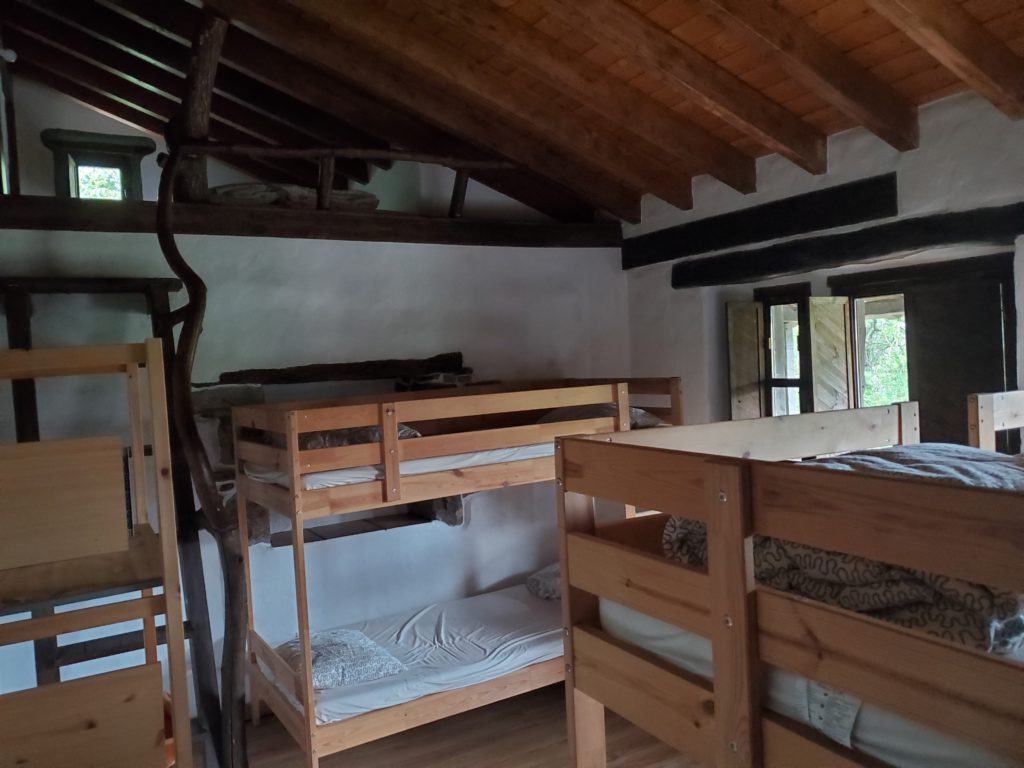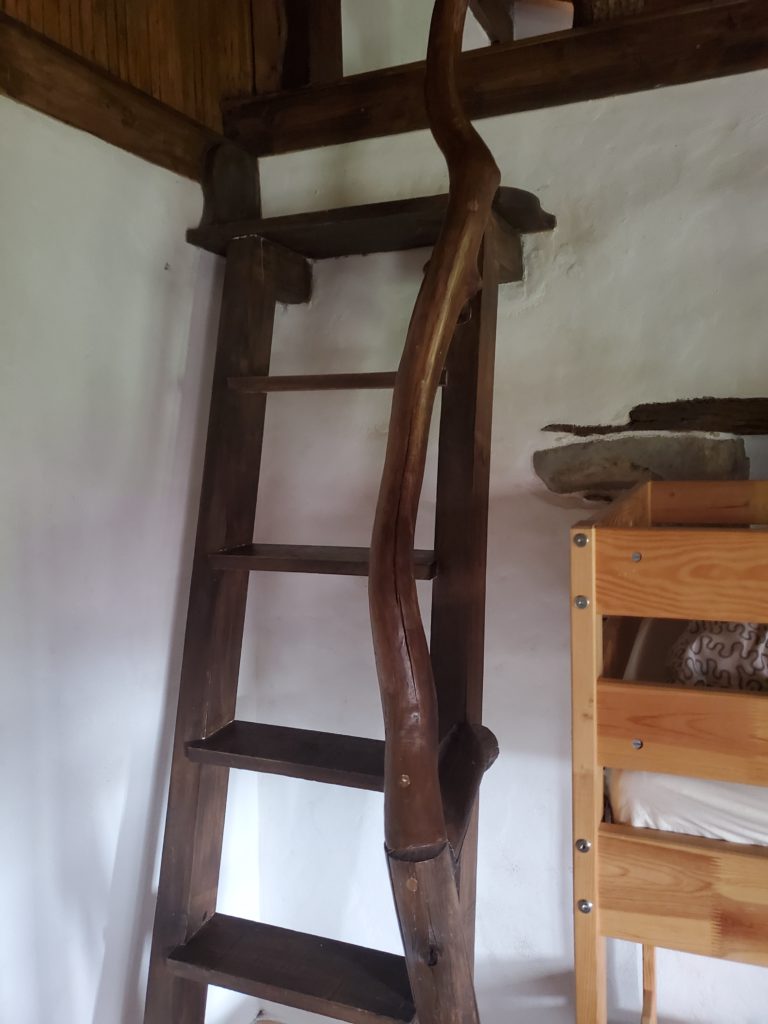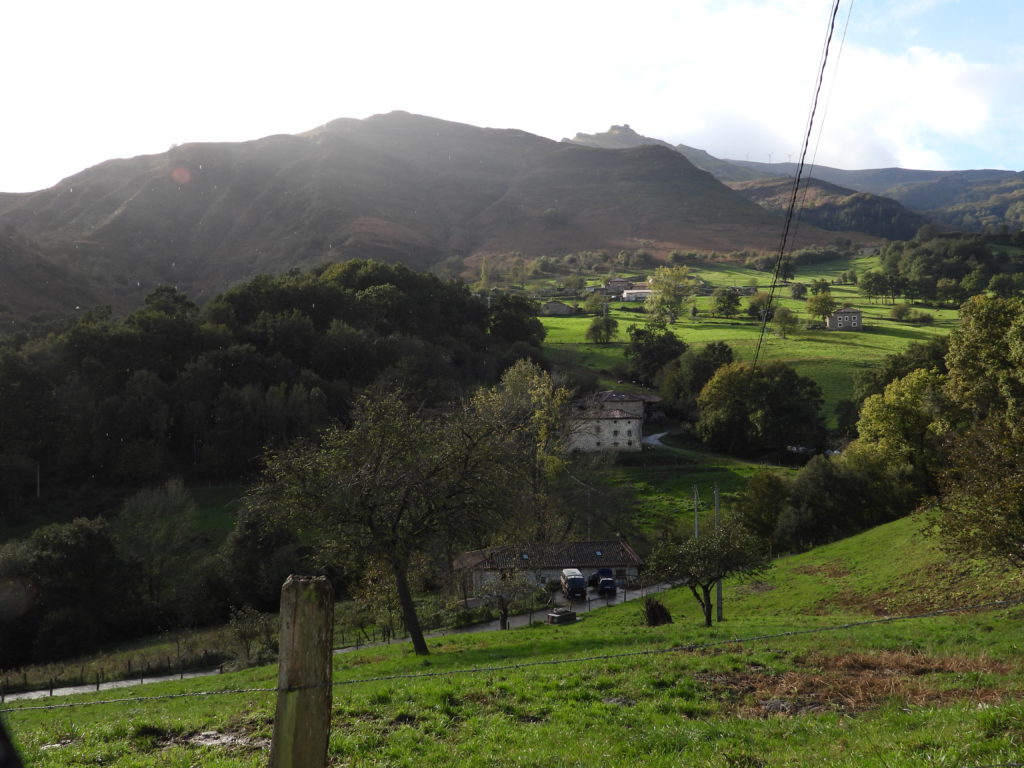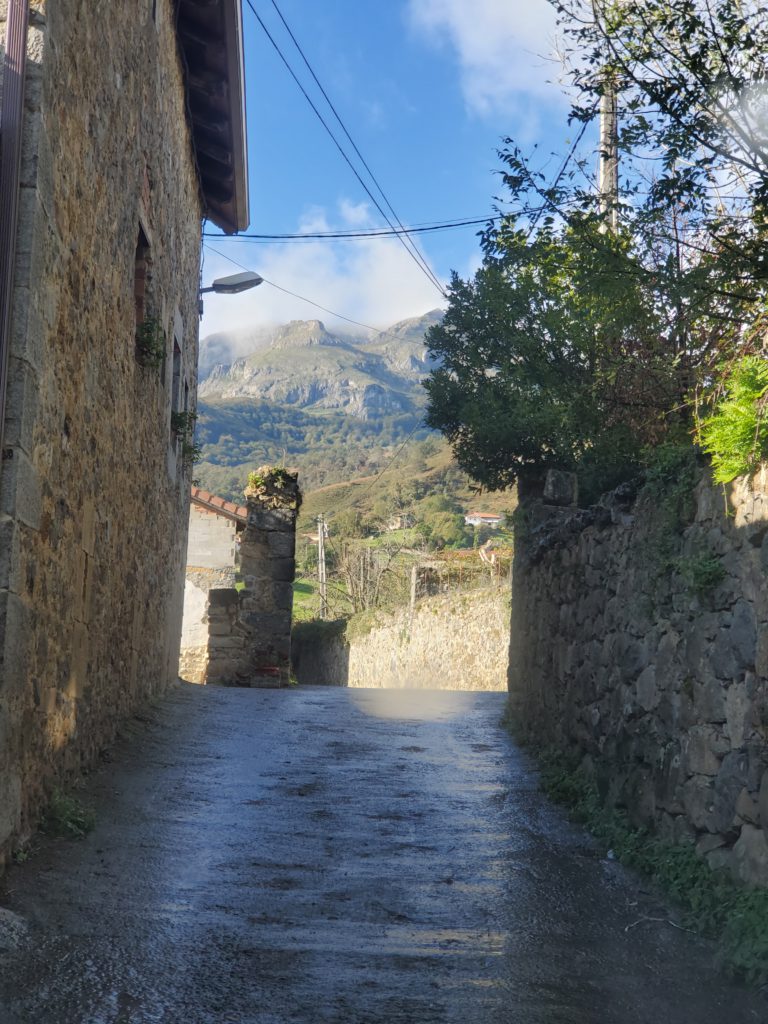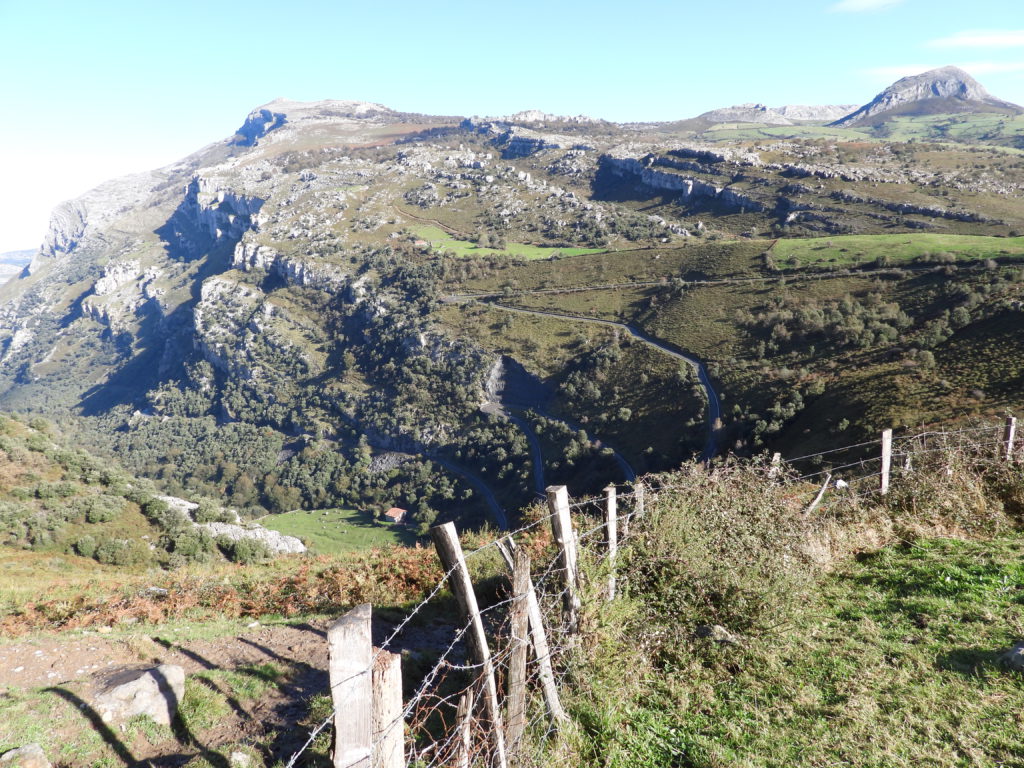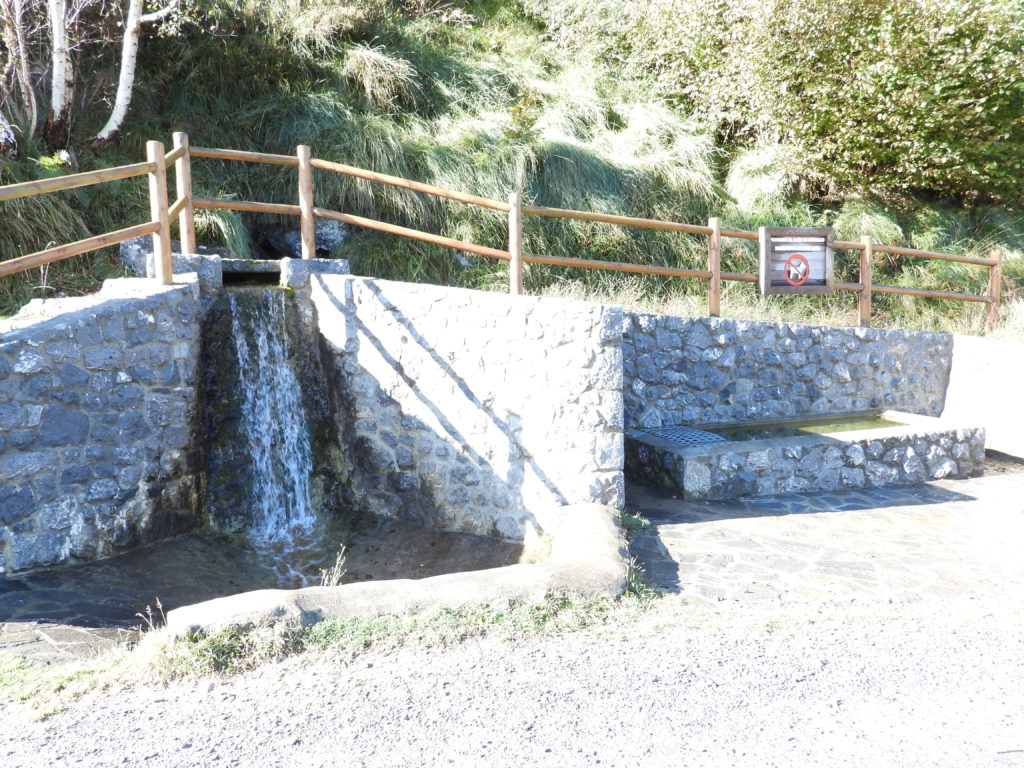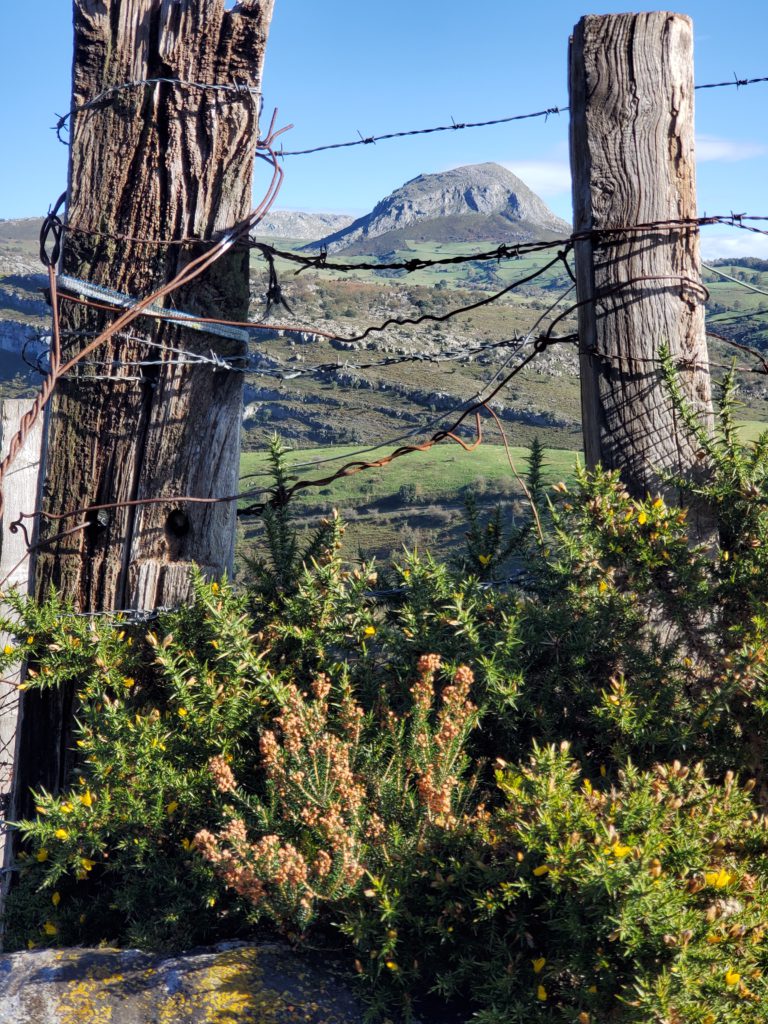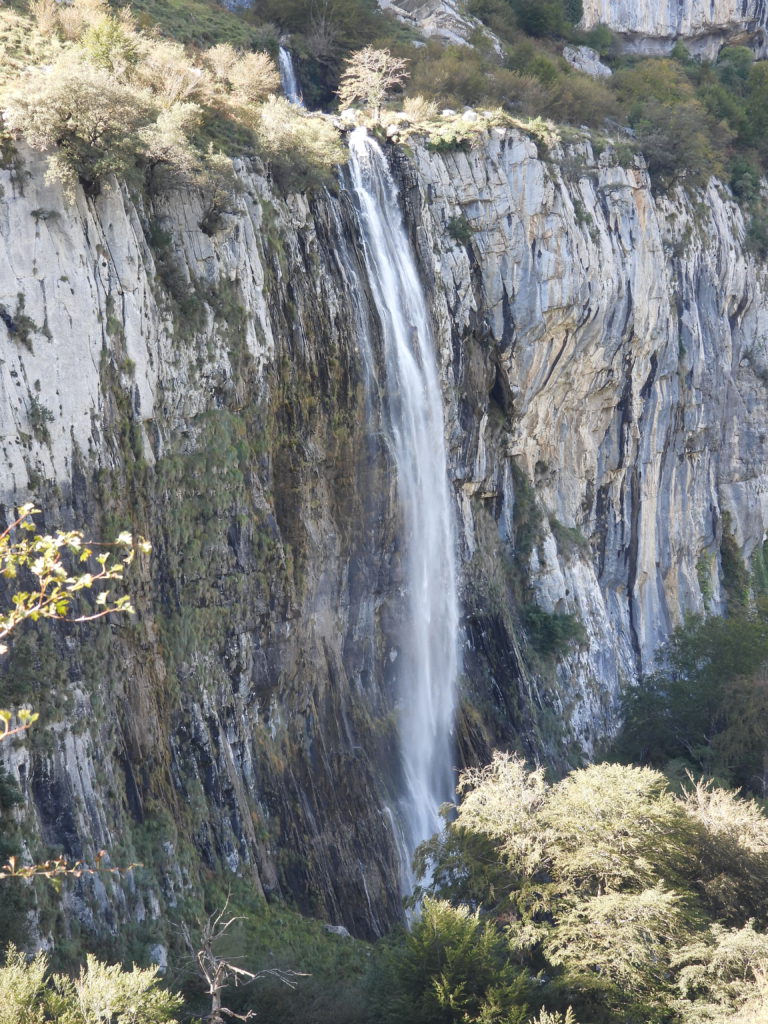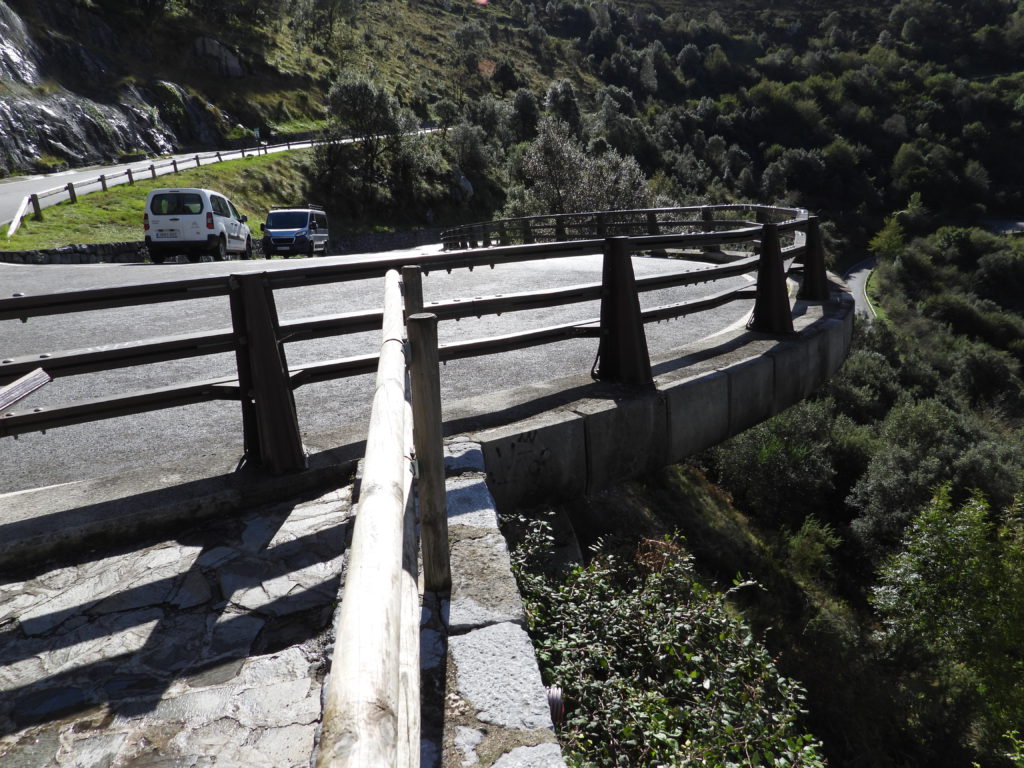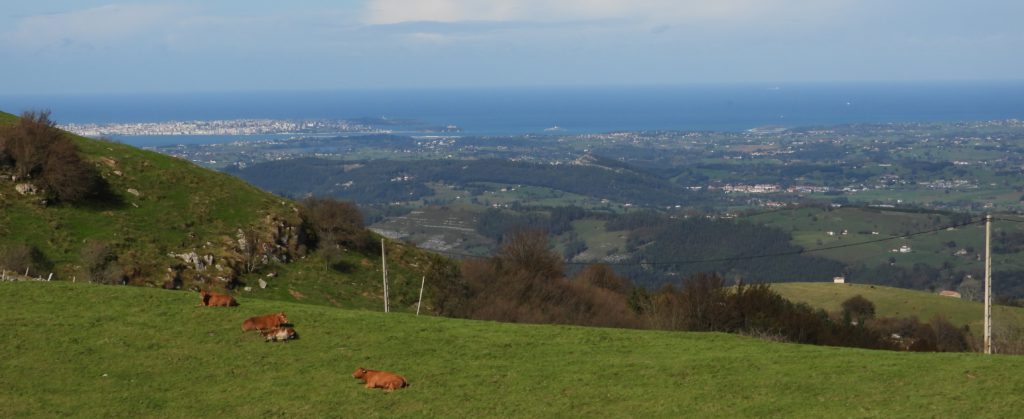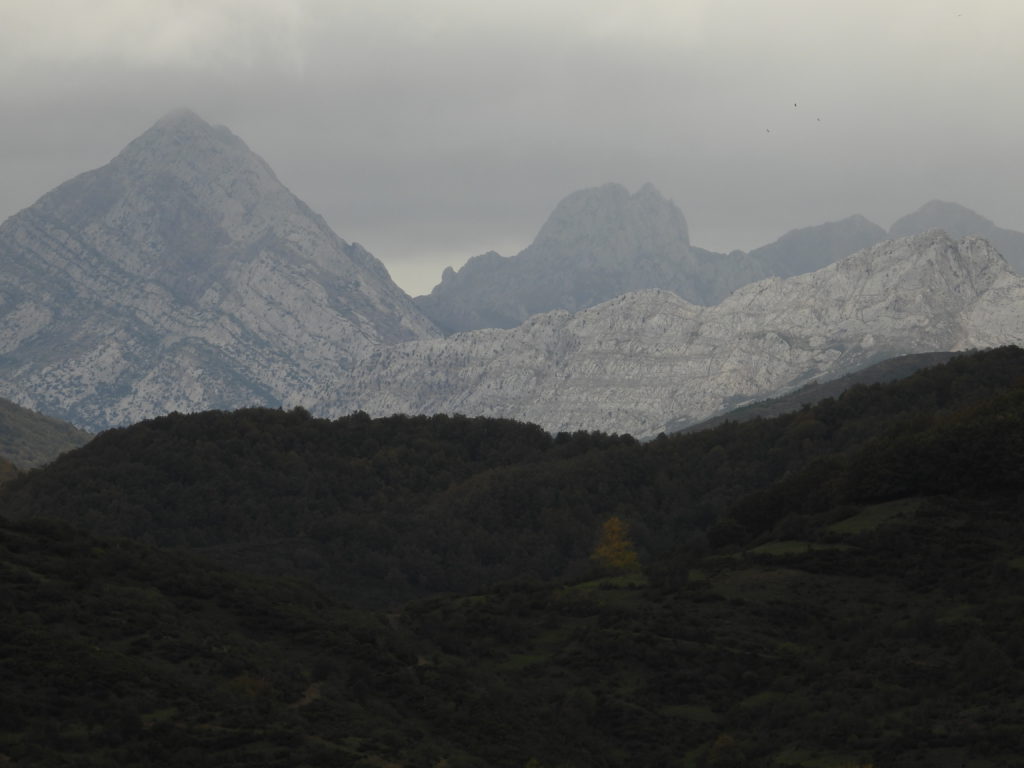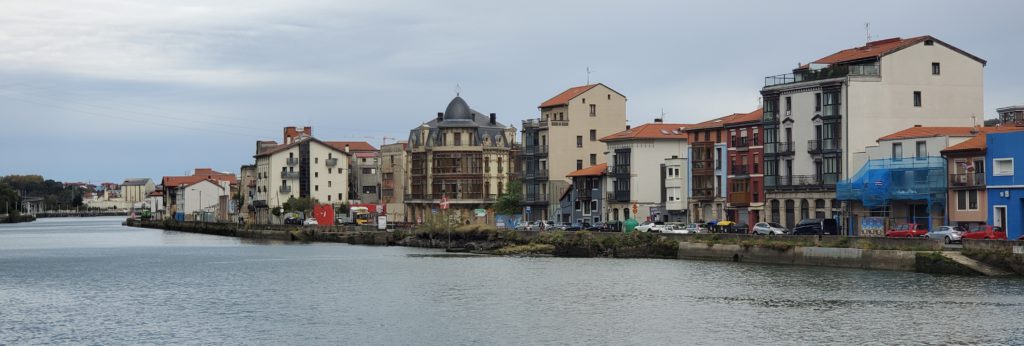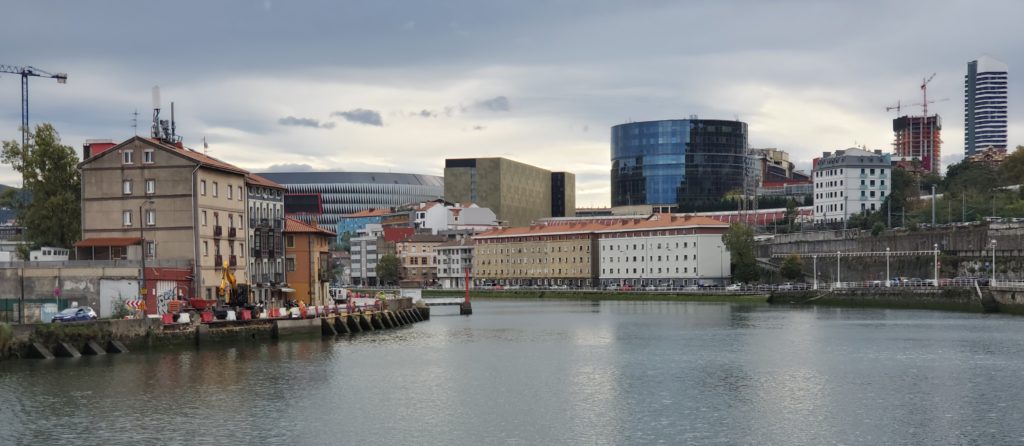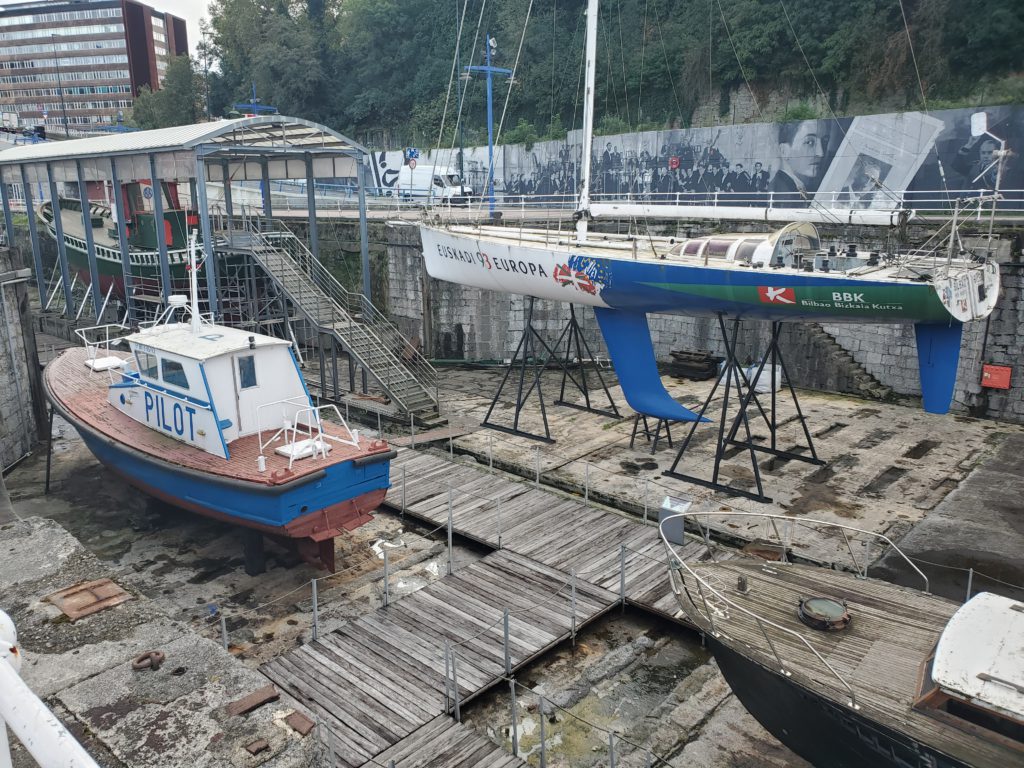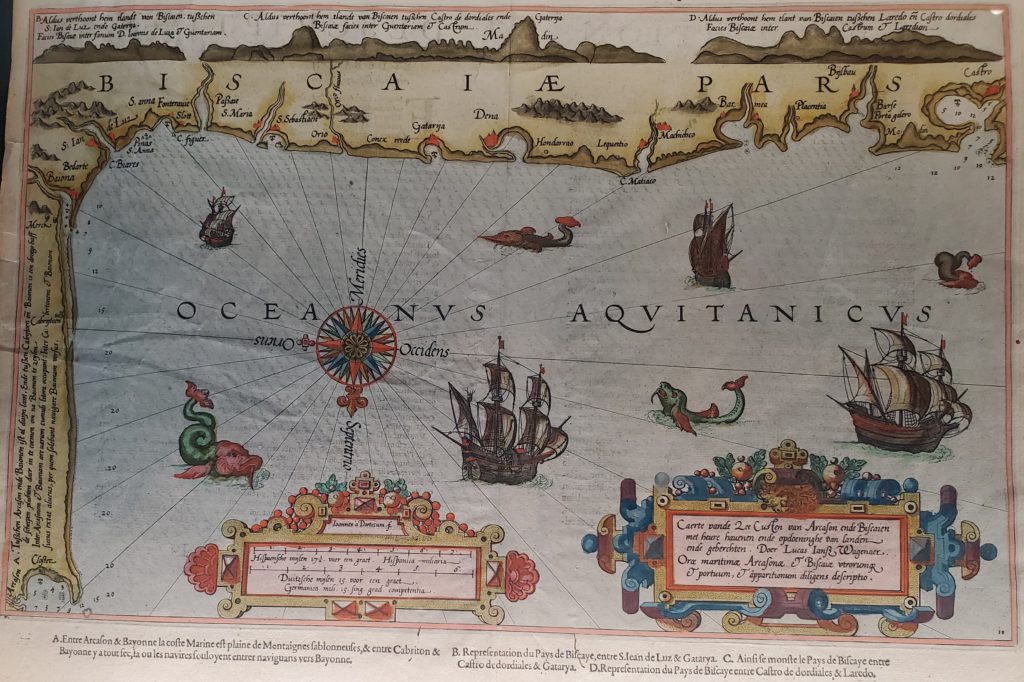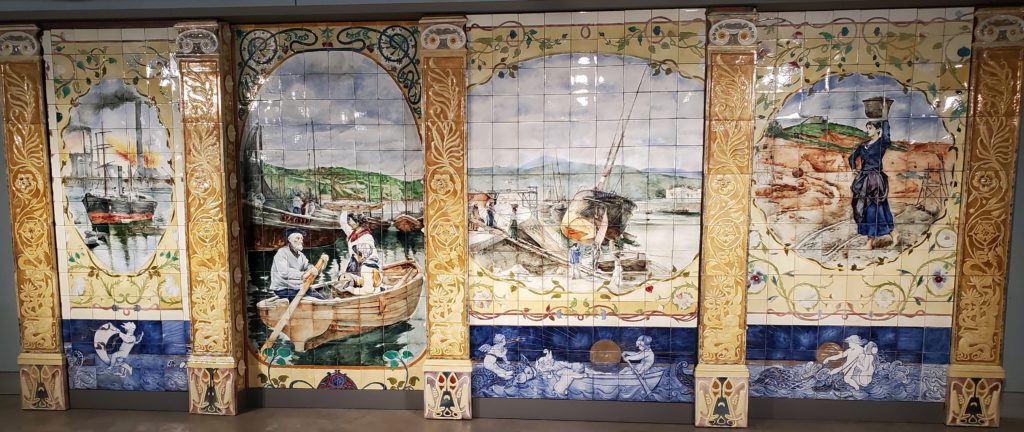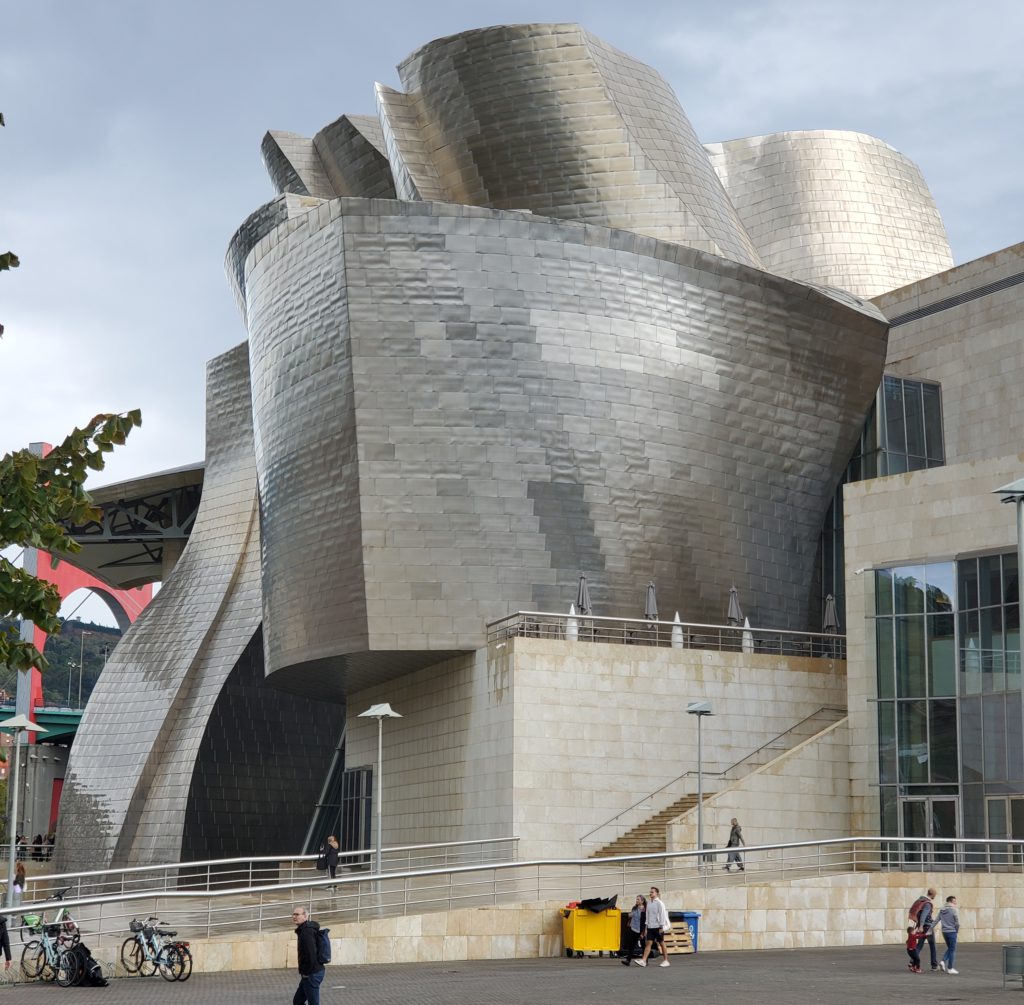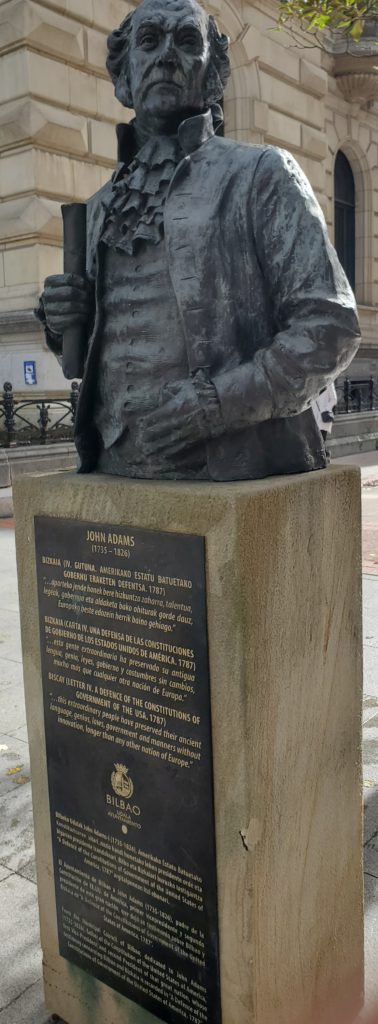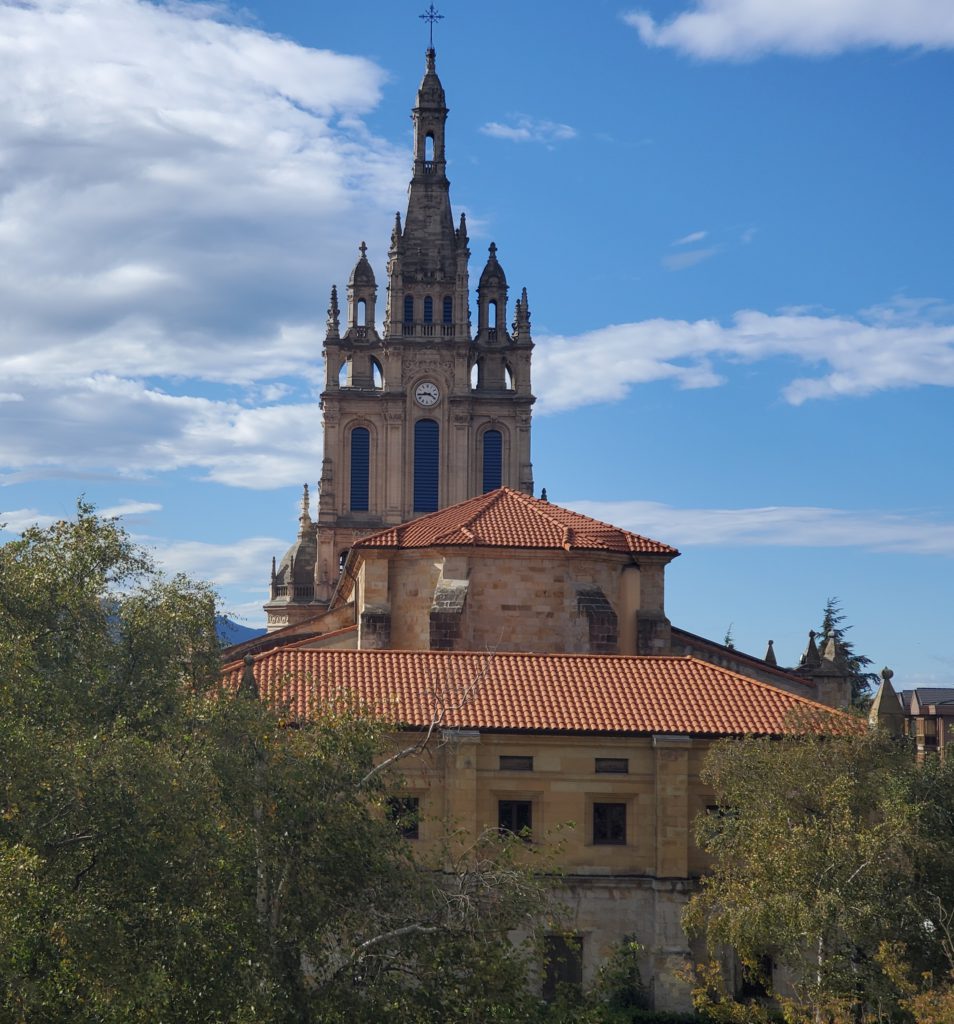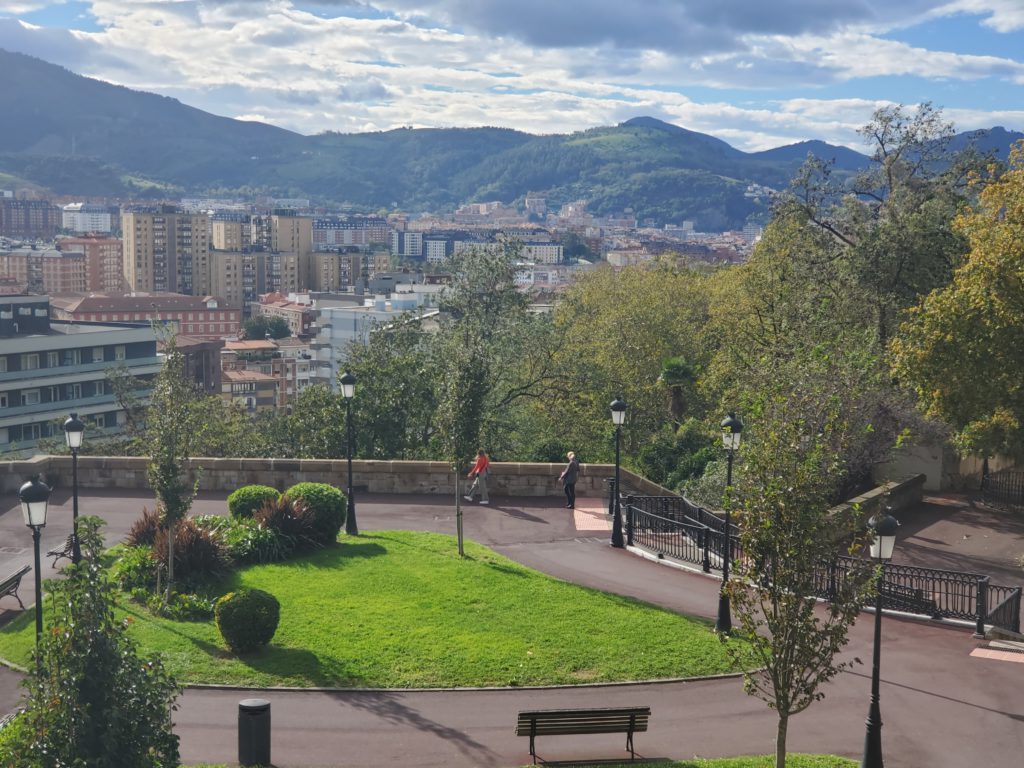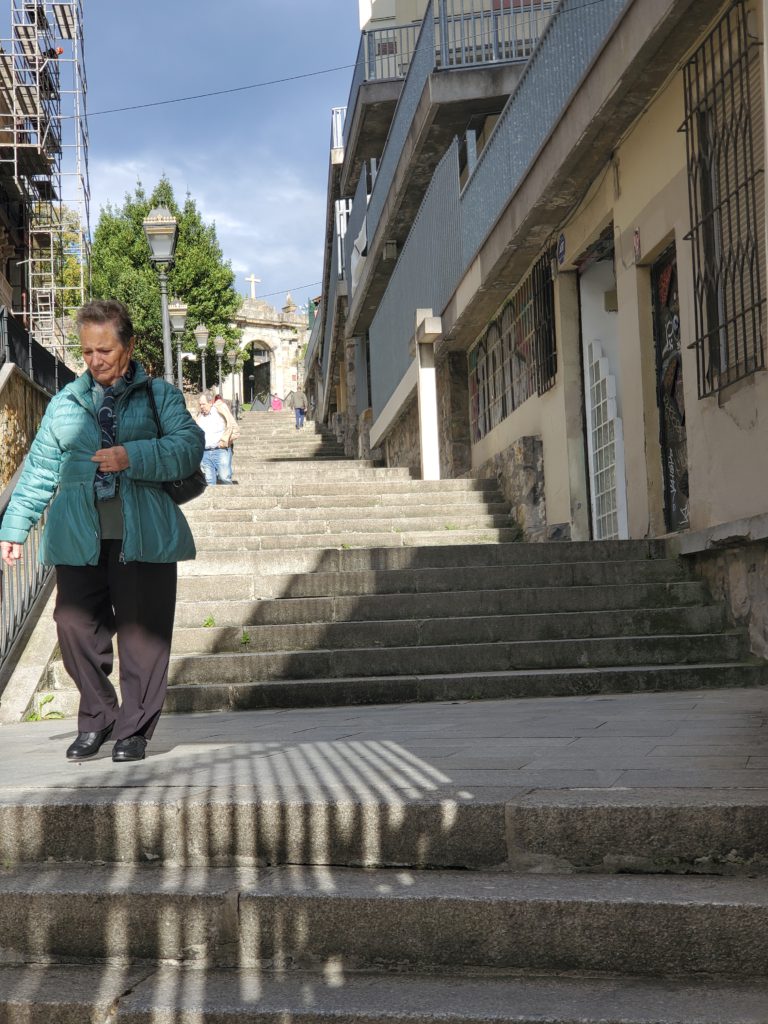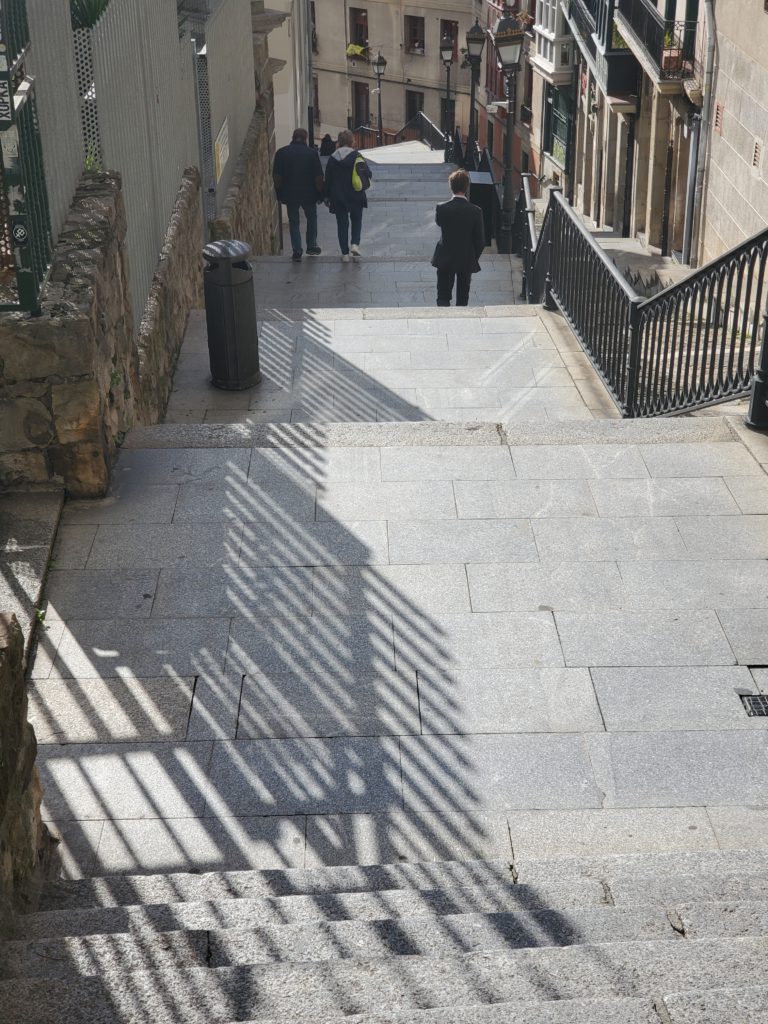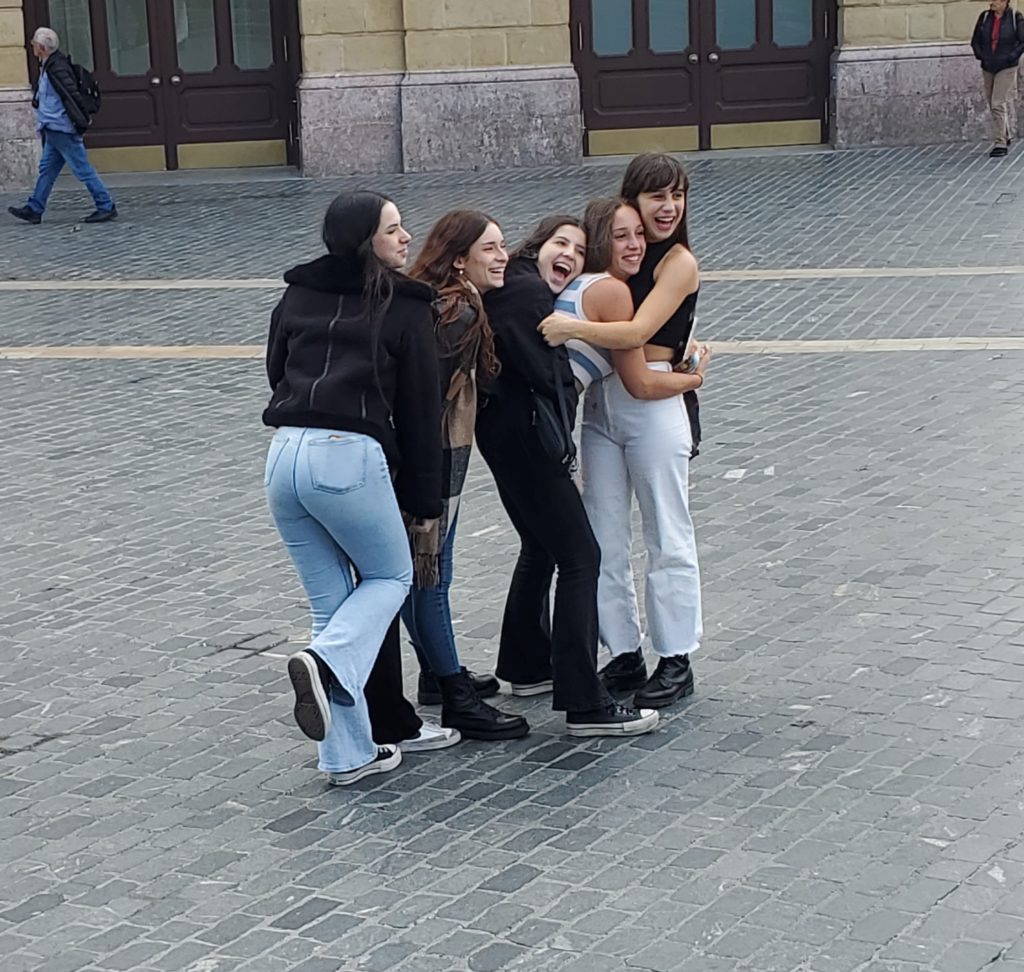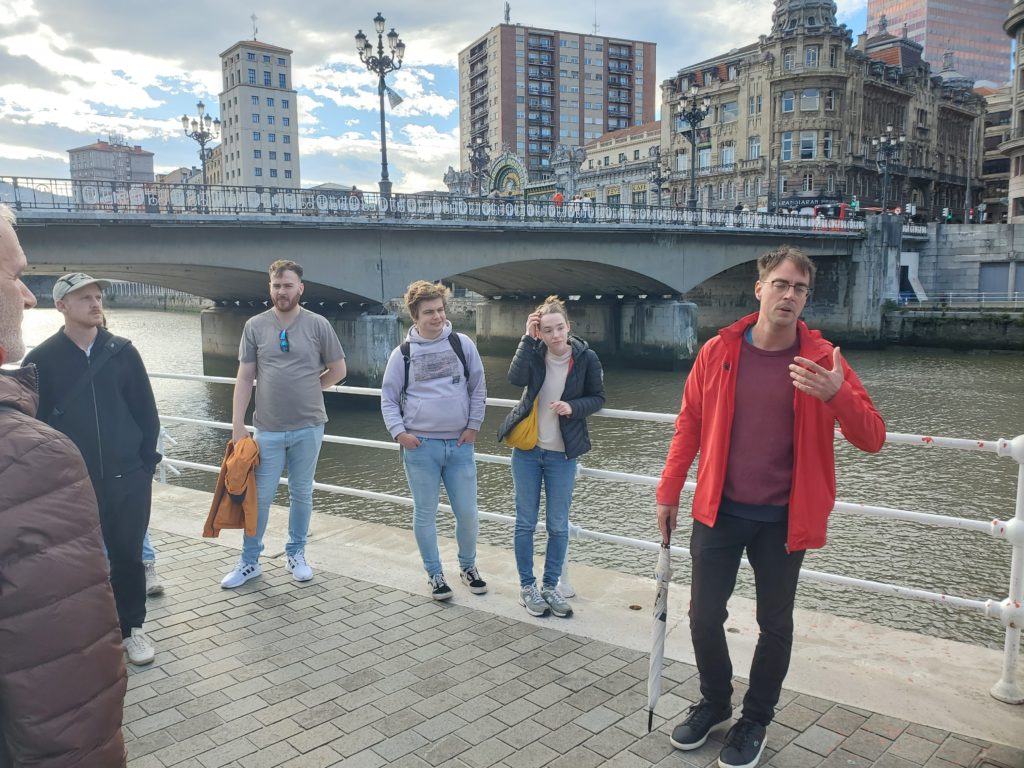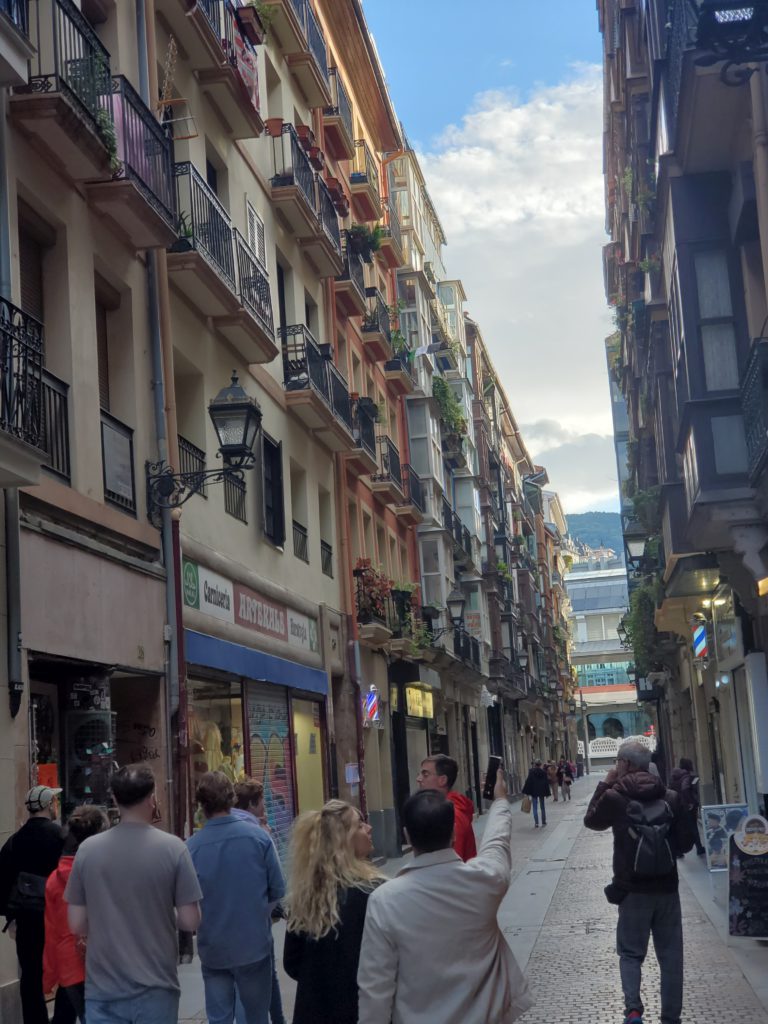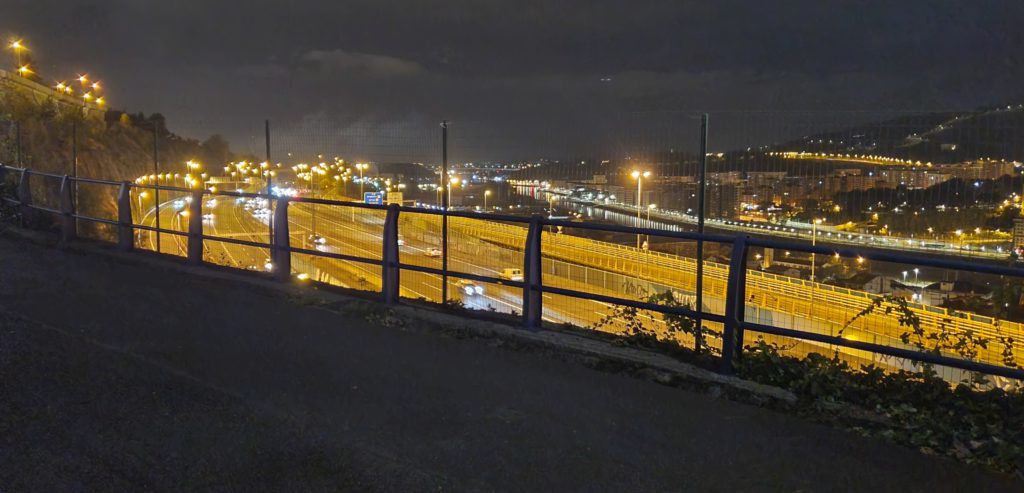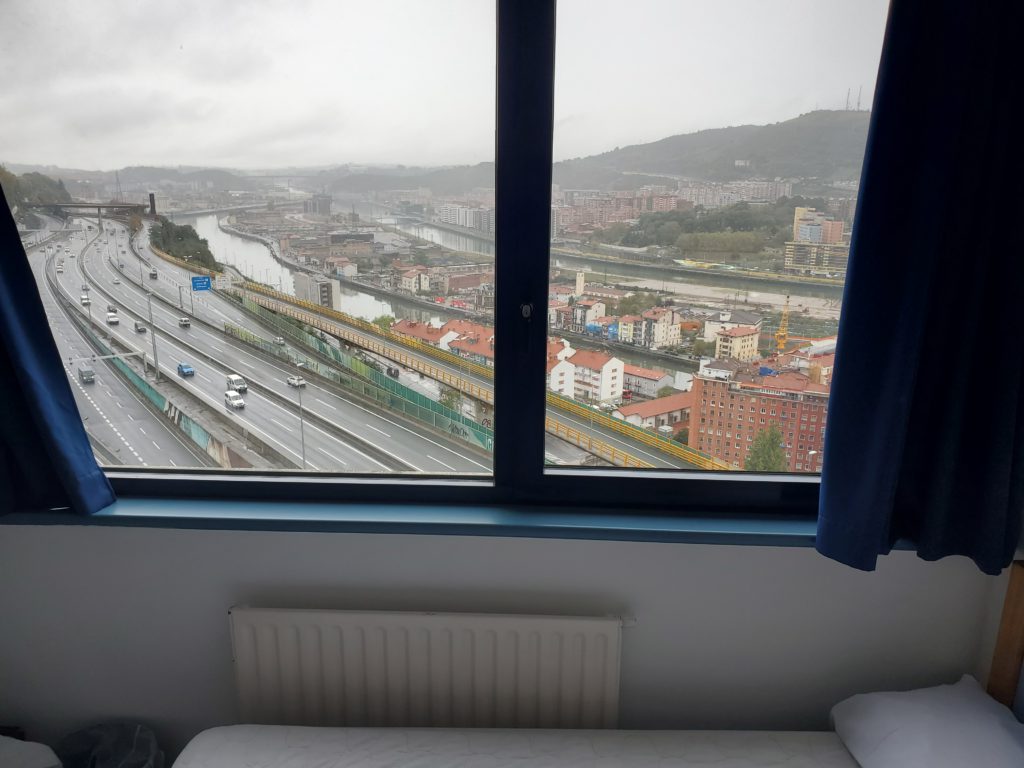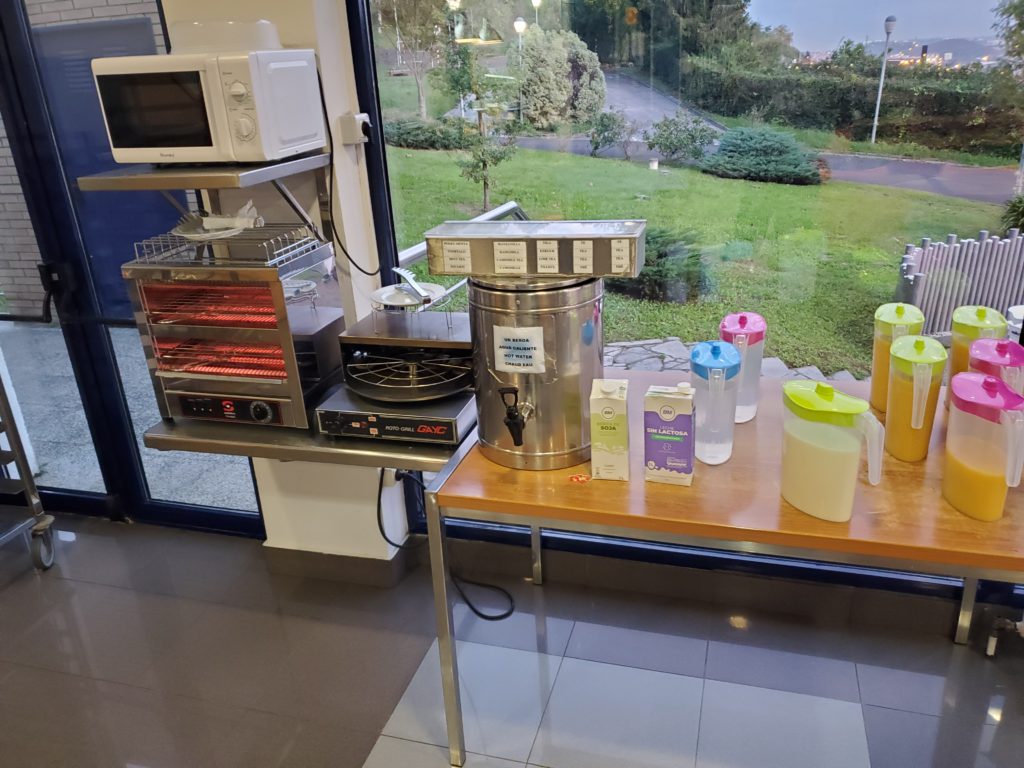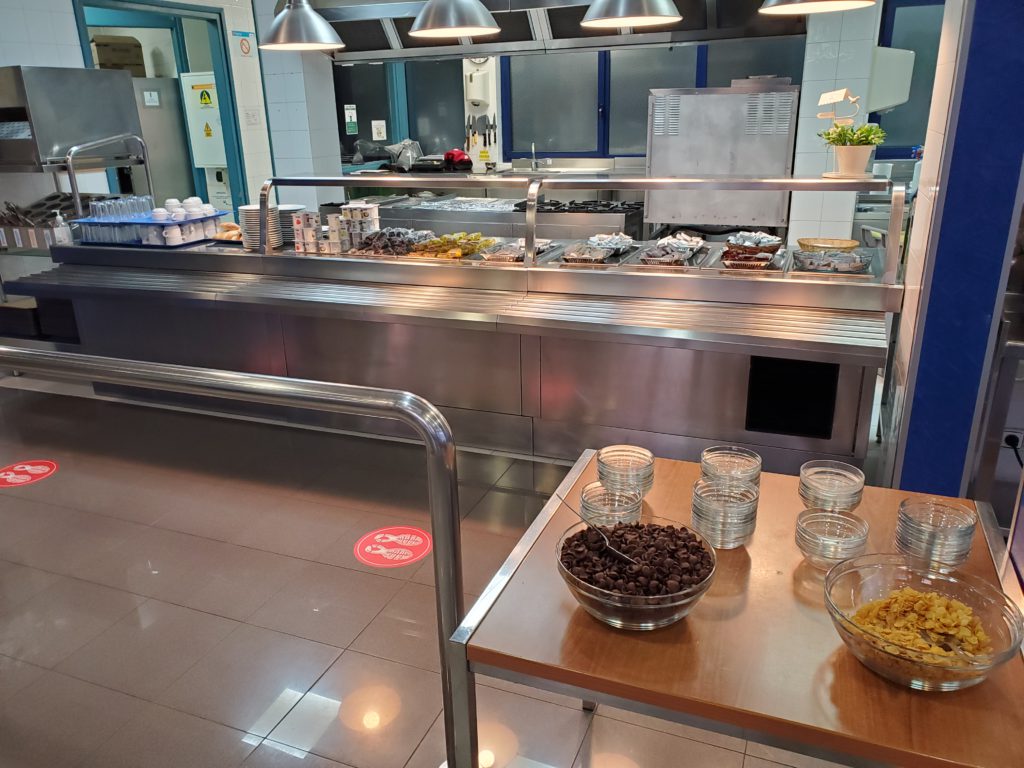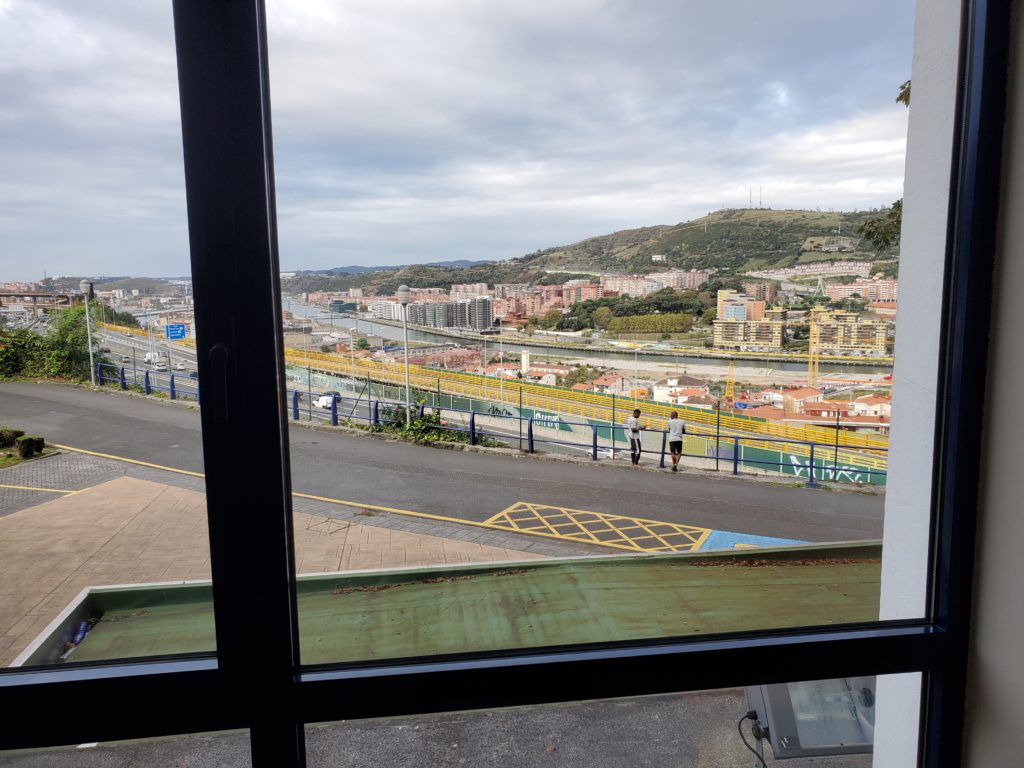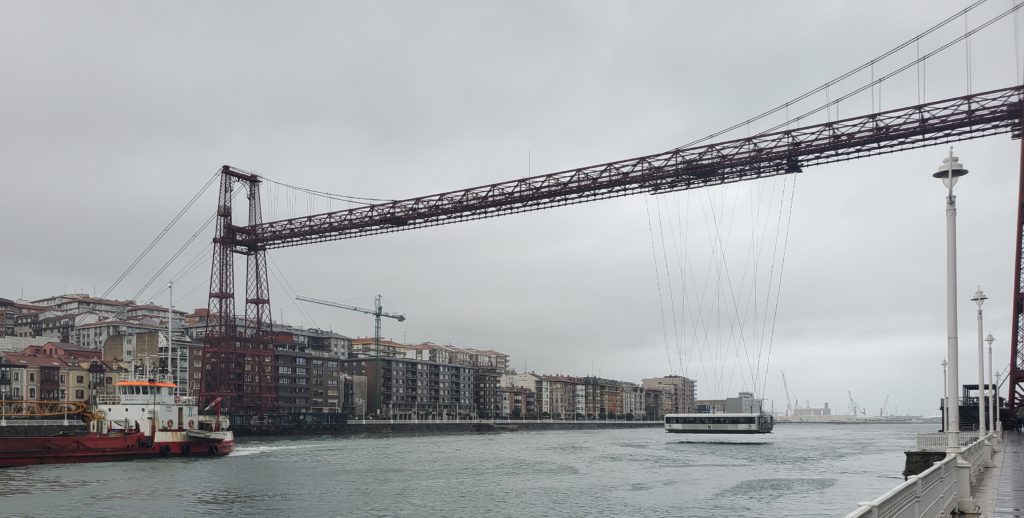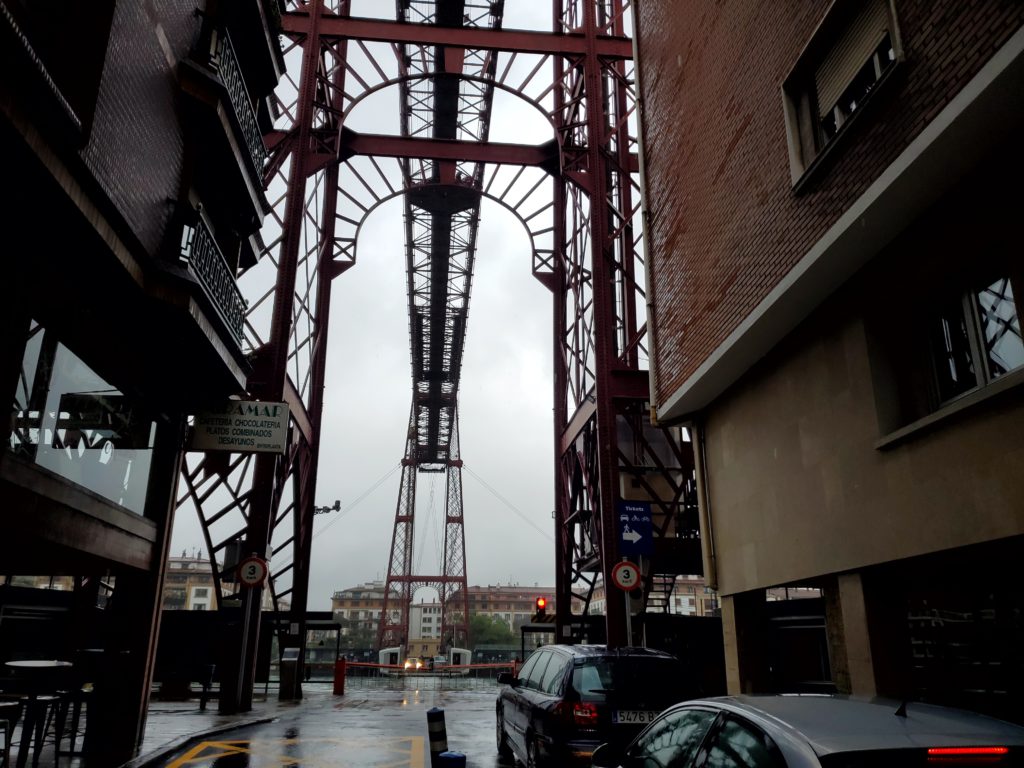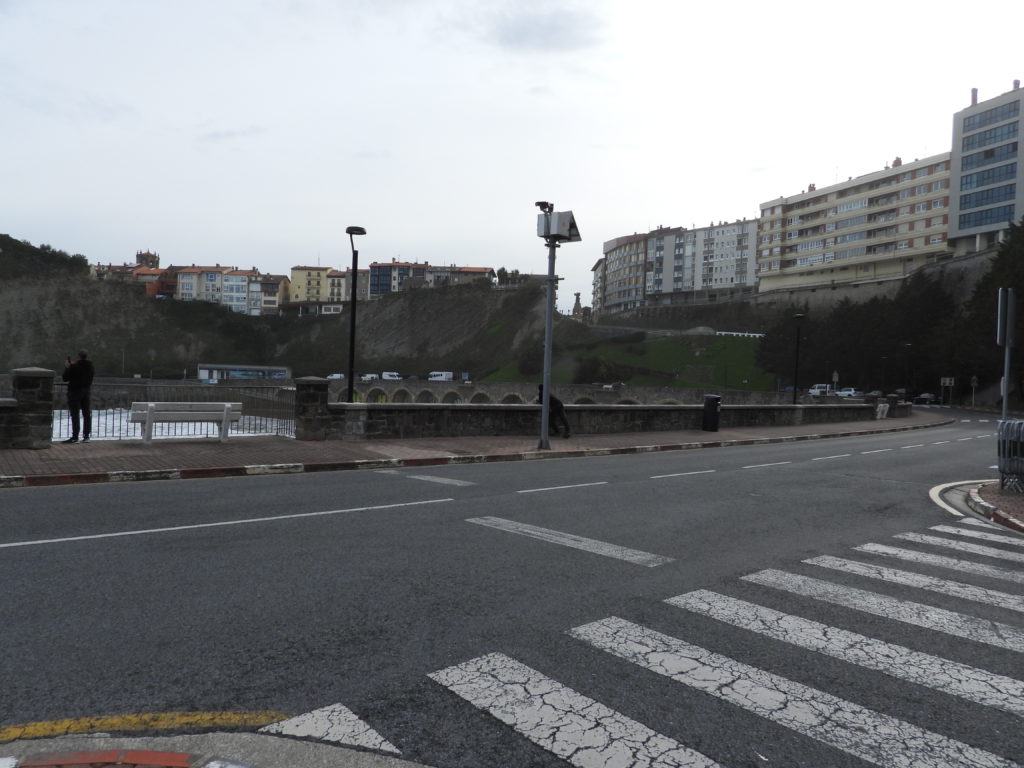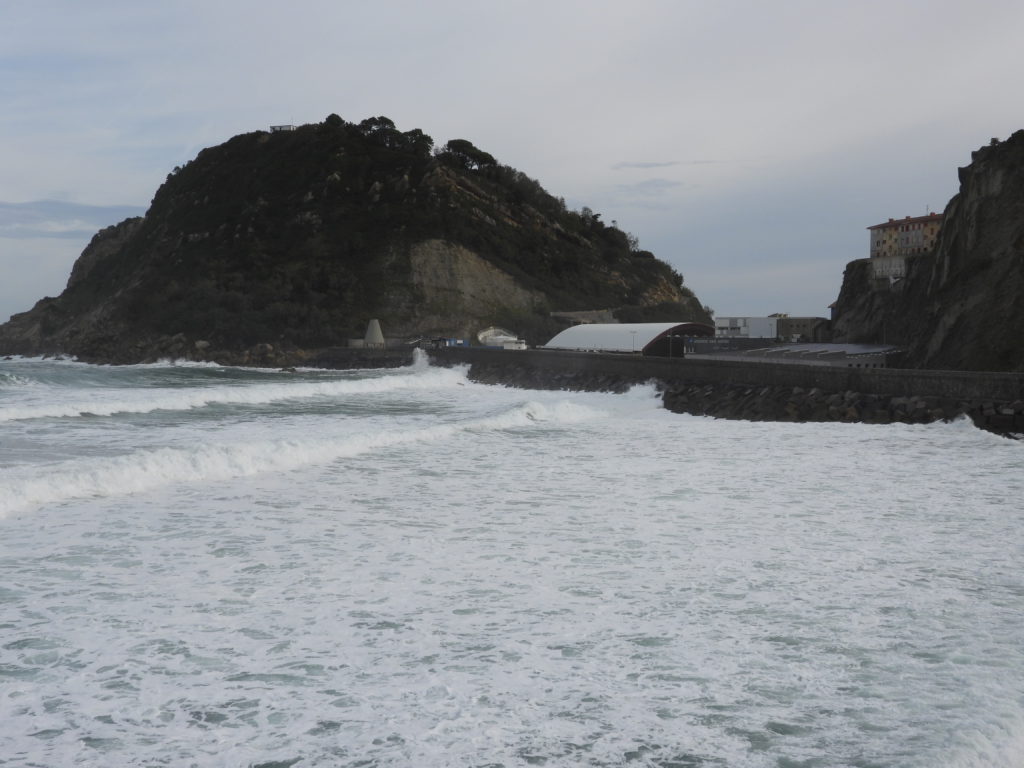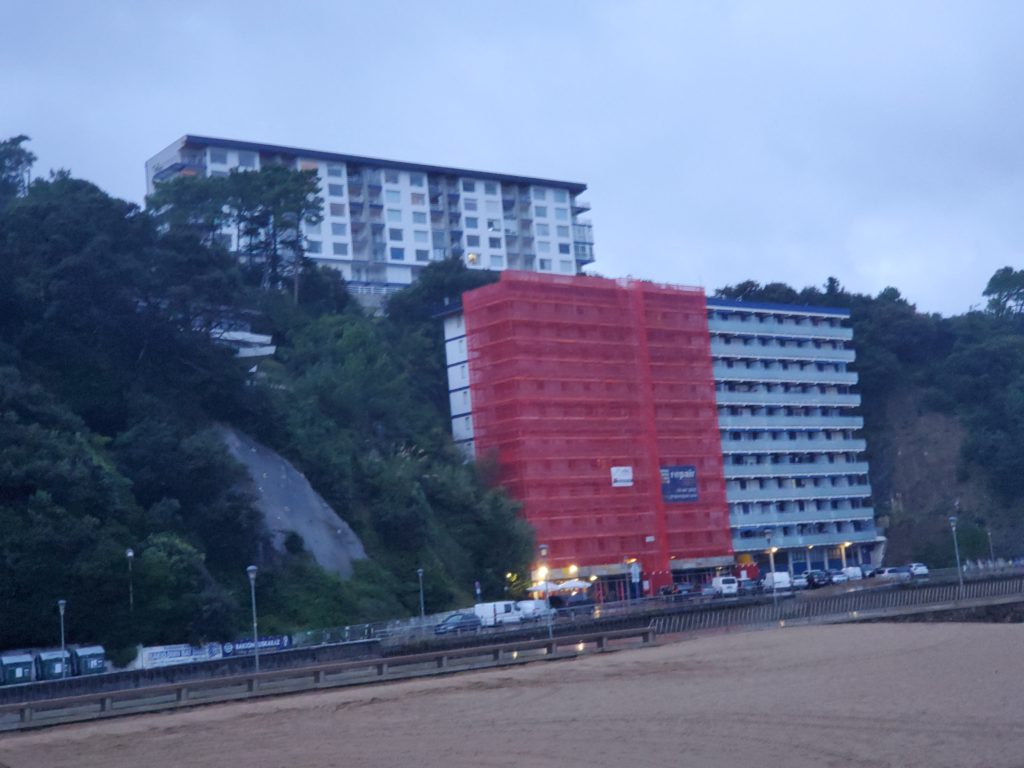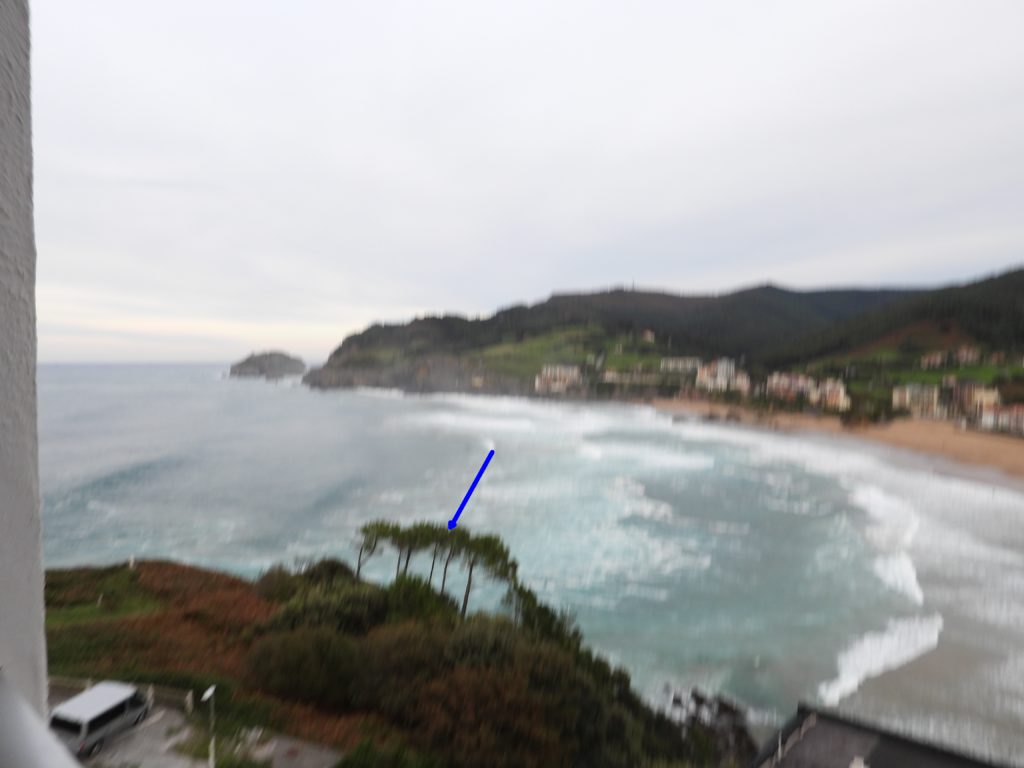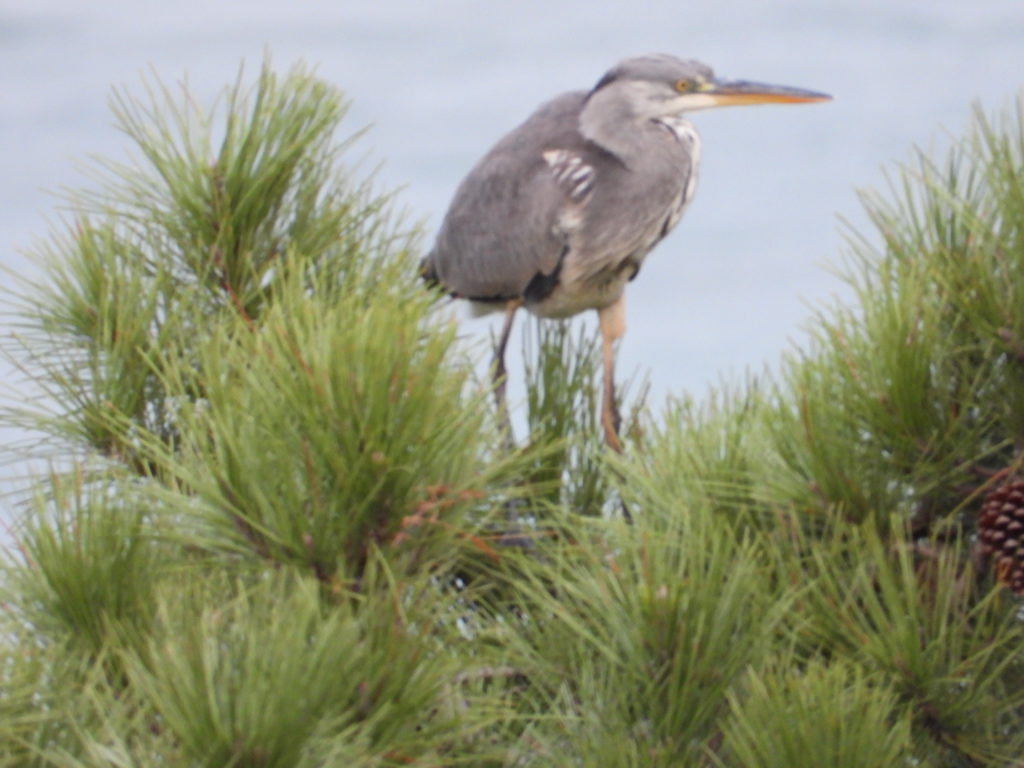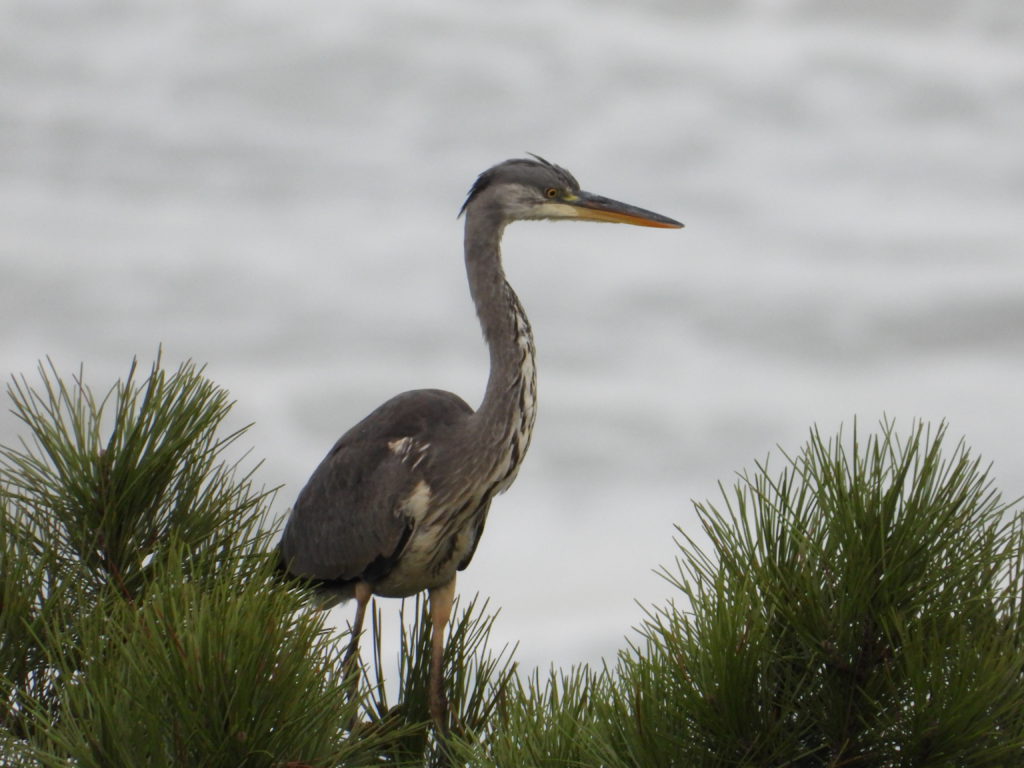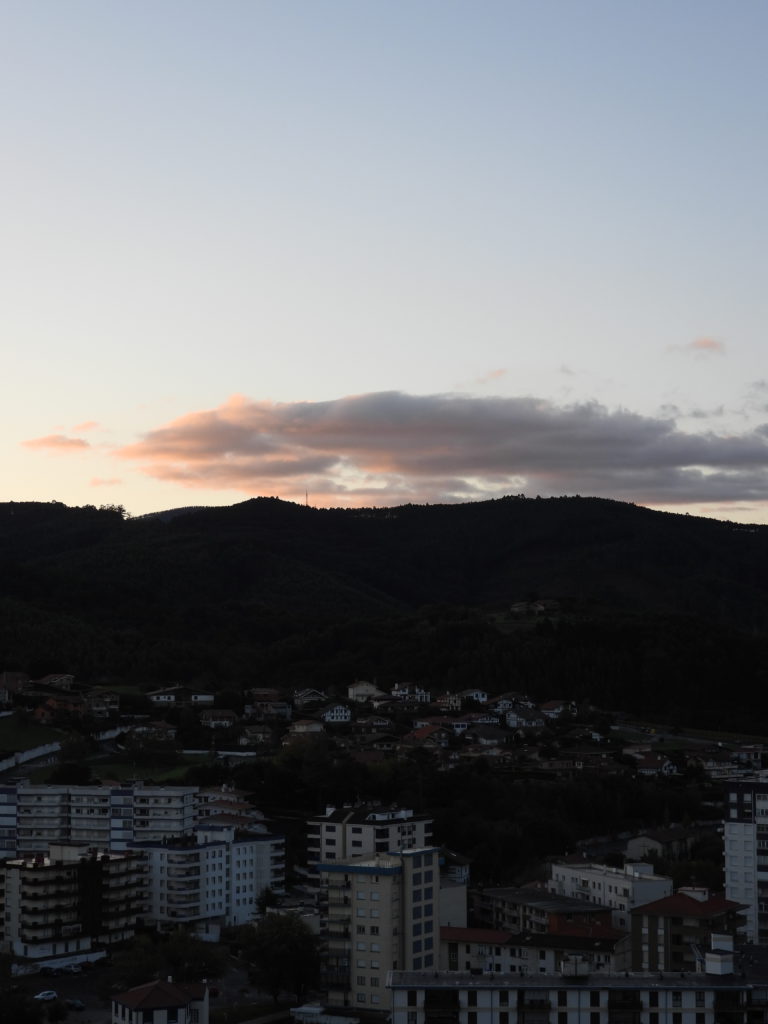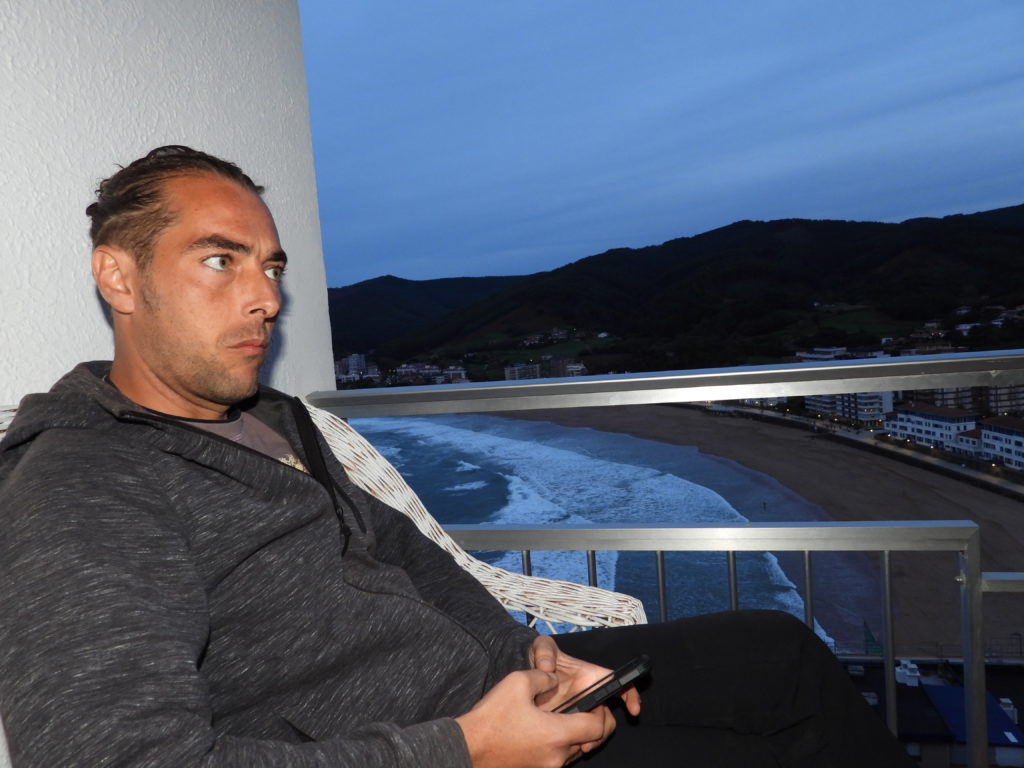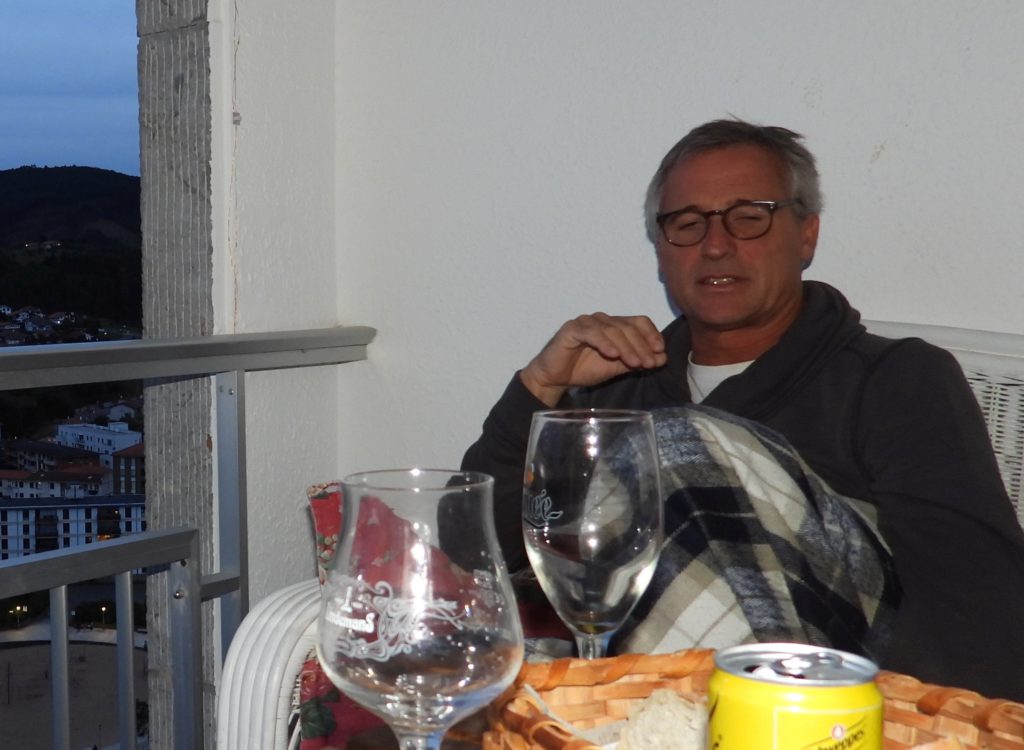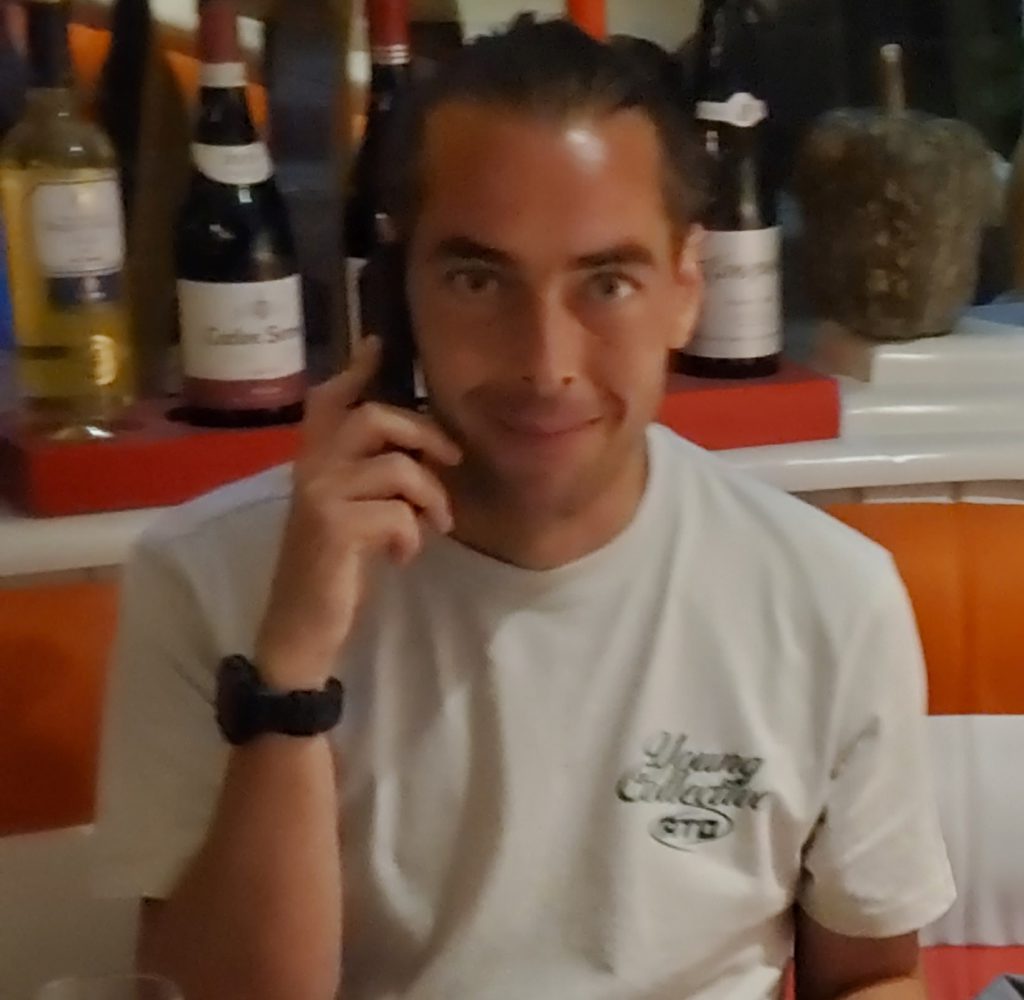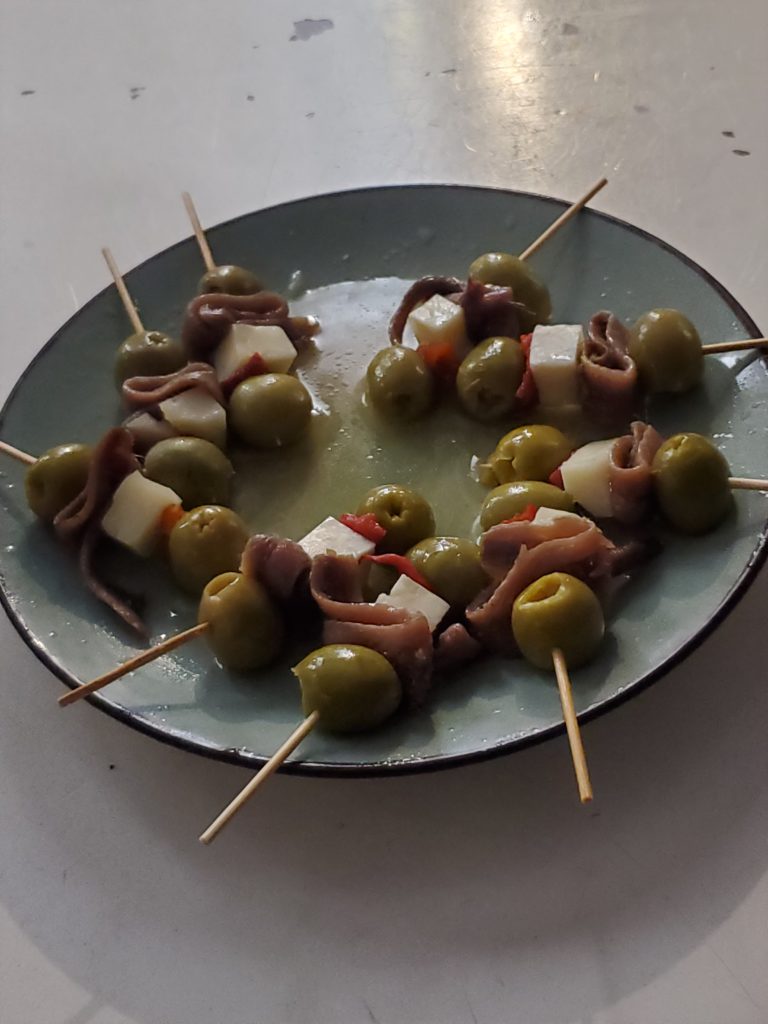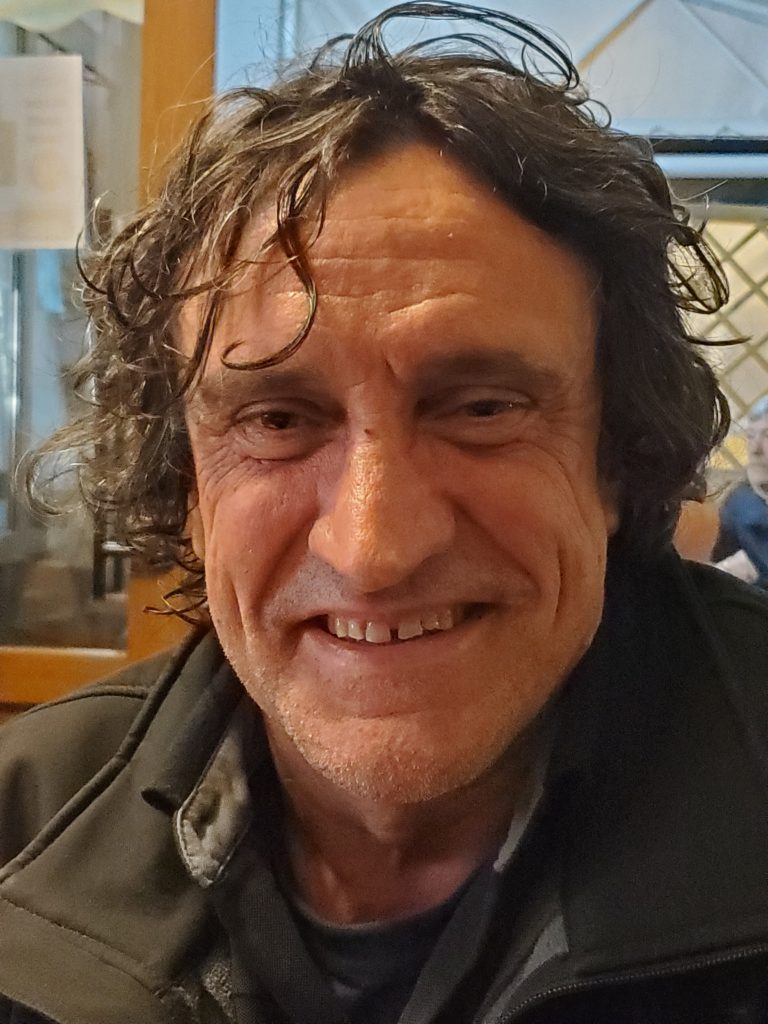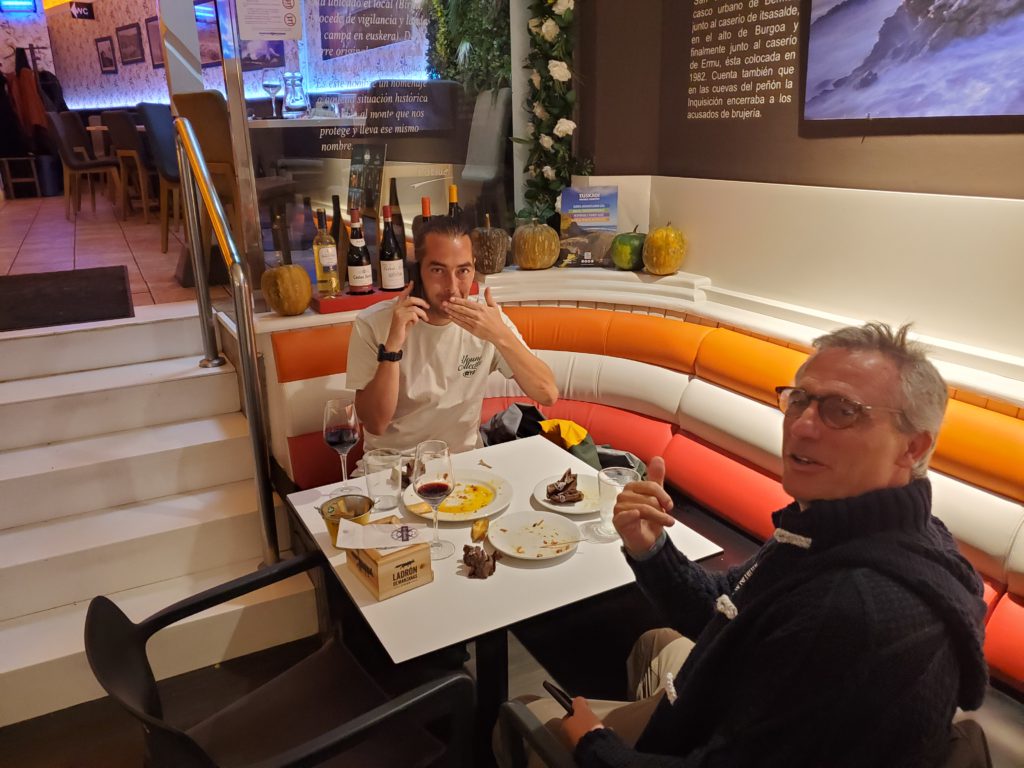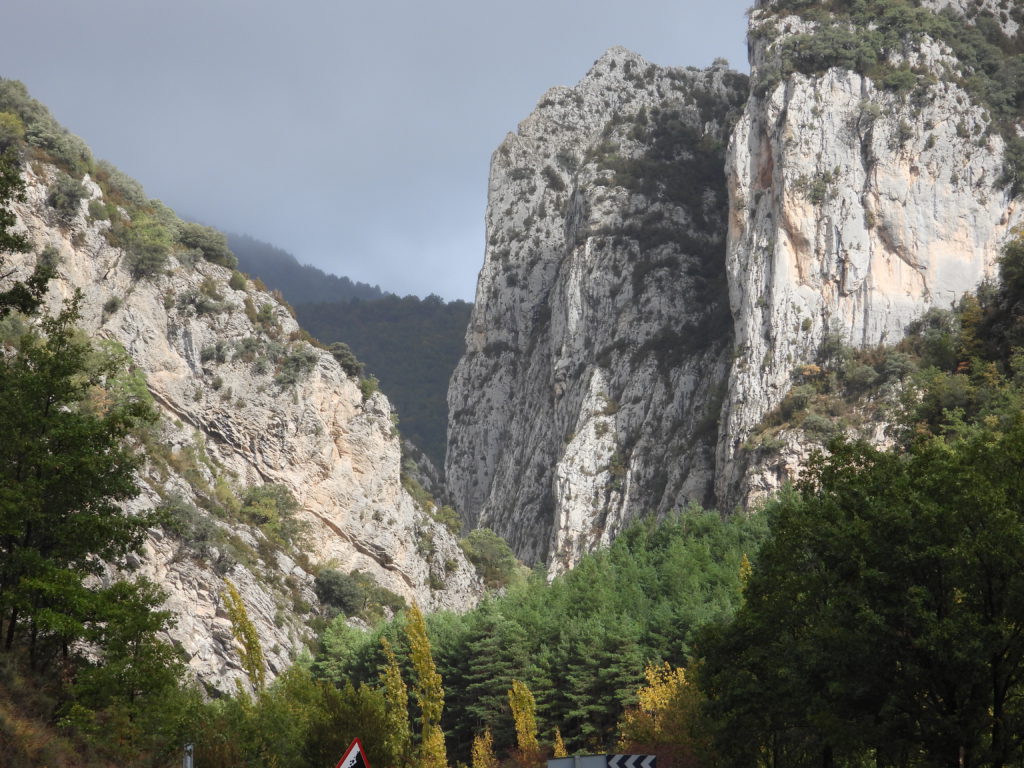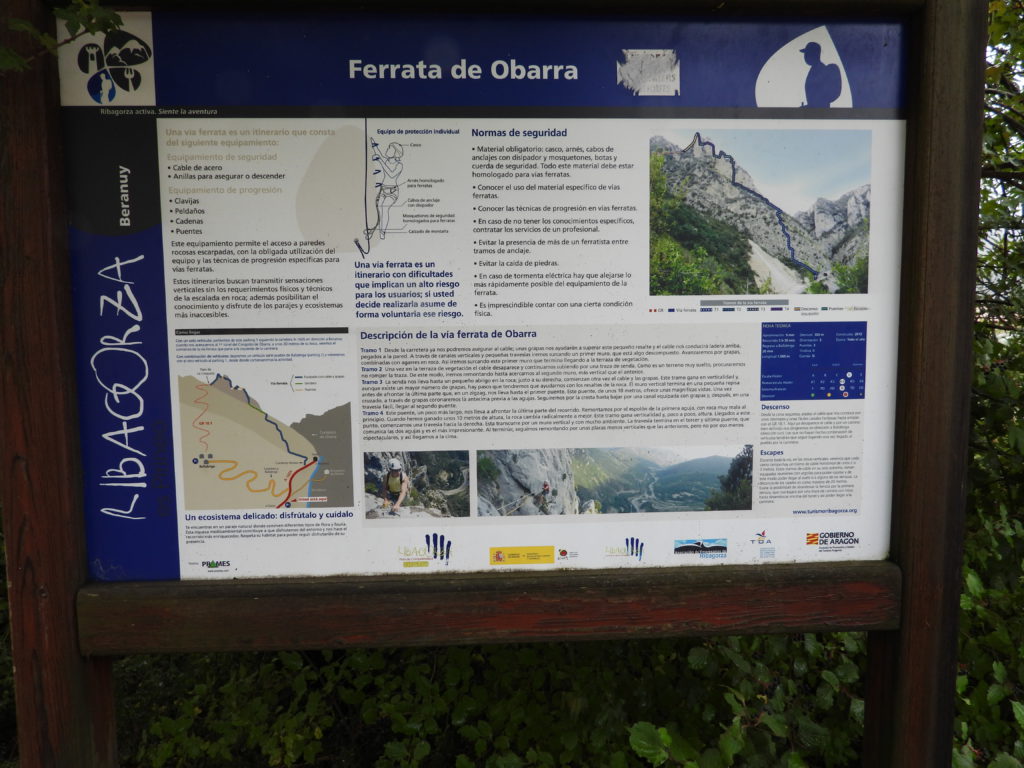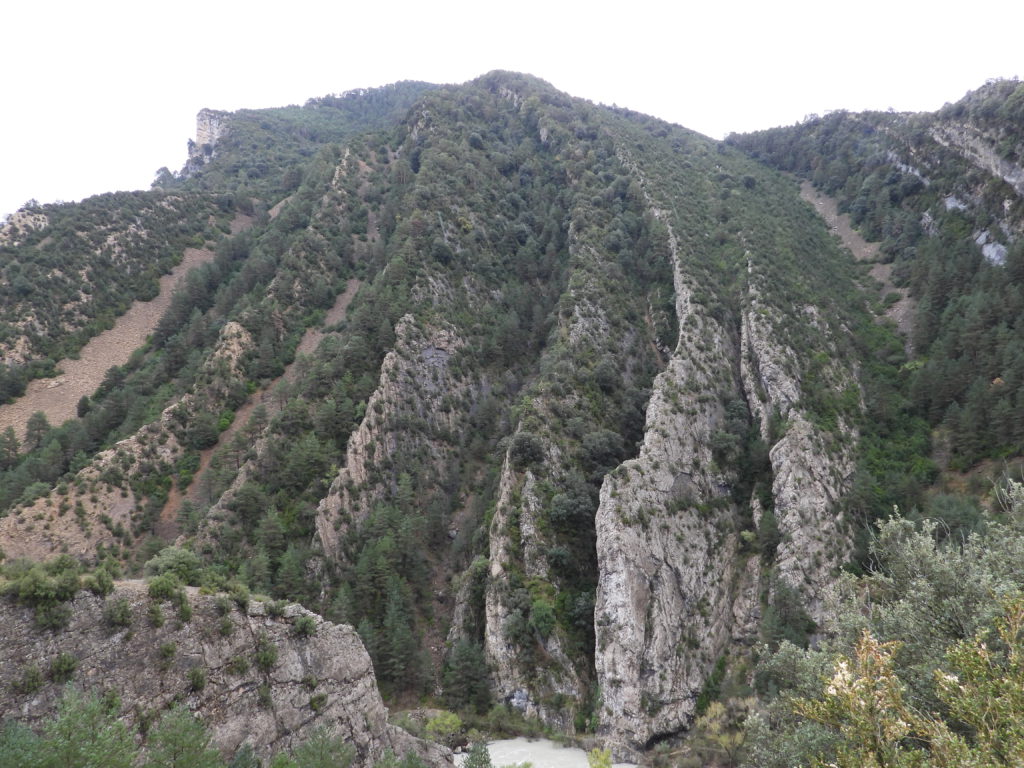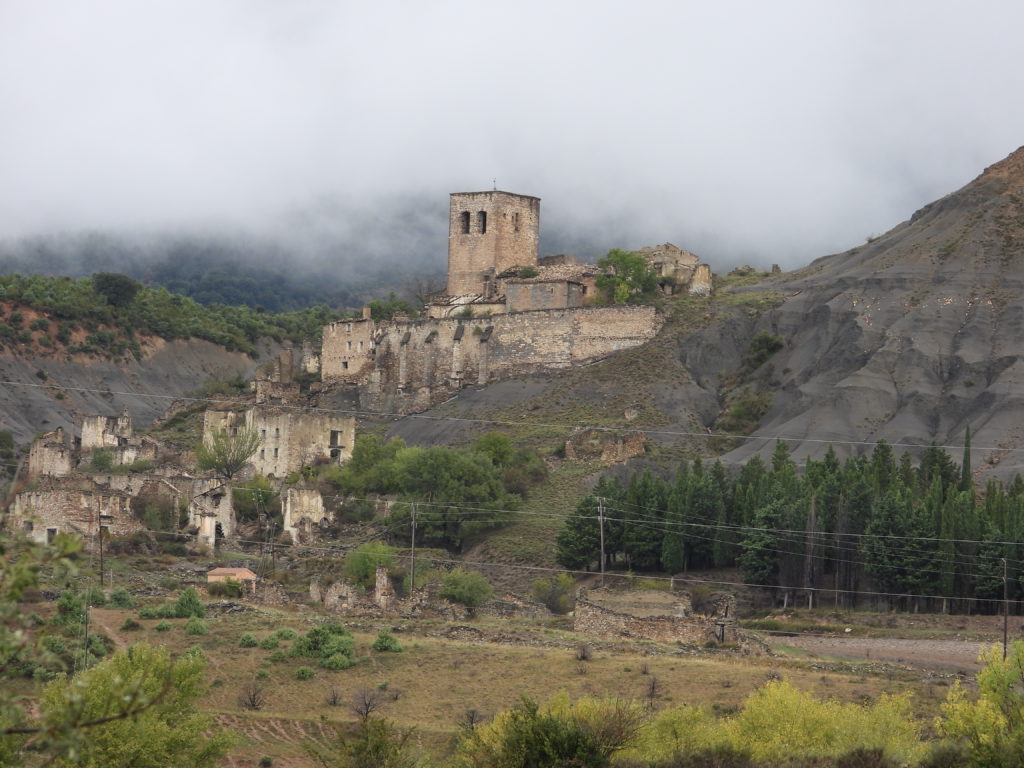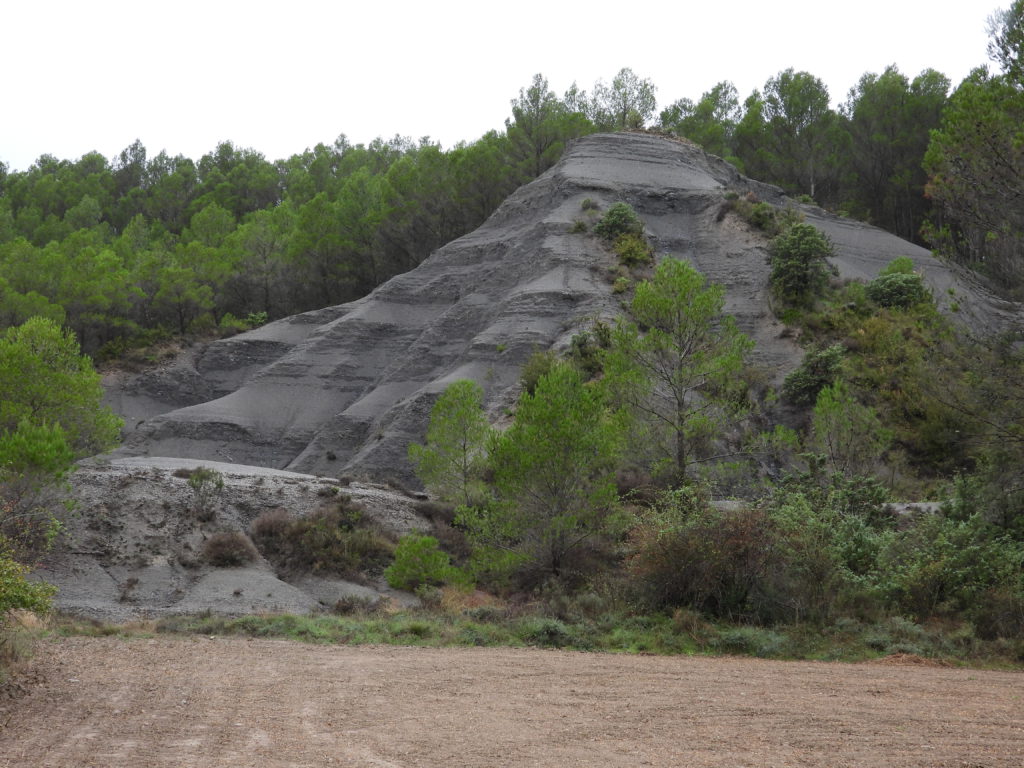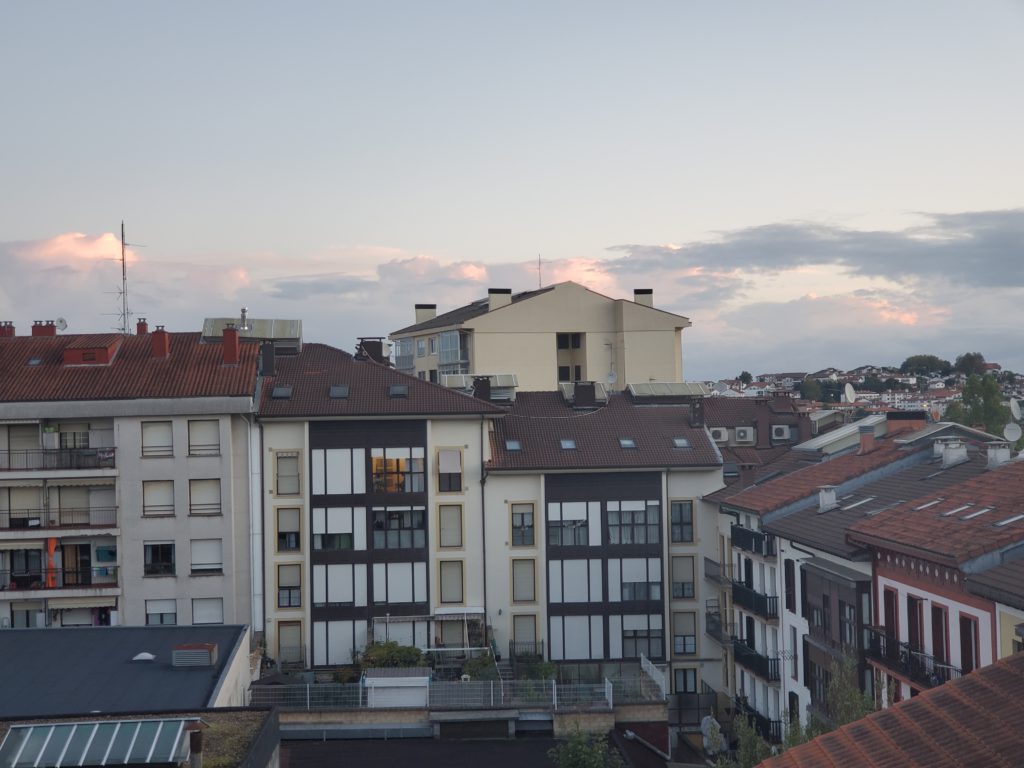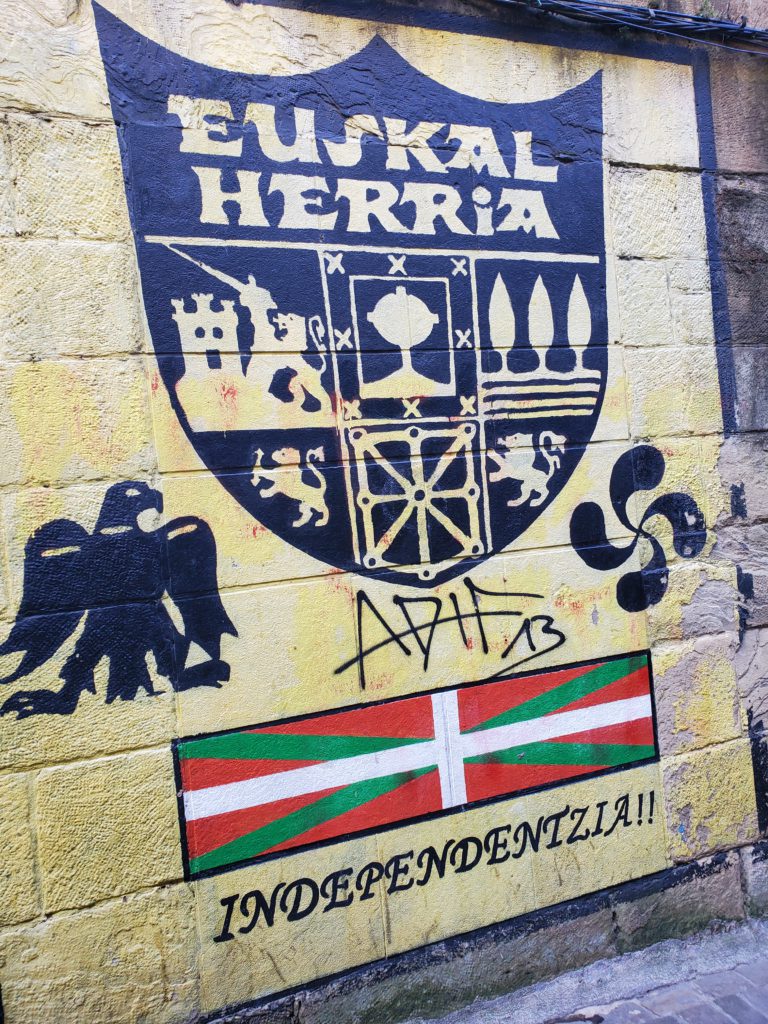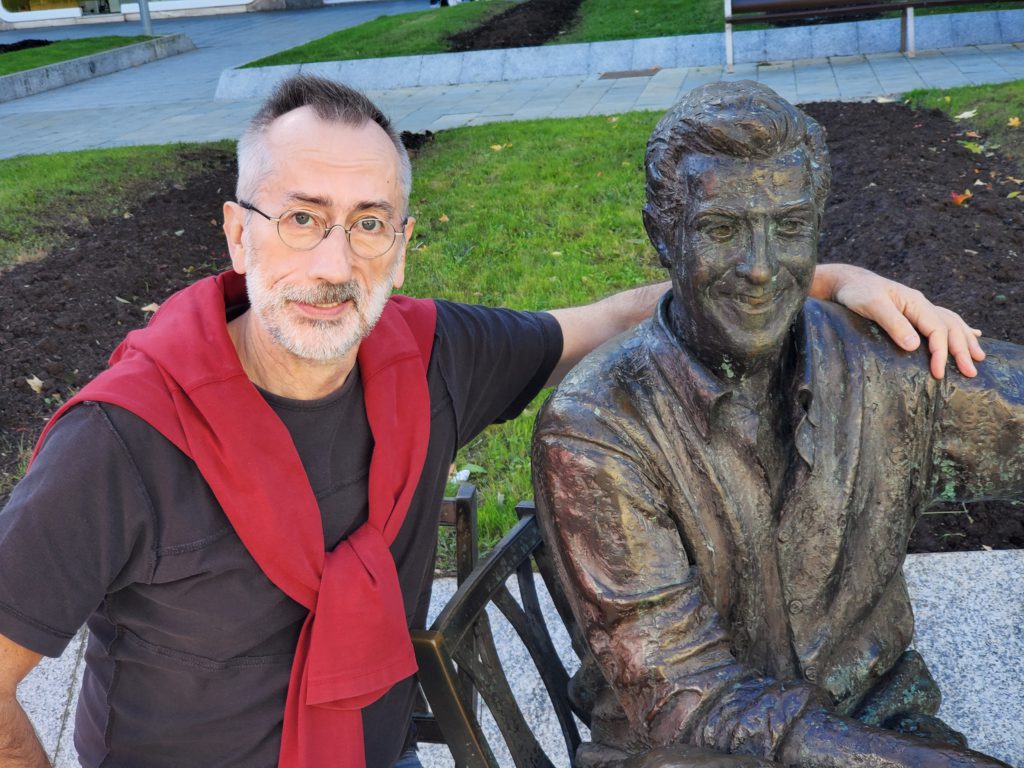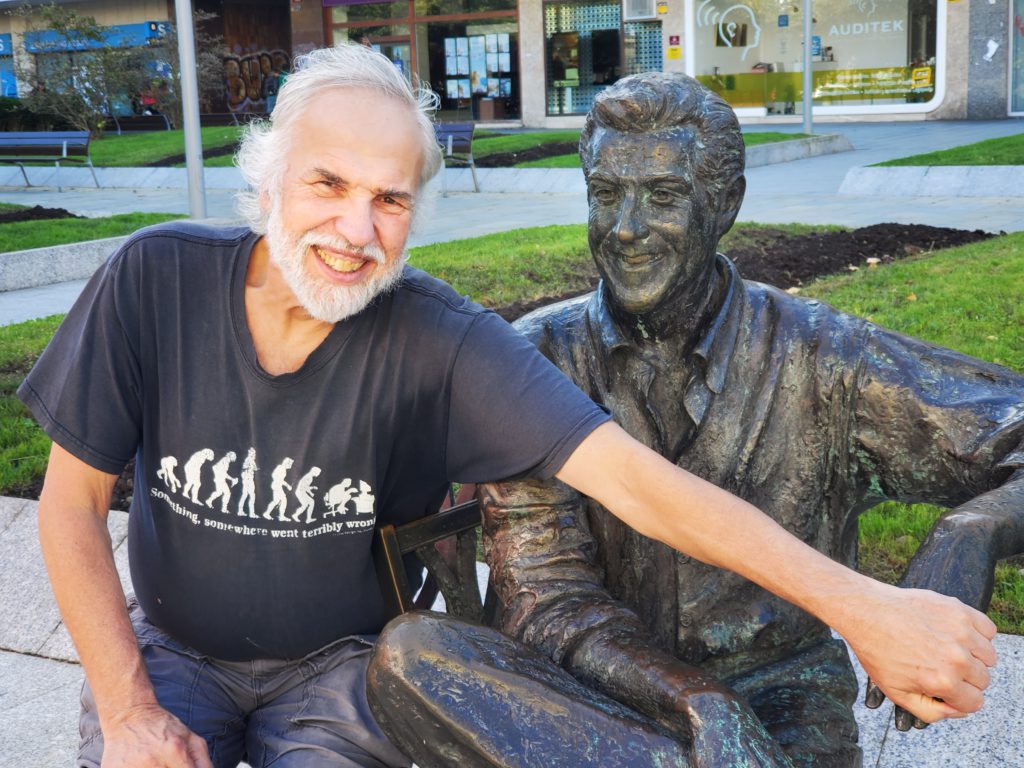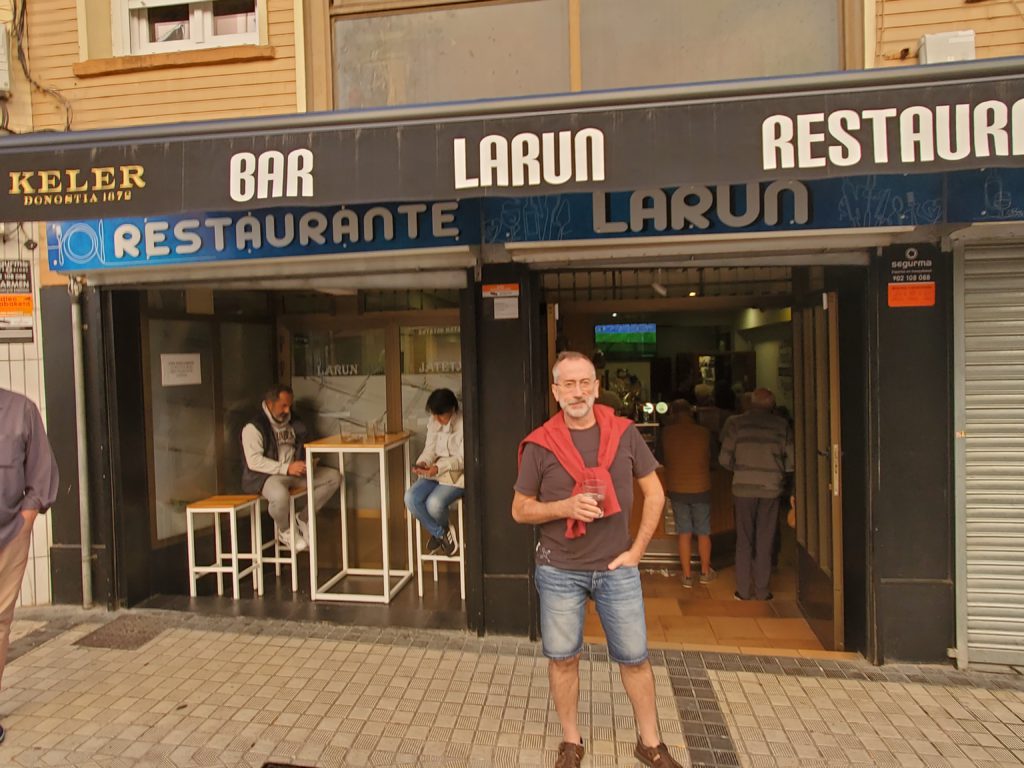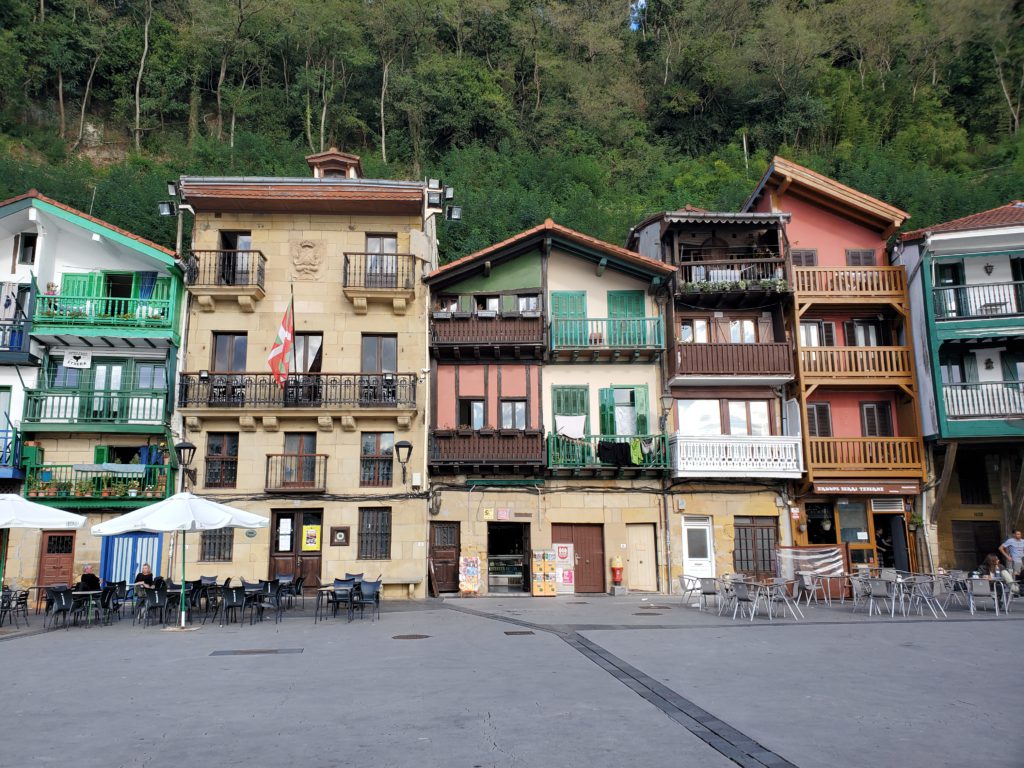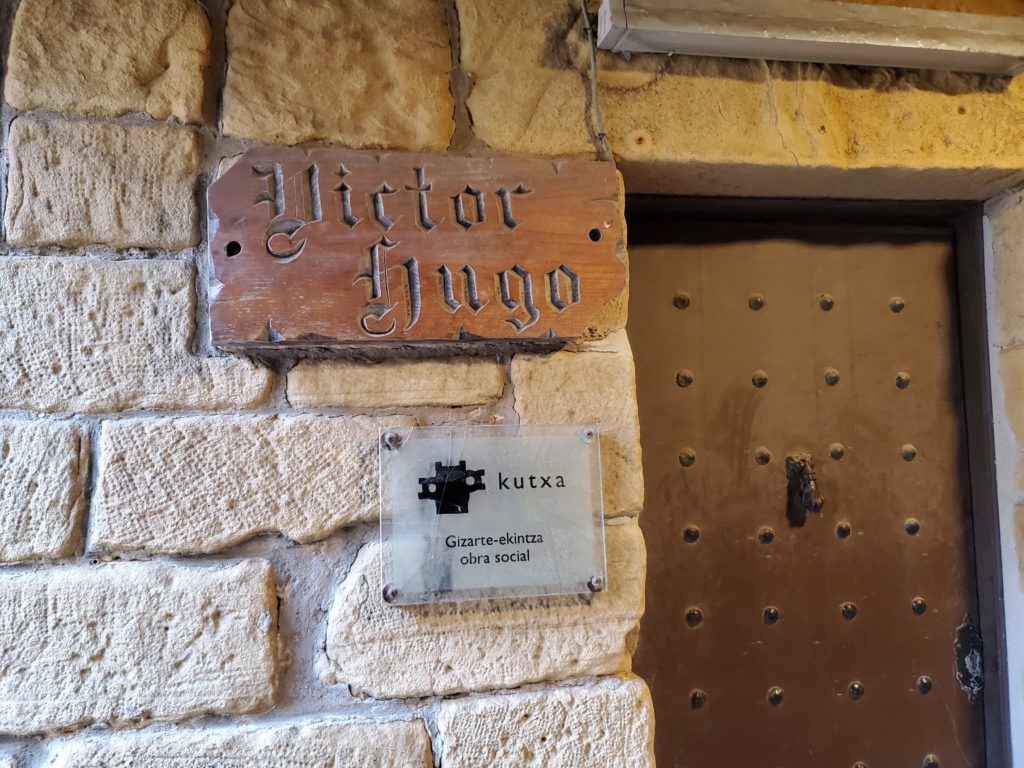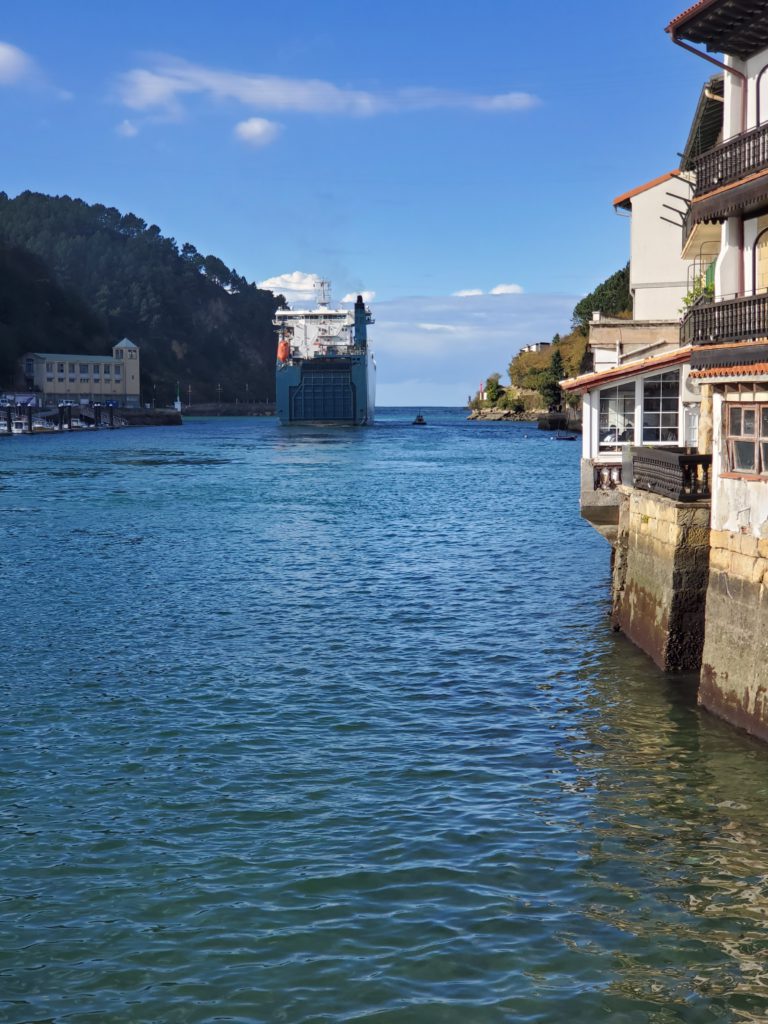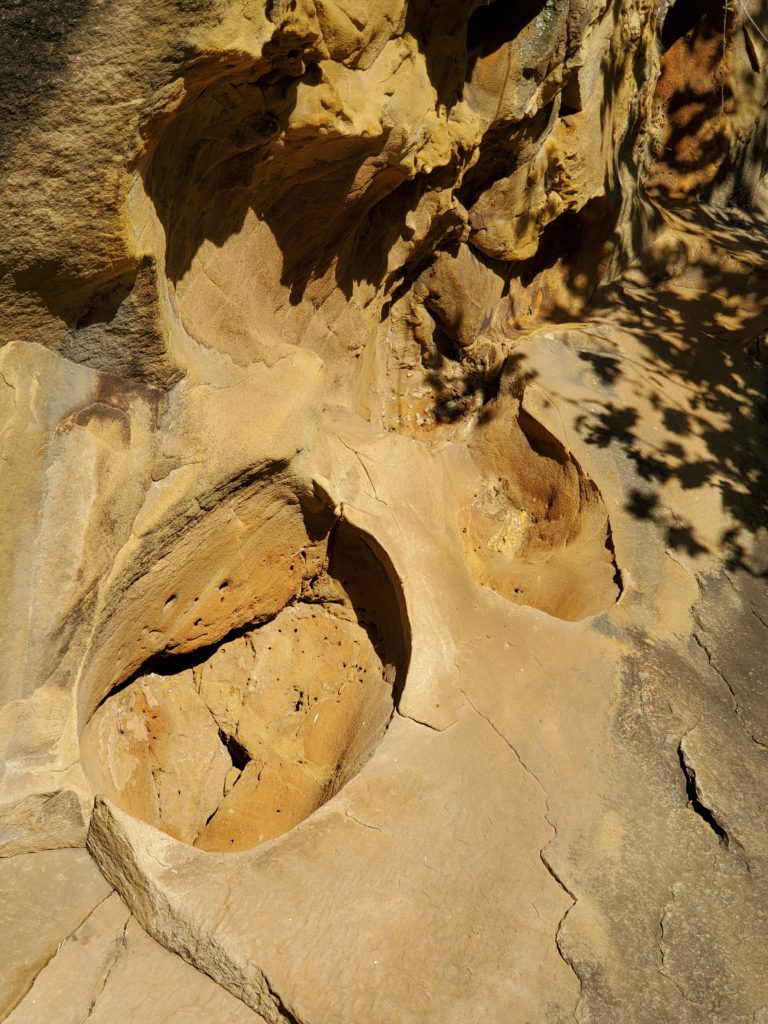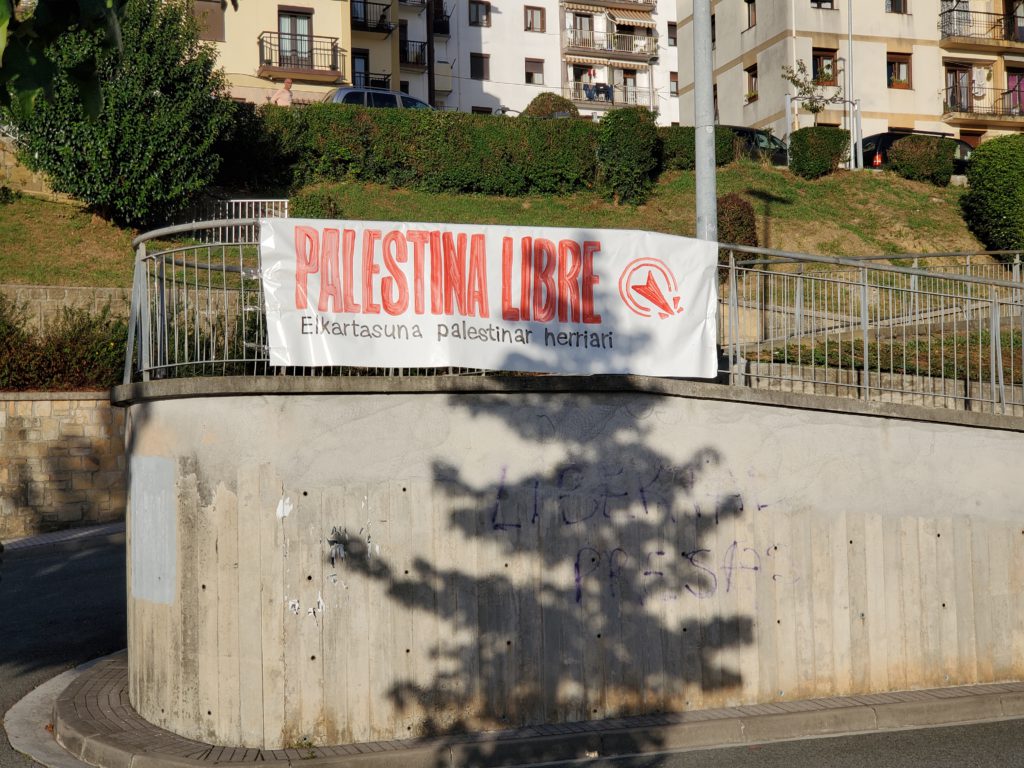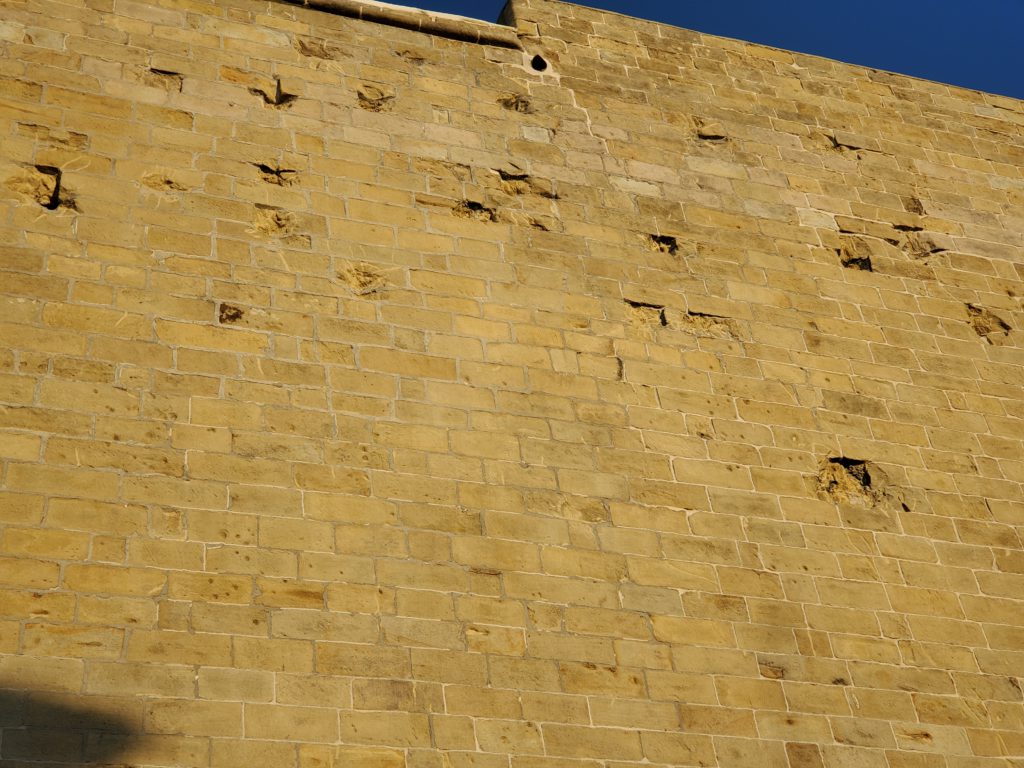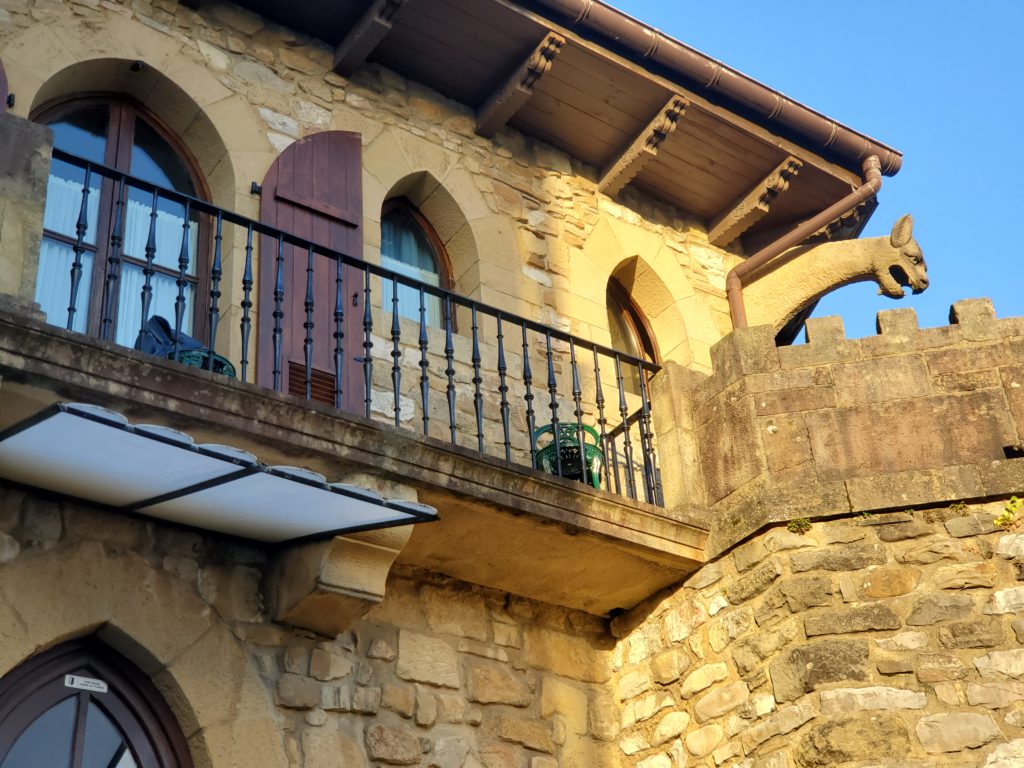Prior post: http://blog.bucksvsbytes.com/2023/11/17/road-trip-europe-ii-23-11-05-23-11-06-i-lose-my-phone/
It’s Monday evening when I arrive in Maia, Portugal, a suburb of Porto, to visit with Servas host Rita Gama and family. There’s no free parking on her block, so I find a spot on the street she recommended and hoof it about half a mile, under load. I’m warmly welcomed into the big apartment.
The family consists of Rita, a lively, “take on any challenge” Portuguese woman whose family is based in Lamego, to the east, for generations; her Slovak husband Martin who works in accounting support for a large German company; her cousin Angelo who boards with them and works in cybersecurity for a different firm; and an old cocker spaniel whose main joys in life are getting petted and providing face care with doggy tongue.
It doesn’t take long to establish rapport. The only language the four of us have in common is English, so my attempts to use Portuguese quickly fade into irrelevance. As Rita says, she and Angelo often “forget” they’re Portuguese and converse in English. Everyone is blisteringly sarcastic, so I fit right in. They’re all sharply intelligent so the conversation is wide ranging and constant whenever we sit around the table. Laughter is loud and frequent.
This first evening, Rita’s parents come over for dinner. Her father works in AI and we talk about that for quite a while. He opens a bottle of wine and I jokingly remark that I assumed the standard drink in Porto would be port wine. He informs me that because of its sweetness and strength, 19% alcohol vs wine’s 12½%, it’s only imbibed on special occasions.
Rita asks me to peel some fruit for dinner and I recognize it as quince. Raw, it’s like a hard, tasteless apple, but cooked it develops an excellent flavor. In the US it’s rarely commercialized but in Latin countries it’s quite common. I know it by its Spanish name, membrillo, but in Portuguese it’s called marmelo. Thus, Portuguese quince preserves are the origin of our word “marmalade”.
Of special note about Rita’s building is the elevator. It’s an extraordinarily economic design — 3 sided. Yes, there’s no inside door. As it moves you’re staring at the elevator shaft wall. Definitely want to keep fingers, hair, and anything else away from it. Invisible, but still shocking, is that the elevator is simply suspended from a moving cable. No guide rails, no brakes. Just passengers in a 3-sided box suspended over certain death. Children have to be sternly warned to stand quietly in the car to minimize the chance of disaster. And if there’s a child’s birthday party in the building — take care, use the stair!!
Tuesday morning, Angelo walks me to the tram stop to help me get a fare card. When I ask how old the buildings are, he tells me they’re all quite recent. Only 30 years ago, the area was mostly farms. Looking around at the many residential apartment buildings, I would never have guessed that.
I take the tram into Porto with a walking itinerary supplied by Rita. Portugal’s second largest city is a very busy place. Even in November, the streets are quite full of tourists. Everything is under construction, including a new subway line. I spend several minutes watching a semi-truck trying to maneuver itself into a tiny loading ramp from a one lane road with traffic backed up for blocks. The stalled drivers are very patient. A few blocks away I see an enormous dump truck ascending to street level, in the lowest possible gear, an incredibly steep and narrow ramp from the subway excavation. I would have trouble walking up that grade.
About 1:30 I decide to get lunch, so I step into the side street Cafe Belana, crowded with workers and tradespeople. At this time of day, it’s sit down, order, eat, pay, vacate your chair for the next customer. At the counter, I read the handwritten list of pratos del dia (lunch specials). Most of them sound rather pedestrian but one item says “_oela” in broth. I can’t translate it because I can’t decipher the capital, cursive, initial letter but for $7, what the hell.
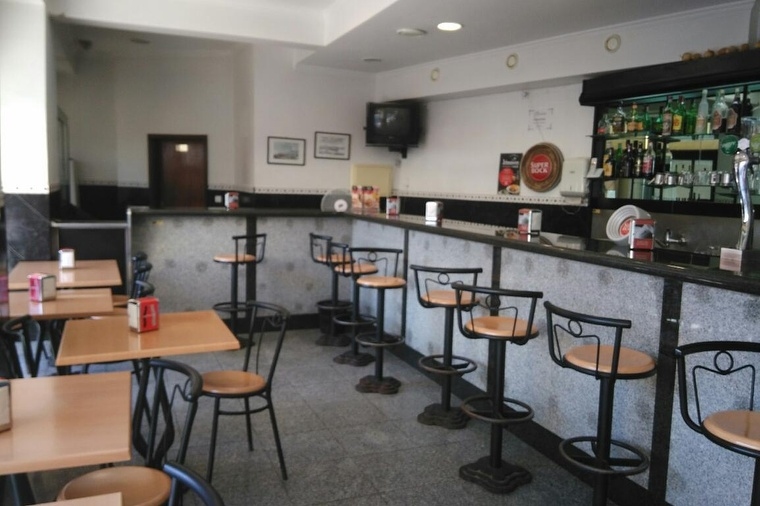
My plate arrives promptly and I dig in to a bowl of small white pieces of animal with some beans and broth. It tastes fine but the texture is a little odd. Later in the evening, with Rita’s help, I conclude the word was probably “moela” — gizzard. Definitely a new culinary experience.
My walking tour is going well when disaster strikes. Unlocking my Android phone with the finger swipe pattern, which I do dozens of times every day, suddenly fails. I try over and over without success. I even try other patterns, thinking maybe I’ve had a brain lapse and am putting in the wrong one. Perhaps it’s connected to the fact I logged in to someone else’s phone a few days ago but the pattern from that phone doesn’t work, either. No, Google thinks the pattern has been changed, which is impossible to do accidentally. It’s brain damage. I’m confident I can use an alternate method of logging in with my Google account but I don’t see that option. Suddenly mapless and incommunicado, I decide to abort the excursion a couple of hours early. Recalling my walk to this point, I head back toward the tram stop where I arrived this morning. By asking directions a couple of times, I zero in on it pretty quickly.
Back in the apartment I research the issue. To my surprise, there is no alternative login as was the case some years ago. For incomprehensible reasons, if the phone won’t recognize biometrics, the only advice offered is a factory reset, This wipes out everything on the phone and is definitely not my desired approach. I have literally never seen any other security algorithm that doesn’t offer at least one means of recovery. Hours of further reading fail to find anything so, reluctantly, I go for the erasure. It’s not a disaster because all my phone data is backed up in my Google account. But — I encounter another idiotic problem. Android will not let me restart the phone, required for a factory reset, without entering the swipe pattern — the same one that it refuses to recognize! For a company reputed to hire only the smartest people, this trap is an epic fail on their part.
Luckily, from my laptop I can request a factory reset of my phone, which I do, but nothing happens. I may just have to let the battery run completely down to shut off the phone. Then, belatedly, I discover another solution to the problem. A Samsung utility offers the option to remotely reset the security on the phone. Perhaps I can avoid the full erasure, but while Google lets me order that, I can’t cancel it. More negligence. I can’t believe the security reset is this simple, but when I send the command, it works.
Unfortunately, as soon as it’s unlocked the phone begins erasing everything. Oh well, I have my backups. Now I start setting it up again from scratch. Soon, I’m asked if I want to restore the prior state of the phone. I say yes but what is the credential Google demands to decrypt my backup? The same damn non-functional swipe pattern! I am hopping mad, but still a hapless victim. I understand that the perverse effect of security is to make it harder to do the legitimate tasks, but it’s not supposed to be IMPOSSIBLE!
Fortunately, I am able to access my separate WhatsApp backup. Losing years worth of text messages with contacts around the world would be a serious blow. My Google data is all stored on their servers, so that’s ok. My T-Mobile texts and call history are gone but that’s fine because almost none of my communicating is through those, Google Voice, and WhatsApp anyway. The greatest loss is about six days of phone photos that weren’t yet uploaded. I also have to reinstall dozens of apps I use frequently and restore and re-verify their login credentials. It’s all a major pain in the ass, and so stupidly unnecessary. Google services have been an enormous aid to me over many years but this kind of neutralizes all that,
Wednesday morning, I make sourdough pancakes for everyone and I’m gratified to see them devoured by hearty eaters. There’s even maple syrup in the refrigerator. Rita’s friend, Sandy, is here but she doesn’t join us, spending every minute on her computer and phone. She’s a self-employed lawyer and being successful at it appears to be taking a toll. I never see her loosen up at all and get the feeling she’s stressed to the breaking point. It’s definitely upsetting to observe. The weather today is snotty, so I stay home to work and write. Angelo and Martin are in their rooms on their jobs and Rita is on the phone looking for her next employer. She has a lot of experience in customer service and translating and doesn’t anticipate any problems.
In the afternoon a new guest arrives. Dina, Rita’s close friend from Kazakhstan but who lives in Czechia, is here for an extended visit. She’s also fluent in English, so we can talk extensively. Dinner is at the typically Portuguese late hour and the rollicking jokes, teasing, and conversation don’t stop for hours more. This is my kind of crowd. The topics range widely and rapidly between the economy, wing nut voters, the Portuguese health care system, expatriates, Dina’s childhood sojourn in Ohio, her move to Czechia, Martin’s routine of informing executives in his company that they have to resubmit their travel reimbursements, and much more.
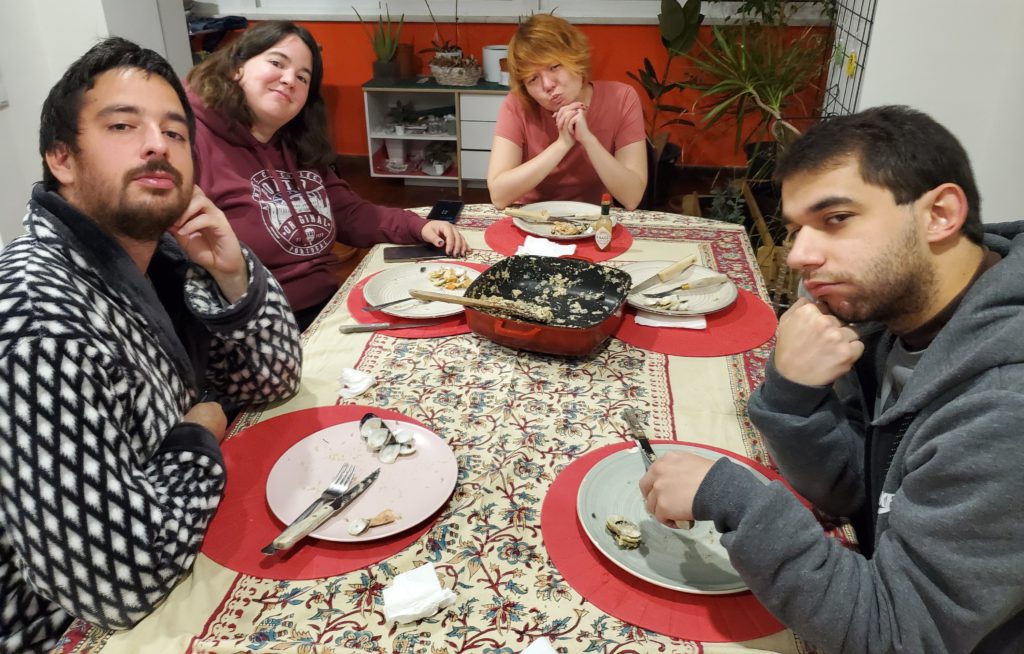
Even after the others finally retire, Dina and I continue to talk until 4 AM. She has a call to make at 8:30 so I agree to make sure she’s awake.
I get a few hours sleep and when I get up I see Dina has beat me to it. The weather is still wet and unpleasant so I occupy myself at home again. Rita, Angelo, Sandy, and I go out for lunch as Martin continues to work. For the entire time I visit, he always wearing his preferred work from home outfit — his bathrobe. Sandy is again on her computer for a lot of the lunch. She relates that her worst case is a long, contested divorce that is a giant, low paid headache for her. She maintains a very glamorous appearance which I, perhaps unjustly, suspect is coerced as a requirement for female business success.
In the evening, Rita, Dina, I, and the dog take a half hour walk to a distant supermarket to get supplies. Although pets are ubiquitous in European stores and restaurants at this one a security lady runs up to us as we’re entering and informs Rita that only service animals are allowed and she needs to see the dog’s certification. Since face lickers aren’t considered official service dogs, it’s decided I’ll mind him in the mall’s hallway while the other two shop.
After another late night of discussion, I get ready to move on in the morning. I’m concerned about Dina. She’s facing some challenges and there’s little I can offer in the way of assistance. I do tell her that if she needs to get back to Brno, Czechia to handle a certain problem in person, I’ll delay my progress toward Morocco to give her a ride north. It turns out that’s not necessary so I wish her the best and drive off. My destination is only 140 miles south, Marinha Grande, a small town north of Lisbon. On the way out, I drive along the coast at the entrance to Porto’s harbor. Once again, the Atlantic surf is pounding furiously against the shore. It’s not a good day to forsake calm waters for the roiling ocean.





